
TRENDS IN UHT MILK PROCESSING INVESTMENTS IN AFRICA BEVERAGE INDUSTRY SOFT BEVERAGE INDUSTRY IN KENYA WWW.FOODBUSINESSAFRICA.COM YEAR 9 | ISSUE NO. 55 NOV/DEC 2022 AFRICA’S NO.1 FOOD & BEVERAGE INDUSTRY MAGAZINE BATURE BREWERY COMPANY FEATURE Brewing world-class, quality craft beers that are uniquely Nigerian TENYEARS OF IMPACT 2012 2022 10 Food Africa Business
ONE SOURCE OF THE



Bringing together F&B communities from across the world in Dubai to chart the way forward for this rapidly evolving sector, the 28th edition of Gulfood is set to be 30% larger than the previous years, with over 1,500 exhibitors new to the show this year.


THE GLOBAL FOCAL POINT FOR TRANSFORMATION IN FOOD






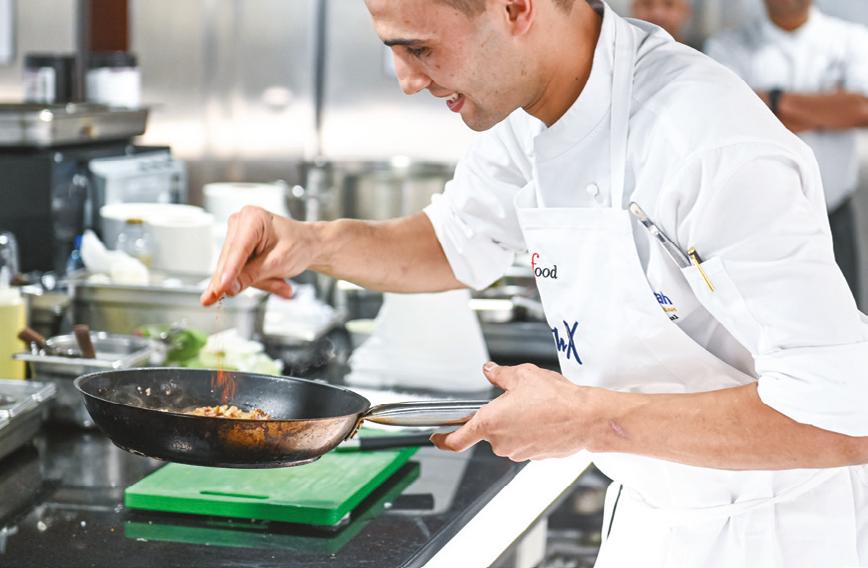
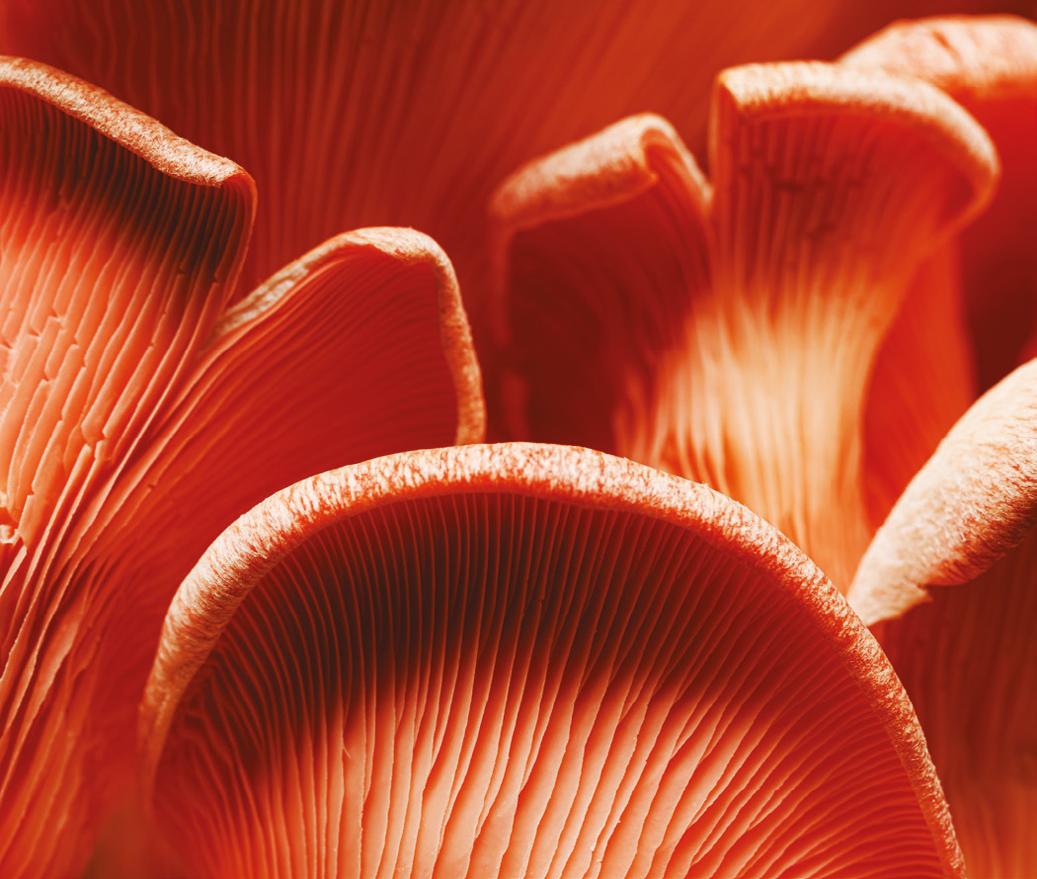



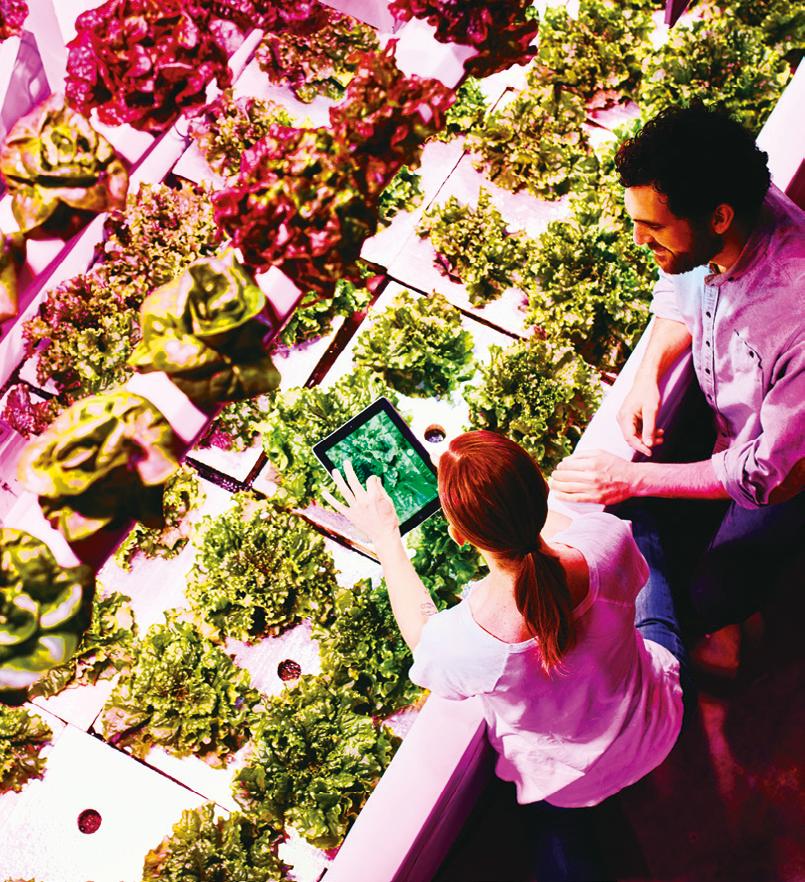


20–24 FEB 2023 DUBAI
CENTRE
WORLD TRADE
REGISTER NOW GULFOOD.COM TALENT THE FUTURE CHANGE INSPIRATION INNOVATION
e Art of European Meat





Mastered by the Belgian meat suppliers







What makes the Art of European Meat? It’s that exceptional combination of Craftsmanship, Food Safety and Tailor-Made Service. And that’s what the Belgian meat suppliers truly master. As one of Europe’s leading meat producers and exporters, they turn their expertise into an art form. Up to you to savor it.


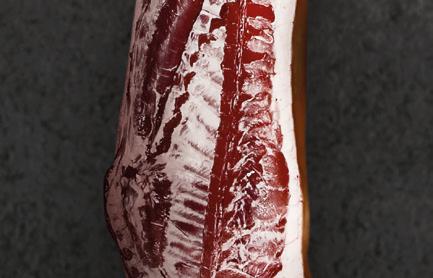


























Find your Belgian meat master at



FOODBUSINESSAFRICA.COM NOV/DEC 2022 | FOOD BUSINESS AFRICA 1
Carcass
jowl THE CONTENT OF THIS PROMOTION CAMPAIGN REPRESENTS THE VIEWS OF THE AUTHOR ONLY AND IS HIS/HER SOLE RESPONSIBILITY. THE EUROPEAN COMMISSION DOES NOT ACCEPT ANY RESPONSIBILITY FOR ANY USE THAT MAY BE MADE OF THE INFORMATION IT CONTAINS.
artofmeat.eu Hindquarter
with



NOV/DEC 2022 | FOOD BUSINESS AFRICA FOODBUSINESSAFRICA.COM 2 CONTENTS YEAR 9 | ISSUE NO. 55 NOV/DEC 2022 30 ON THE COVER - Bature Brewery My Company Profile: Bature Brewery 40 Nigerian in Origin, World-Class in Quality A sector characterized by innovation and intense competition 63 Industry Report: Beverage Industry in Kenya

Yes! Now everyone can enjoy delicious yoghurts PALSGAARD ® ACIDMILK SERIES Shelf-stable ambient yoghurts are the future of the category. Bring the joys of creamy, fruity yoghurts to consumers all over your market. Find out more at www.palsgaard.com/ambientyoghurt BRINGING GOOD THINGS TOGETHER By using the Palsgaard ® AcidMilk series of emulsifier and stabiliser blends in your yoghurt production, you can produce shelf-stable products that are easier to distribute and not reliant on a stable cold-chain. The Palsgaard ® AcidMilk series works for set, stirred and drinkable yoghurts. Simplify your distribution chain No UHT process required Maximise your products’ shelf-life
CONTENTS
36 New Product Innovations:
African Originals: Purple Haze Gin & Coffee Cider

| Brookside Dairy: Probiotic Yogurt | Cadbury

Nigeria : Bournvita Biscuit | Nigerian Breweries :

Malt-infused energy drink | Coca Cola Beverages
: What The Fanta | Mzuri Sweets : Fruit Flavored Bubble Gum

DAIRY BUSINESS AFRICA
47 UHT milk continues to evolve to meet changing consumer tastes and preferences

BEVERAGE TECH AFRICA
51 After surviving Covid, Africa’s beverage industry gets back on the investment track

MARKET TRENDS
58 Key trends to shape food industry in 2023 and beyond
FOOD NUTRITION & HEALTH

70 Atoning for own sins: food processors create new innovations that help keep cancer at bay
REGULARS
6 Editorial
8 Events Calendar
32 Appointments Update
36 News Updates:
• Blueberry farming in Morocco, SA set for growth as new investors pump in funds
• Chr. Hansen and Novozymes announce merger
• Kenyan B2B food distributor Twiga Foods opens new distribution center
• Nestle extending marketing clampdown to under 16s

• Heineken beefs up renewable energy capacity at African facilities
• Ghana welcomes new craft beer manufacturing company Specialty Beers Limited

• Molson Coors plots exit from US CBD market citing difficulties in scaling up
• Tetra Pak inks US$2.5M deal with Uniboard for beverage carton recycling project in Egypt
• PepsiCo to double use of reusable packaging to 20% by 2030
• Unilever embraces precision fermentation, to launch ice cream from cow-free dairy in 2023
74 Supplier News & Innovations:
• GNT Group spirulina extract for beverages receive FDA approval
• IFF, Salus Optima create platform to help brand owners create better for you snacks
• Kemin Food Technologies develops natural alternative to nitrite used in meat preservation
• Louis Dreyfus Company develops orange juice with reduced sugar and higher fiber content
• DSM upcycles canola meal into high quality protein isolate
• Givaudan opens Consumer & Sensory Insights center in South Africa
• MANE opens manufacturing plant and flavor innovation center in India
• Arla Food Ingredients enters whey protein powder partnership with First Milk
• Azelis to supply Symrise food and nutrition solutions in India and Indonesia
NOV/DEC 2022 | FOOD BUSINESS AFRICA FOODBUSINESSAFRICA.COM 4
YEAR 9 | ISSUE NO. 55 NOV/DEC 2022

Food Africa Business
FOUNDER & PUBLISHER
Francis Juma
SENIOR EDITOR
Paul Ongeto
JUNIOR EDITOR
Catherine Wanjiku
JUNIOR EDITOR
Abel Ndeda
BUSINESS DEVELOPMENT DIRECTOR
Virginia Nyoro
BUSINESS DEVELOPMENT ASSOCIATE
Hellen Mucheru
HEAD OF DESIGN
Clare Ngode
VIDEO & DESIGN ASSISTANT

Newton Lemein
ACCOUNTS
Jonah Sambai
PUBLISHED BY: FW Africa
P.O. Box 1874-00621, Nairobi Kenya
Tel: +254 20 8155022, +254725 343932
Email: info@fwafrica.net
Company Website: www.fwafrica.net
Craft beer is taking Africa by storm, one city at a time
There is a hidden thirst for craft beer across the African continent. Except for South Africa where craft beers have been thriving for close to four decades now, craft beers are almost non-existent. Most beer lovers outside South Africa are mostly left with no option but to embrace mass-produced beer, which quite frankly, can be bland at times. Whenever someone starts a craft brewery in the continent, the reason behind their investment is almost always the same: they were frustrated by the lack of good quality, flavorful craft beers. Soon after opening their doors, they realise they were not the only ones.
to data from Statista. The market is expected to show an annual growth rate (CAGR 2022-2027) of 18.58%, resulting in a projected market volume of US$2.689 trillion by 2027. Across the continent, beverage companies have been angling to capitalize on this growth. In this issue, we review some of the major investments that players in the industry have been making to better address growing demand.
Food Business Africa (ISSN 2307-3535) is published 6 times a year by FW Africa. Reproduction of the whole or any part of the contents without written permission from the editor is prohibited. All information is published in good faith. While care is taken to prevent inaccuracies, the publishers accept no liability for any errors or omissions or for the consequences of any action taken on the basis of information published.

In this issue, we highlight the story of Bature Brewery, Nigeria’s first craft brewery. Just like other craft brewers, the reception by Nigerians was beyond “We thought it was going to be challenging, but we were quite surprised by the acceptance by the Nigerian market,” says Gbenga Oguntayo, Executive Director of Bature Breweries, Nigeria’s first craft brewery. “It seems a lot of people had international exposure to craft beer previously, either physically or online, so when we made it available in Lagos we had a very, very positive response.”
Africa’s beverage industry has been growing and is estimated at US$1.147 trillion in 2022, according
As demand drops in Europe, long life is finding a new home in Asia, Middle East and Africa. On page. We highlight the sectors growth in the continent and the latest trends that dairy manufacturers across the region are embracing in an effort align to differentiate themselves in an increasingly crowded dairy aisle.
Elsewhere in the magazine, we highlight the steps the food industry is taking to produce foods that are less likely to expose consumers to cancer. With cancer emerging as the second leading cause of death globally, its was certainly about time the food industry responded and we are more than happy to inform you of the many changes that food players are making to their product formulations.
Being our last edition for the year, we can only wish you an insightful read as you enjoy your much deserved holiday.
Paul Ongeto, Senior Editor
NOV/DEC 2022 | FOOD BUSINESS AFRICA FOODBUSINESSAFRICA.COM 6
Year 9 | Issue 6 | No.55 • ISSN2307-3535 EDITORIAL WWW.FOODSAFETYAFRICA.NET CEO BUSINESS AFRICA WWW.HEALTHCAREAFRICA.INFO WWW.PACKAGINGAFRICAMAG.COM WWW.CEOBUSINESSAFRICA.COM OUR PUBLICATIONS
MILLING MIDDLE EAST & AFRICA AFRICA Packag ng SUSTAINABLE
WWW.FOODBUSINESSAFRICA.COM WWW.FOODBUSINESSAFRICA.COM/MBA
Food Africa Business
Make the most of every stock cubes
Dosing, wrapping and packaging solutions for Paste and Pressed Stock Cubes.





IMA supplies low, medium and high-speed, dosing, pressing and wrapping equipment for paste and pressed stock cubes with a wide choice of solutions, ranging from stand-alone machines to fully integrated, turnkey lines including cartoning machines and end-of-line packaging in display and bulk containers. Make the most, with us.
ima.it/foodanddairy
January 18-21, 2023
Global Forum for Food and Agriculture
Berlin
Berlin, Germany
Focus: Food & Agriculture
https://gffa-berlin.de/en/
January 21-25, 2023
SIGEP
Rimini, Italy
Focus: Bakery & Coffee
https://en.sigep.it/
January 23-25, 2023
Food & Kitchen Ethiopia
Addis Ababa, Ethiopia
Focus: HORECA
https://expogr.com/ethiopia/foodexpo/
January 24-26, 2023
International Production & Processing
Expo
Atlanta, USA
Focus: Food & Beverages
https://www.ippexpo.org/
January 27-29, 2023
PETEX India
Hyderabad, India
Focus: Pet Food
https://petex.in/
February 01, 2023
Dairy-Tech
Warwick, UK
Focus: Dairy
https://dairy-tech.uk/

February 08-10, 2023
Fruit Logistica
Berlin, Germany
Focus: Fruits
https://www.fruitlogistica.com/en/
February 20-24, 2023
Gulfood
Dubai, UAE
Focus: Food & Beverages
https://www.gulfood.com/
March 02-04, 2023
PackPlas Uganda
Kampala, Uganda
Focus: Packaging
https://www.packplasuganda.com/
March 15-16, 2023
Global Dairy Innovation Congress MENA
Dubai, UAE
Focus: Dairy
http://www.szwgroup.com/global-dairyinnovation-congress-mena/
March 18-20, 2023
FOOD EXPO
Athens, Greece
Focus: Food & Beverages
https://foodexpo.gr/en/
March 20-22, 2023
IFE - International Food & Drink Event
London, UK
Focus: Beverage
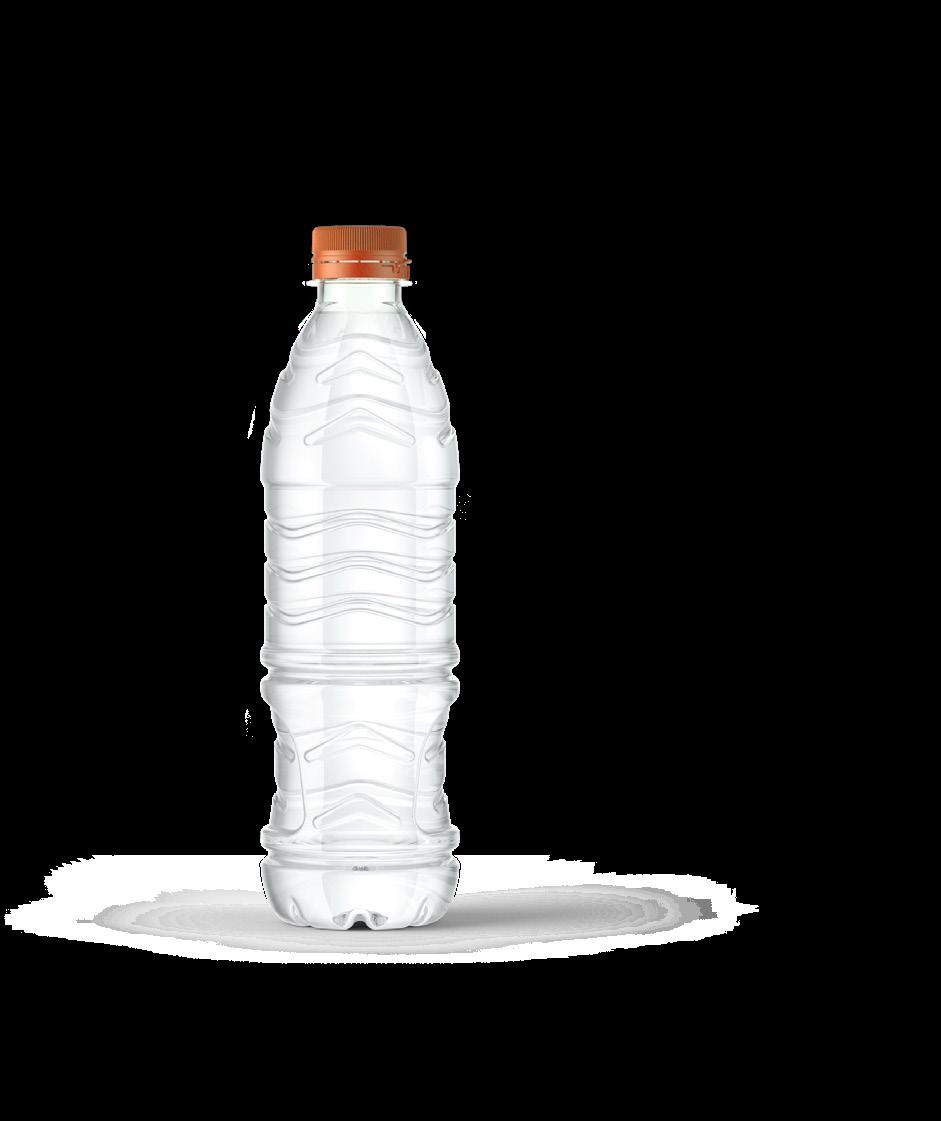
https://www.ife.co.uk/

March 24-26, 2023
Food Kenya Trade Show
Nairobi, Kenya
Focus: Food & Beverage
https://growexh.com/foodkenya/
March 27-29, 2023
World Tea Conference + Expo
Las Vegas, USA
Focus: Tea
https://www.worldteaexpo.com/
March 28, 2023
Africa Food Sustainability Summit
Nairobi, Kenya
Focus: Sustainability


https://www.foodbusinessafrica.com/ future/
March 30-01 April, 2023
AFMASS Food Expo
Nairobi, Kenya
Focus: Food & Beverage
https://www.afmass.com/
March 31, 2023
AFMASS Youth Summit
AFMASS Food Expo
Nairobi, Kenya
Focus: Food & Beverage
https://www.afmass.com/
March 31, 2023
Africa Food Industry Excellence Awards
AFMASS Food Expo
Nairobi, Kenya
Focus: Food & Beverage
https://www.afmass.com/

April 23-25, 2023
ISM Cologne
Cologne, Germany
Focus: Snacks & Sweets
https://www.ism-cologne.com/

May 04-05, 2023
Contract Manufacturing & Private Label Expo
Mumbai, India
Focus: Food & Beverage
https://www.cmplexpo.com/
May 9-11, 2023
SIAL Canada
Toronto, Canada
Focus: Food & Beverage
https://sialcanada.com/en/
May 10-12, 2023
Africa Food Safety & Nutrition Summits
Nairobi, Kenya
Focus: Food safety & Nutrition
https://summit.foodsafetyafrica.net/
May 16-18, 2023
Nigeria Meat Tech Expo
Ibadan, Nigeria

Focus: Meat Processing
https://nipoliexpo.com.ng/


May 28-30, 2023
Africa Food Manufacturing
Cairo, Egypt
Focus: Food & Beverage
https://www.africa-foodmanufacturing. com/en/Home.html
Like EVENTS CALENDAR Follow Us Foodbizafrica Follow Us Foodbizafrica Like Food Business Africa Magazine Connect with us Food Business Africa Magazine
TWO-STEP MOLDING CAN HELP YOU ACHIEVE:
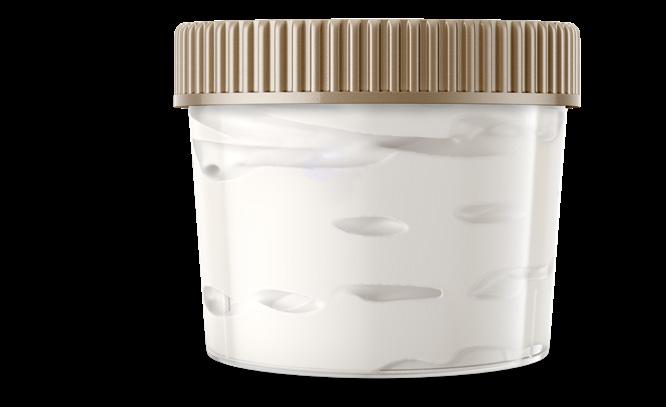

up to 20% Lower package part cost up to 20% Minimized package weight up to 9% Improved uptime Reduce initial CAPEX

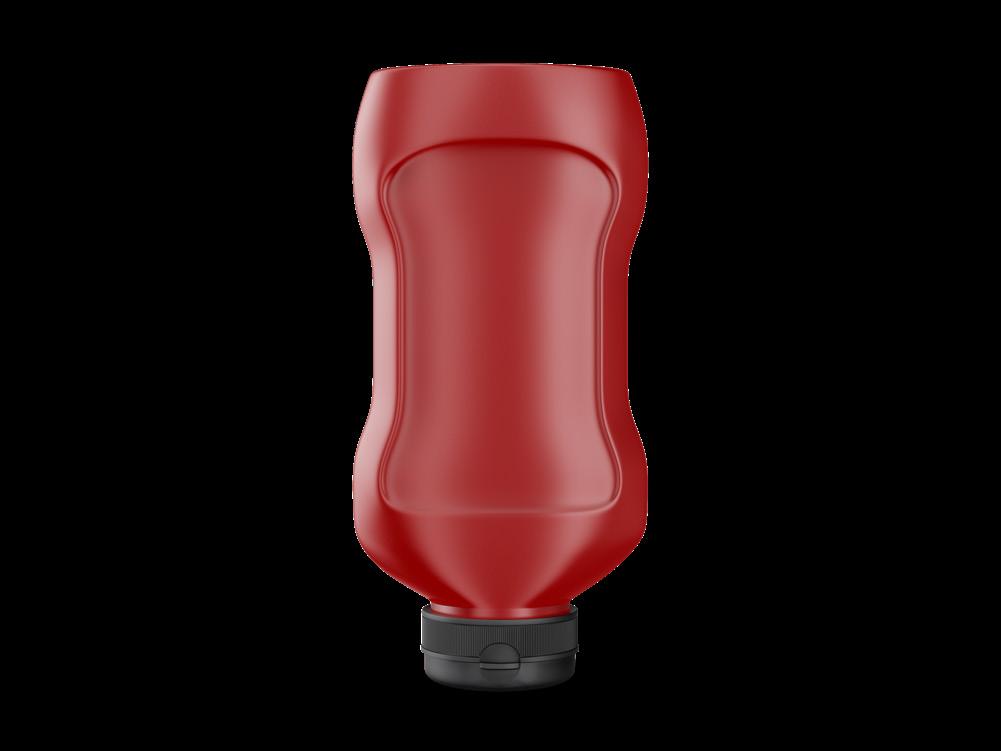





Campaigns.Husky.ca/TwoStepMolding
LEARN MORE »


FOOD SUSTAINABILITY SUMMIT FRICA BETTER PLANET. BETTER COMMUNITIES. MORE PROSPERITY March 29, 2023 Safari Park Hotel, Nairobi, Kenya DEFINING THE FUTURE OF SUSTAINABLE AGRICULTURAL PRODUCTION, FOOD MANUFACTURING AND RETAIL IN AFRICA. info@fwafrica.net +254 725 343 932 www.foodbusinessafrica.com/future Sign up to Sponsor, Attend & Speak Sign up to Attend the first pan-African high-level summit on mainstreaming sustainability in Africa's food and agriculture value chains. Join private sector food industry leaders, Government ministries and agencies, non-profit and academic/research institutes as they share their goals, strategies and policies to create a better planet, enable vibrant local communities and improve prosperity in the communities they operate in. Confirmed Sponsor:
CONFIRMED SPEAKERS












 ASHISH PANDE Country Head, Olam Agri, Nigeria
ESSAM EL-MADDAH HR & General Secretary Director, Danone Egypt & North East Africa
JUSTIN ARCHER COO East Africa & Group Head of Sustainability, Sucafina SA
CLAUDIA CASTELLANOS Managing Director, Black Mamba
JOACHIM WESTERWELD Executive Chairman, Bio Food Products
MILLICENT A. ADOBOE Co-Founder, Achiever Foods Ghana
CAESAR ASIYO Chief Development Officer, Victory Farms
SAINT-FRANCIS TOHLANG Corporate Affairs Director, Nestle East & Southern Africa
NICO ROOZEN Honorary President, Solidaridad Network
ROZY RANA Managing Director, Dormans Coffee
GAURAV VJ CEO, 260 Brands
BRETT THOMPSON Co-Founder & CEO, Mzansi Meat
ASHISH PANDE Country Head, Olam Agri, Nigeria
ESSAM EL-MADDAH HR & General Secretary Director, Danone Egypt & North East Africa
JUSTIN ARCHER COO East Africa & Group Head of Sustainability, Sucafina SA
CLAUDIA CASTELLANOS Managing Director, Black Mamba
JOACHIM WESTERWELD Executive Chairman, Bio Food Products
MILLICENT A. ADOBOE Co-Founder, Achiever Foods Ghana
CAESAR ASIYO Chief Development Officer, Victory Farms
SAINT-FRANCIS TOHLANG Corporate Affairs Director, Nestle East & Southern Africa
NICO ROOZEN Honorary President, Solidaridad Network
ROZY RANA Managing Director, Dormans Coffee
GAURAV VJ CEO, 260 Brands
BRETT THOMPSON Co-Founder & CEO, Mzansi Meat
NEWS UPDATES
by www.FoodBusinessAfrica.com
Blueberry farming in Morocco, South Africa set for growth as new investors pump in funds
the planting of 300 hectares of blueberries in three different regions.
In the coming years, the company intends to further expand its grower network via licensing of its proprietary varieties with a goal of reaching a total of 1,000 hectares across berry categories.
will be dedicated to climate-smart agriculture practices and will help the company adopt drip irrigation systems and water meters, among other measures.
MOROCCO – Agroberries Limited, a Chile based vertically integrated producer, marketer and distributor of berries, with a best-in-class portfolio of owned and proprietary berry genetic varieties, has invested €40 million (US$41m) to expand its operations to Morocco.
The first phase of the investment in the North African country includes
Meanwhile in South Africa, United Exports, a leading producer and exporter of blueberries, has received €14 million (US$13.9m) loan financing from World Bank’s IFC and the Dutch entrepreneurial development bank (FMO), to increase sustainable blueberry production, create jobs, and boost women’s participation in management roles.
The financial backing will support the fruit logistics company to adopt next-generation OZblu blueberry varieties that fall outside the frost window and expand its blueberry orchards to frost-free areas, including the Western Cape region.

In addition, a third of the funding
The support is expected to strengthen United Exports’ agribusiness value chain and create up to 1,340 direct and indirect jobs by 2030.
Kenyan B2B food distributor Twiga Foods opens new distribution center
KENYA – Twiga Foods, Kenyanbased technology food distribution platform, has officially launched its new Distribution Center, located at Tatu City in Ruiru, Kiambu County.

The world-class 200,000 sq ft facility is set to offer fulfillment by Twiga services to manufacturers, brand owners, and farmers across East Africa and expand its overall capacity and ability to deliver a selection of fresh produce, and retail products and provide partners access to over 140,000 customers across the Kenya and Uganda.
While addressing stakeholders during the launch, Twiga’s Group C.E.O, Peter Njonjo stated that the move will ensure convenient and affordable, food and retail commodities distribution across its
markets.
The state-of-the-art distribution unit is fitted with the latest logistics and warehouse technology such as racking systems, banana rooms, modern dock door systems, and product scanners which will enhance food traceability among other functions.
Further spearheading its growth, the food distributor launched its operations in Uganda, officially marking its first pan-African expansion drive into Africa’s online retail market.
NOV/DEC 2022 | FOOD BUSINESS AFRICA FOODBUSINESSAFRICA.COM 12
INVESTMENT
THE FINANCIAL BACKING WILL SUPPORT THE FRUIT LOGISTICS COMPANY TO ADOPT NEXTGENERATION OZBLU BLUEBERRY VARIETIES THAT FALL OUTSIDE THE FROST WINDOW.
Chr. Hansen to become part of Novozymes in biggest-ever Danish food industry deal
DENMARK – Chr. Hansen, a leading ingredients supplier for the food, pharmaceutical and agricultural industries, is set to become part of biotechnology company Novozymes what will be the biggest ever merger between two Danish food companies.
While both companies’ main business is producing enzymes, Chr. Hansen focuses more on enzymes and microbials for the food sector, while Novozymes’ largest business areas include enzymes for household products, food and beverages and biofuels.
The merger is expected to complete in the fourth quarter of 2023, creating a new group with annual revenues of approximately 3.5 billion euros (US$3.7 billion), the companies said.
After completion of the merger, Novozymes free float shareholders will own in aggregate 44% of the total share capital of the combined group, Chr. Hansen free float shareholders will own 34% and Novo Holdings will own 22%.
Novozymes CEO Ester Baiget and Chief Finance Officer Lars Green will continue in their positions in the combined group. “Novozymes and Chr. Hansen share the strong conviction that our combined scale, know-how, commercial strengths, and innovation excellence will drive value for our shareholders, customers, and society at large by providing the sustainable solutions the world so urgently needs,” Baiget said.
The companies said they expect the new group to post organic revenue growth of 6-8% until 2025, beyond which the ambition will be “to continue to deliver accelerated sustainable growth from the underlying business coupled with new, and de-risked, innovation and growth opportunities.”
Novo Holdings A/S, the largest shareholder in both Novozymes
and Chr. Hansen, has affirmed its confidence in the two companies being a perfect match. It further noted that the transaction would create a global leader in biosolutions that would capitalize on attractive growth opportunities while serving societal needs.
Novo Holdings has said it will vote in favor of the merger at upcoming extraordinary general meetings of both Novozymes and Chr. Hansen, set to take place during the first half of 2023.
Jørgen Buhl Rasmussen, Chairman of Novozymes, added: “We are excited by the immense, additional potential we see in joining Novozymes and Chr. Hansen to create a true global biosolutions leader underpinned by our shared Danish heritage.
The Novozymes-Chr. Hansen proposed deal comes as major ingredients firms seek new ways to grow. DSM and Firmenich are at advanced stages of becoming one, while IFF's acquisition of Dupont's nutrition and health business has closed.
Walmart takes full control of Massmart following US$371m stake acquisition deal
SOUTH AFRICA – South African retailer Massmart has delisted from the Johannesburg Stock Exchange following its full acquisition by American multinational retail corporation Walmart in a deal worth R6.4 billion (US$371m).
Walmart announced its intention to take over Massmart in August through acquisition all of the outstanding shares in the South African entity that it did not already own, excluding treasury shares.
Massmart, which owns prominent local retailers Game, Makro and Builder’s Warehouse, said the deal provides it with the financial and operational support to reach its growth objectives.

“Walmart is excited to be able to build on the long-term commitment we have already made to our South African customers, associates, and partners.
“Most importantly, this transaction represents a positive vote of confidence in Massmart and in South Africa, which will allow us to continue to contribute meaningfully to future economic growth in the region,” said Judith Mckenna, Walmart International CEO.
FOODBUSINESSAFRICA.COM NOV/DEC 2022 | FOOD BUSINESS AFRICA 13 M&A
THE CHR. HANSEN - NOVOZYMES TRANSACTION WOULD CREATE A GLOBAL LEADER IN BIOSOLUTIONS THAT WOULD CAPITALIZE ON ATTRACTIVE GROWTH OPPORTUNITIES WHILE SERVING SOCIETAL NEEDS.

FOOD Afmass EXPO The Future of Food in Africa Sarit Expo Centre, Nairobi, Kenya MARCH 30 - APRIL 1, 2023 AFRICA SAFETY FOOD SUMMIT & NUTRITION AFRICA'S MOST INFLUENTIAL FOOD PRODUCTS & NEW TECHNOLOGIES TRADE SHOWS Co-located with: info@fwafrica.net +254 725 343 932 www.afmass.com Sign up to Sponsor, Attend & Speak
TOPICAL ISSUES FOOD INNOVATION SUSTAINABILITY DIGITALISATION OPERATIONAL EXCELLENCE INVESTMENTS & TRADE FOOD, SAFETY SECURITY & NUTRITION
KEY
AFMASS COMPETITIONS



• The AFMASS Cake Decoration Competition is a new initiative by the organisers of the AFMASS Food Expo that is mainly focused on promoting excellence in cake making and decoration, advancing the pastry and baking profession in Africa and to create vibe and celebration at this pan-African Expo.

BARISTA COMPETITION
• The AFMASS Cocktails Competition at the AFMASS Food Expo promotes excellence and creativity in the art (and science) of cocktails making and thereby advancing the cocktail making profession in Africa.

• The AFMASS Barista Competition at the AFMASS Food Expo promotes excellence and creativity in the art of coffee making and thereby advancing the barista profession and coffee industry in Africa.

FOUR PAVILLIONS THAT COVER THE FOOD INDUSTRY FROM A-Z
FOOD AFMASS DRINKS
FOOD EXPO INGREDIENTS AFRICA MARKET
AFRICA EXPO Process &

PACK

CAKE
COMPETITION
DECORATION
COCKTAILS COMPETITION
NEW
Nestle extends marketing clampdown to under 16s
SWITZERLAND – Starting May next year, Nestlé, the largest publicly held food company in the world, will globally cease all marketing including advertisements targeting children below 16 years of age on certain high-sugar products.
The Swiss multinational food and drink giant said its new marketing communication to Children policy will prohibit direct advertising of confectionery and ice cream, as well as water-based beverages with added sugars, to younger teenagers.
The ban will be applied to TV and online platforms, including social media and gaming ones with greater than 25% of their audience under 16 years old.

SUSTAINABILITY
Heineken beefs up renewable energy capacity at African facilities
Additionally, Nestlé said it will not collect data on minors and only partner with social media influencers over the age of 18.
These safeguards, according to Nestlé, will help children and young adolescents build a solid foundation for a healthy lifestyle.
NIGERIA – Nigerian Breweries Plc (NB Plc), a subsidiary of Heineken International, has inked another green energy agreement with CrossBoundary Energy, a developer, owner, and operator of distributed renewable energy solutions for businesses across Africa, to deliver clean energy that will cover the electricity needs of its two facilities i.e., Ibandan and Ama breweries.

Under the project, valued at the sum of US$10 million, CrossBoundary Energy will expand the current renewable energy system at NB’s Ibadan Brewery from a 663 kWp solar PV plant to a hybrid solar-plus-storage facility consisting of a 3 MWp solar PV system and a 2 MW/2 MWh battery energy storage system (BESS).
Meanwhile, its Ama brewery will receive a 4 MWp solar PV plant and a 2 MW/2 MWh BESS.
The solar plants combined will supply approximately 10 GWh annually to the breweries at a significant
discount to their current cost of power and will reduce the sites’ CO2 emissions by 100,000 tonnes over the lifespan of the plants.
In addition, Heineken has also launched a solar power plant at its South African operations, boasting of 14,000 panels, having a significant 6.5MW of power, targeted to provide 30% of the brewery’s electricity demand.

Unlike many solar plants in South Africa constructed in parking lots or on roofs, or in a desert area, the Sedibeng brewery solar plant is built in a lush field covered with wild grasses.
It incorporates single axis tracking technology that enables the panels to move with the rise and setting of the sun.
NOV/DEC 2022 | FOOD BUSINESS AFRICA FOODBUSINESSAFRICA.COM 16 NEWS UPDATES
THE SOLAR POWER PLANT INCORPORATES SINGLE AXIS TRACKING TECHNOLOGY THAT ENABLES THE PANELS TO MOVE WITH THE RISE AND SETTING OF THE SUN.





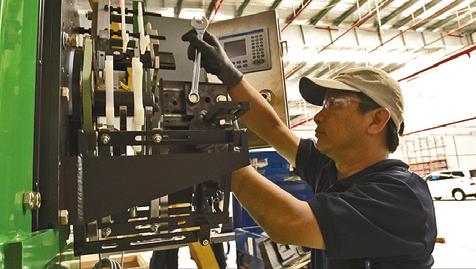













































































FOODBUSINESSAFRICA.COM NOV/DEC 2022 | FOOD BUSINESS AFRICA 17
Clover SA seeks to acquire back Dairy Farmers of South Africa
maintain existing milk procurement contracts with current suppliers for five years, on condition that they continue to supply regular raw milk to Clover at market-related prices.
“Lastly, Clover will make available to its competitor’s regular raw milk that is surplus to Clover’s own requirements at market-related prices,” the commission said.
SOUTH AFRICA – Clover SA, a branded consumer goods company active in the food and beverage industry, has gotten a node from the Competition Commission of South Africa to acquire milk procurement business, Dairy Farmers of South Africa.

The commission has conditionally proposed the Competition Tribunal to approve the proposed deal that will see Clover SA take full ownership of DFSA, which provides raw milk
procurement services to it.
DFSA procures regular raw milk from milk producers predominantly located in KwaZulu Natal, Eastern Cape, and the Highveld.
Its operations include buying milk from farmers, transporting raw milk from farmers to the factories for cooling down, quality checks, as well as administrative, financial and contract management services.
The commission said the merging parties had agreed that Clover would
Angolan sausage company Sano Dia to open a new US$70M factory to cut reliance on imports

ANGOLA — Sano Dia, an Angolabased private limited company, is building a new sausage and mortadella factory in the country’s capital Luanda to cut reliance on imports.
The US$70 million facility is located at the Zona special economy (ZEE), an industrial economic zone in LuandaBengo, Viana.
It is expected to create 90 new job opportunities, with 63 going to Angolans while the remaining 27 will be filled by foreign nationals.
Onset of operations of the new factory is scheduled for October 2023 with the physical completion of the
work currently standing at 70%.
By January 2024, the factory is expected to be effectively up and
NOV/DEC 2022 | FOOD BUSINESS AFRICA FOODBUSINESSAFRICA.COM 18 NEWS UPDATES
ACQUISITION
running with an installed processing capacity of 100 tons per day.
CLOVER WILL MAINTAIN EXISTING MILK PROCUREMENT CONTRACTS WITH CURRENT SUPPLIERS FOR FIVE YEARS, ON CONDITION THAT THEY CONTINUE TO SUPPLY REGULAR RAW MILK TO CLOVER AT MARKETRELATED PRICES.
Heineken to dissolve Japanese joint venture with Kirin Holdings
starting next year after over three decades of trading in Japan under a joint venture with Kirin Brewery.
In the new business move, Heineken will convert the joint venture, Heineken Kirin, into a wholly owned subsidiary and will be known as Heineken Japan, from April 2023.
Under the joint venture, launched in 1989, Kirin handled sales of canned and bottled Heineken for the consumer market.
Heineken will take over that role once the joint venture is dissolved while Kirin will continue to brew beer under the Heineken brands and sell it to commercial customers.

The market leader in Europe is also shutting seven of around 50 breweries on the continent and looking for more cross-border cooperation between its national operating companies.
Ghana welcomes new craft beer manufacturing company Specialty Beers Limited
GHANA – The President of the Republic of Ghana, Nana Addo Dankwa Akufo-Addo, has commissioned the newly established Specialty Beers Ghana Limited (SBL), specializing in the production of ale using locally sourced raw materials.

SBL, registered as a company in 2012, commenced operations in 2020 and gained the needed support from the government’s One-District-OneFactory initiative in 2021, enabling it to set the turbines rolling at its manufacturing facility.
JAPAN – Dutch brewing company
Heineken has resorted to taking a solo path in Japanese consumer sales
SUSTAINABILITY
It has also reduced its product range and is channeling more marketing into fewer brands.
Following the completion of the factory with a processing capacity of 10,000 hectolitres per year, SBL, has launched a new beer brand in the West African market dubbed Tale coming in four distinct flavors i.e., Farmhouse Ale (5% abv), Hibiscus IPA (6% abv), Ginger Triple (7% abv), and Cocoa Stout (8% abv).
Ghanaian cocoa processor Koa receives
B Corp certification
GHANA – Koa, a Swiss-Ghanaian sustainable cocoa processing startup, has received the B-Corporation certification, marking a tremendous milestone in the company’s 5 years of operation since establishment of its innovative cocoa fruit venture.
B Corp certification is owned by B Lab and is only awarded to companies that demonstrate verifiable positive impact through policies and practices across five areas – governance, workers, community and suppliers, customers, and the environment.
The certification process examines a company’s entire operations and
requires the business to make a legal commitment by changing its corporate governance approach to be accountable to all stakeholders.
Certified businesses must also exhibit transparency by allowing information about their performance measured against B Lab’s standards to be publicly available on their B Corp profile on B Lab’s website.
Koa got a score of 95.7 points, joining a growing movement of around 6,000 Certified B Corporations from 158 industries across 86 countries, including companies like Ben & Jerry’s, Innocent Drinks and Valrhona.
The new craft beer is mainly made using adjuncts such as maize and broken rice, partly replacing malted barley which is not locally available, reducing the country’s dependency on the importation of raw materials.
FOODBUSINESSAFRICA.COM NOV/DEC 2022 | FOOD BUSINESS AFRICA 19 STRATEGY
Snacks maker Edita Foods installs second production line in Moroccan facility
MOROCCO – Edita Foods, Egyptian packaged snacks maker, has expanded its Moroccan operations with installation of a second production line at its recently opened facility in Berrechid.
Establishment of the new line comes less than a year since the snack manufacturing giant expanded its presence in the North African market with inauguration of its first overseas production facility in Morocco.
After successfully commencing local production of its HOHOs brand in the Moroccan market, the company now seeks to introduce a new range of cake products, under Edita’s flagship brands Twinkies.

The new Moroccan facility is owned and operated by Edita Food Industries Morocco, in partnership with Dislog Group, a leading Moroccan FMCG distributor, both holding 77% and 20% stake in the new entity respectively.
MARKET STRATEGY
Bigtree Brands, SAB, SABC, Castel Malawi unveil new corporate identities
Dislog operates one of Morocco’s largest FMCG distribution networks with wide coverage across all channels.
AFRICA – Bigtree Brands, a subsidiary of Zambia’s leading manufacturer of Fast-Moving Consumer Good – Trade Kings Group, has rebranded to Bigtree Premium Quality as it repositions and strengthens its business in the local and global market.
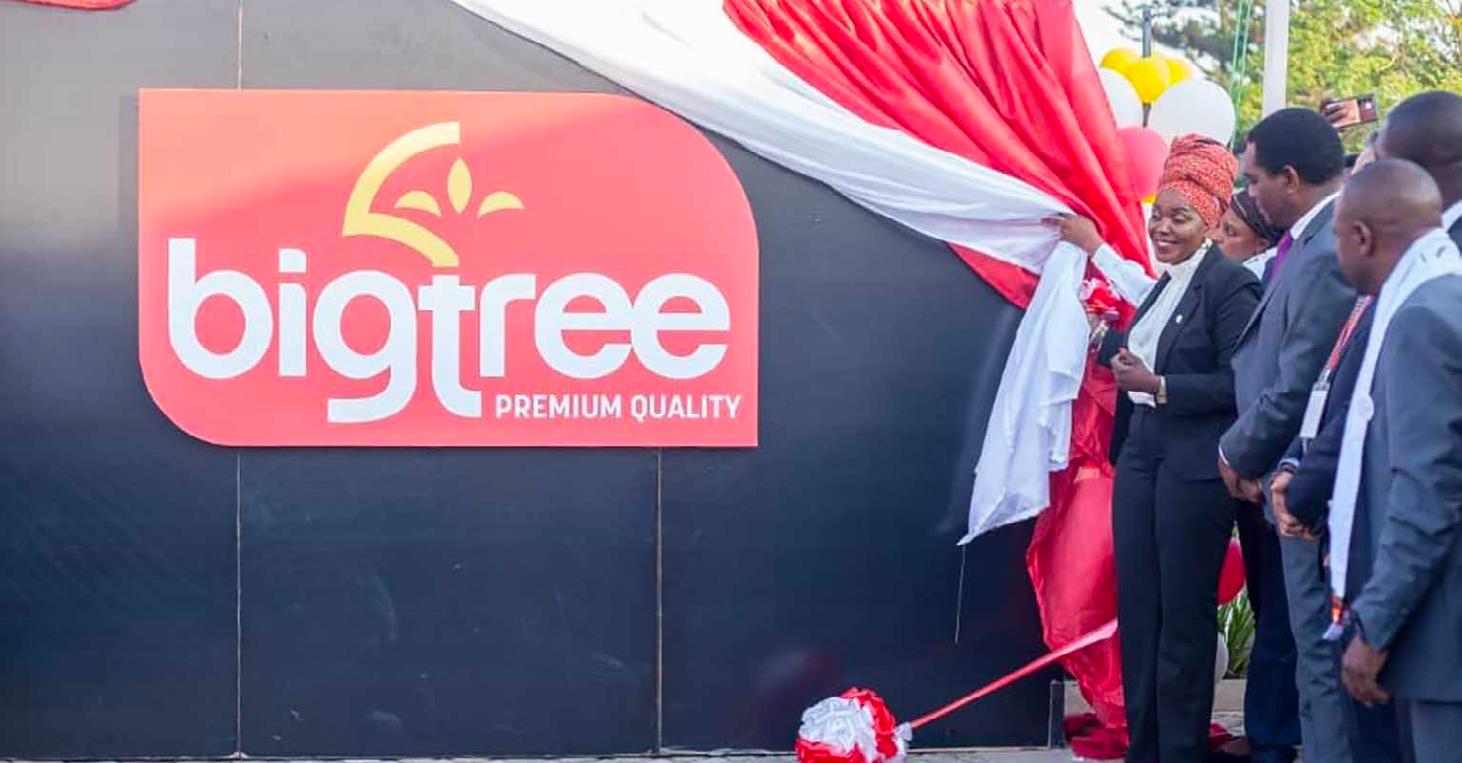
The new brand identity unveiled in the presence of President of Zambia Hakainde Hichilema, comes amidst consistent growth registered in the company, including a US$103m million investment in a state-of-the-art production facility in the Lusaka South Multi Facility Economic Zone.
The rebrand signifies a combination of the company’s portfolio of products i.e., cereals, condiments, tea and baking aids which were trading under Bigtree Brands, with its drinks’ portfolio trading under the Bigtree Beverages.
Also, beer maker South African Breweries (SAB) has revealed a new logo and slogan as part of a holistic brand repositioning campaign.
The new logo features a gold circle that transitions into a red line, which intersects with a red typeface to form the letters SAB.
The new typeface was designed so that the ‘AB’ pays direct homage to the logo of SAB’s parent company
Anheuser-Busch (AB) InBev.
Along with the new logo, a new slogan was also coined for the company: “To a future with more cheers”.
Meanwhile, Société Anonyme des brasseries du Cameroun (SABC), Cameroon’s largest brewery, has officially rebranded its business to Société Anonyme des boissons du Cameroun, replacing the word “breweries “with “beverages “in the company’s acronym.
According to Stéphane Descazeaud, the general manager of SABC, the change reflects more the anchoring of the company in the Agroindustry, and not only in the brewing activity.
With the change of name, the Socaver and Semc entities, specializing respectively in the manufacture of hollow glass, racks, and preforms; and in the production of mineral waters, will also be united under the same name and a single identity: Beverages of Cameroon.
In Malawi, Castel changed the name of its subsidiary Southern Bottlers Limited to Castel Distribution Limited, months after selling the soft drink unit of the business to CocaCola Beverages Africa.
NOV/DEC 2022 | FOOD BUSINESS AFRICA FOODBUSINESSAFRICA.COM 20 NEWS UPDATES





Dairy AFRICA MANUFACTURING SUMMIT & EXPO AN FW AFRICA EVENT JUNE 21-23, 2023 THE SUSTAINABILITY & INNOVATIONS TRADE SHOW & SUMMIT FOR AFRICA’S DAIRY & LIQUID FOODS INDUSTRY CONFIRMED SPEAKERS JOACHIM WESTERVELD Executive Chairman, Bio Food Products, Kenya Serena Hotel, Dar es Salaam, Tanzania DENIS CHITOWE Founder & CEO, Mzuzu Dairy, Malawi KALPA PADIA Managing Director, Raka Cheese NKOSANA MTIMKULU Founder, South Western Dairy, South Africa info@fwafrica.net +254 725 343 932 www.dairybevafrica.com Sign up to Sponsor, Attend & Speak
PepsiCo to inject US$40m in Ethiopian snacks subsidiary Senselet for expansion
ETHIOPIA — PepsiCo, multinational food, snack, and beverage corporation is seeking to invest US$40m to expand its snack business in Ethiopia dubbed Senselet.
The earmarked investment is set to increase the production capacity of the potato chips maker by tenfold and enable it expand beyond snacks.
Senselet, the producer of SUN Chips was established in 2015 with commercial processing commencing in 2017.
Its SUN Chips comes in a wide variety of flavours including Natural (salty), Habesha (locally spiced), Tomato and Paprika flavoured, packaged in 3 different pack sizes and sold across approximately 10,000 small-retail outlets in the country.

Nestlé installs solar power plant in South Africa targeting net zero emissions by 2050

PepsiCo highlighted that its strong knowledge of potato cultivation will enable Senselet to take the next steps in contributing to the development of the potato value chain and agriculture sector in Ethiopia.
SOUTH AFRICA - In line with its 2030 ambition to attain zero environmental impact in its operation and achieve net zero emissions by 2050, Nestlé, has mounted 1’806 solar PV panels at its Babelegi Manufacturing Plant in South Africa.
The solar plant with an installed capacity of 966kW is expected to deliver some 2’128’149 kWh of energy per annum, equal to 15.6% of the total electrical energy requirement of the factory for the full year.
This is the second manufacturing plant in the region with an installed solar plant following installations at the Harrismith Factory, which were completed in August 2022.

It is sized with a capacity of 1’189kW, which includes a ground mounted system and additional solar PV capacity on the roofs of the new carport structures.
The 1’946 solar PV panels are expected to deliver some 1’714’191
kWh of energy per annum, equating to 10% of the total electrical energy requirement of the factory for the full year, generating approximately 45% of the factory demand during daylight hours.
Installations at both facilities, deemed as the first phase of the renewable projects, are pegged to deliver just over 3% of Nestlé ESAR’s power requirements.
The second phase of the renewable energy projects is set to add five additional development sites; extending Babelegi’s second phase expansion to 1’500’000kWh, or 11% of annual electricity requirement for the factory.
NOV/DEC 2022 | FOOD BUSINESS AFRICA FOODBUSINESSAFRICA.COM 22 NEWS UPDATES
INVESTMENT
THE 1946 SOLAR PV PANELS ARE EXPECTED TO DELIVER SOME 1’714’191 KWH OF ENERGY PER ANNUM, EQUATING TO 10% OF THE TOTAL ELECTRICAL ENERGY REQUIREMENT OF THE FACTORY FOR THE FULL YEAR.
Molson Coors plots exit from US CBD market citing difficulties in scaling up
was launched in Colorado in January in 2021, with Truss USA now shipping to 26 states including Alaska, Arkansas, Colorado, and Connecticut.
However, the company does not see enough potential in the category over the near-term to keep operations running: in particularly noting the difficulties in scaling up the business as it would hope to do in an emerging beverage category.
USA – Molson Coors will unwind its Truss USA joint venture and exit the CBD beverage business in the United States at the end of this year.

The beverage giant cites a lack of certainty over federal legalisation of cannabis products: resulting in an unwillingness from other stakeholders (such as retailers and distributors) to take on CBD brands.

Truss USA a joint venture between Molson Coors and cannabis producer HEXO Corp launched in 2020 (mirroring their continuing Canadian
joint venture which was launched in 2018).
The goal was to 'forage a new space at the intersection of the beverage world and the CBD frontier', with their premium, non-alcoholic beverages and beverage drops.
In contrast to the Canadian jointventure, Truss USA has been focusing solely on CBD beverages (never exceeding 0.3% THC) as per US regulations.
Hemp-derived CBD water Veryvell
CCBA invests US$14m in new PET plastic bottle production line in Mozambique
development in the region.
Before the new plant was built, the Northern region relied on products manufactured in the Central region, over 1 000km away.
MOZAMBIQUE – CCBA (Mozambique) has invested US$14 million in a new polyethylene phthalate (PET) plastic bottle production line at its Nampula
factory.
The new line will create employment opportunities and is expected to contribute to economic
CCBA’s Nampula plant now produces approximately 14,400 bottles of 200ml PET bottles per hour, cutting down on transport costs and CO2 emissions.
FOODBUSINESSAFRICA.COM NOV/DEC 2022 | FOOD BUSINESS AFRICA 23
STRATEGY
THE BEVERAGE GIANT CITES LACK OF CERTAINTY OVER FEDERAL LEGALISATION OF CANNABIS PRODUCTS, RESULTING IN AN UNWILLINGNESS FROM OTHER STAKEHOLDERS TO TAKE ON CBD BRANDS.
Heifer International, Amo Farm Sieberer Hatchery to establish poultry processing unit in Nigeria

was designed to help smallholder poultry farmers earn a sustainable living income.
He highlighted that other than increasing access to premium markets, the initiative will also avail finance and new technology for smallholder poultry farmers.
NIGERIA – Heifer International, an international development organization has signed a memorandum of understanding with the Edo State government in Nigeria and the poultry company Amo Farm Sieberer Hatchery Limited (AFSH) for the installation of a poultry processing plant.
According to Stephen Idehenre, the State’s agriculture minister, the new unit will have a processing capacity of 10,000 birds per day and is scheduled to start operating by December 15.
Idehenre said, “The essence of the MOU is to create a market for our poultry farmers. We have identified
one of the problems of farmers which is the lack of access to the market.
“We have now brought in a poultry birds off-taker which is Amo farms to offtake and process about 10,000 poultry birds per day. Most of those abandoned poultry farms will be revived because there is now a ready market.
“If we must grow agribusiness, we must begin to find a solution to the off-takers challenge that we have in all the agricultural value chains,” he highlighted.
Mr Rufus Idris, the Country Director, Heifer Nigeria, echoing Idehenre’s sentiments noted that the initiative
AB InBev to inject additional US$78.3m into expanding Indian plant
interest in scaling the production capacity of its plant in Mysuru with another ₹500 crores (US$78.28m).
AB InBev has manufacturing units in 150 countries, with a diverse portfolio of over 500 beer brands including global beer brands such as Budweiser, Corona, and Stella Artois.

In November, the company said it expects India to be among the top three markets for Budweiser in the next three years, led by double-digit growth in the premium beer segment.
The company is also increasing the localization of its two other brands — Corona and Hoegaarden — operating in the premium segment and stopping imports in the coming years, AB InBev President – India & South East Asia Kartikeya Sharma said.
However, the company said beer will remain a core offering for AB InBev India but will look to introduce India-specific innovations across beverage categories in the alcoholic and non-alcoholic segments.
NOV/DEC 2022 | FOOD BUSINESS AFRICA FOODBUSINESSAFRICA.COM 24 NEWS UPDATES
INVESTMENT
INDIA – Belgium-based multinational brewer, AB InBev, has expressed
IF WE MUST GROW AGRIBUSINESS, WE MUST BEGIN TO FIND A SOLUTION TO THE OFF-TAKERS CHALLENGE THAT WE HAVE IN ALL THE AGRICULTURAL VALUE CHAINS.
Stephen Idehenre, Edo State Agriculture Minister
SAFETY FOOD
SUMMIT & NUTRITION
Eastern Africa Edition
Nairobi, Kenya
March 3-April 1, 2023
AFRICA SAFETY FOOD
SUMMIT & NUTRITION
Western Africa Edition
Lagos, Nigeria
September 27-28, 2023
AFRICA SAFETY FOOD
SUMMIT & NUTRITION
Southern Africa Edition
Lusaka, Zambia 2024
AFRICA
REASONS TO ATTEND THE SUMMIT
Be inspired by an unprecedented lineup of food safety and nutrition experts and opinion shapers from across Africa and the World.
Meet and network with some of the most influential key decision makers from the private and public sectors, NGOs and more across various disciplines and countries from Africa and beyond of career-changing exchanges and innovative ideas.
Get answers to the most-pressing food safety, nutrition and food security challenges at the regional high-impact conferences and exhibitions

FOODBUSINESSAFRICA.COM NOV/DEC 2022 | FOOD BUSINESS AFRICA 25
DISCOVER THE FUTURE OF FOOD SAFETY, NUTRITION & FOOD SECURITY IN
info@fwafrica.net +254 725 343 932 www.summit.foodsafetyafrica.net Sign up to Sponsor, Attend & Speak AFRICA SAFETY FOOD SUMMIT & NUTRITION AFRICA
UK – Unilever, the world’s biggest ice cream manufacturer, sees the use of precision fermentation as a “significant trend” for the future and has decided to invest in “cow-free dairy” as part of efforts to reduce the carbon footprint of its ice cream.

The British multinational consumer goods company said it is working with start-ups in Europe on the technology and could launch a product next year.
Reports say Unilever invests around 1% of its turnover on ice cream R&D, with no sufficient information on how much of that is being funneled into precision fermentation.
Snacks makers Céréalis, Newman Foods receive equity investments
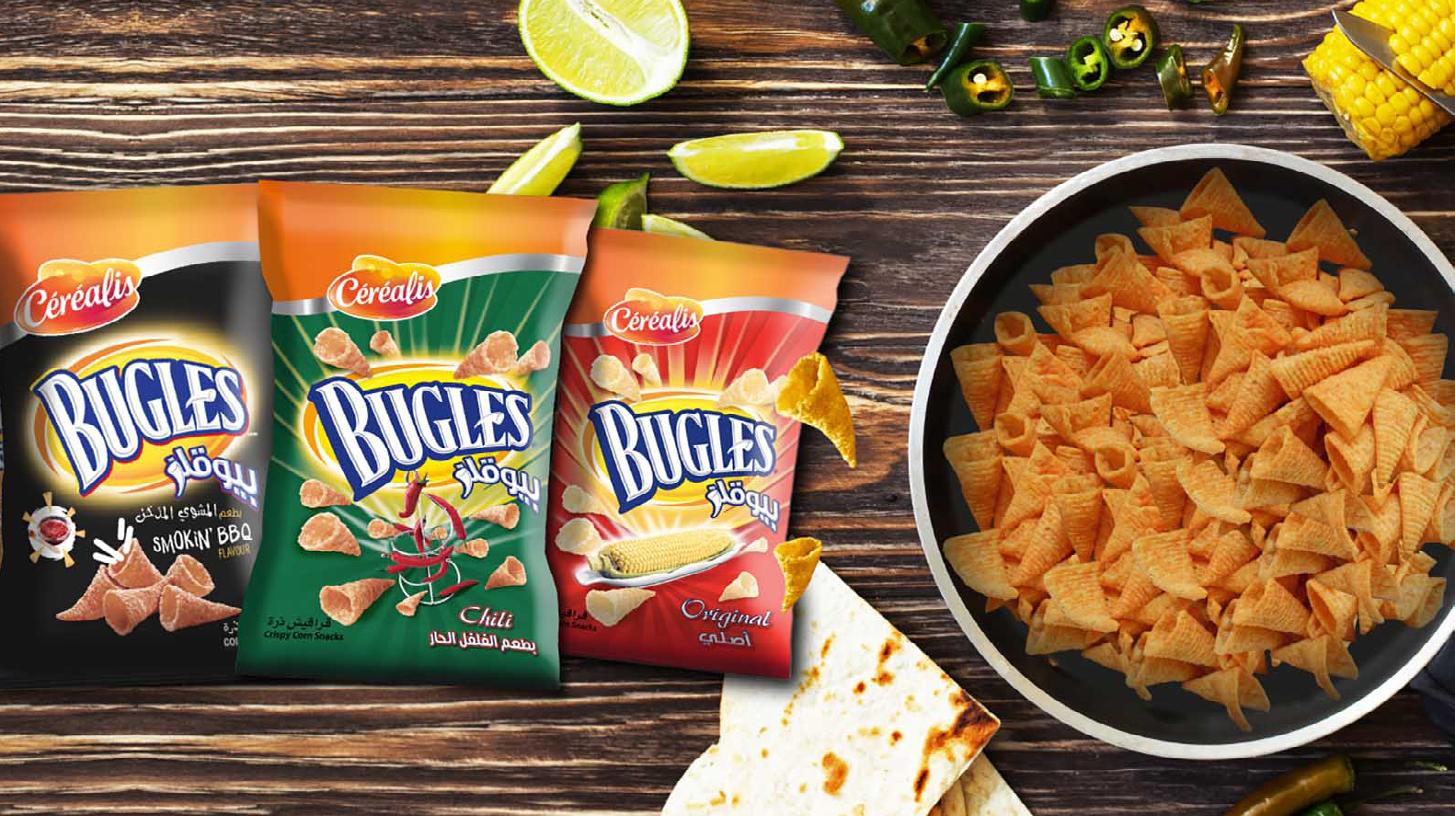
Unilever’s chief R&D officer for ice cream, Andrew Sztehlo said the biggest challenges for products made using precision fermentation lie in the development of the proteins, associated innovation costs, and getting the taste right.
The investment is one of three methods the company is using to reduce the greenhouse gas emissions from its ice cream business. The others are using plant-based protein and something Unilever dubs “better dairy” – managing the quality of feed given to cows to reduce the number of greenhouse gases emitted.
TUNISIA – Admaius Capital Partners, a leading pan African private equity house through its Virunga Africa Fund 1 has made a significant investment in Power Brands, the parent company of Céréalis S.A., Tunisia’s leading producer of salted snacks and a significant producer of baked goods.
Founded in 2004, Céréalis has grown rapidly to become Tunisia’s largest salty snacks producer with a range of leading branded products, leveraging on modern, fully automated production lines, and the superior raw materials that it sources from its exclusive international strategic partners.
Admaius will partner with the current owners of Power Brands, the Gahbiche family and Ekuity Capital, a leading Tunisian private equity investor, to build a leading branded FMCG platform through a combination of organic growth and selective acquisitions to expand and build on Céréalis’s portfolio of strong local brands.
In other related news, Yield Uganda Investment Fund, an agribusiness impact vehicle, has channeled an equity investment to Newman Foods, an agro-processing company based
in Kampala.
Newman Foods focuses on the production and marketing of branded food and snacks sold through retail stores in the local and regional markets, as well as the aggregation and export of fresh fruits and vegetables (FFV) to the European market.
The investment, comprising of a blend of equity and quasi-equity, will be channeled towards scaling the company’s consumer foods and snacks segment through the construction of a new processing facility.
NOV/DEC 2022 | FOOD BUSINESS AFRICA FOODBUSINESSAFRICA.COM 26
Unilever embraces precision fermentation, to launch ice cream from cow-free dairy in 2023
INVESTMENT
NEWS UPDATES
ADMAIUS WILL PARTNER WITH POWER BRANDS TO BUILD A LEADING BRANDED FMCG PLATFORM THROUGH A COMBINATION OF ORGANIC GROWTH AND SELECTIVE ACQUISITIONS.
Tata Consumer Products advances acquisition talks for Bisleri International Private Limited
INDIA – Tata Consumer Products is in an advanced stage of discussion to acquire Bisleri International Pvt. Ltd, which commands over 30% of the bottled water market in India.
After owning Bisleri for more than 50 years, Ramesh Chauhan is poised to let go of the packaged water company to Tata Consumer Products Ltd for an estimated Rs 6,000-7,000 crore.
The divestment of the water company had also attracted interest from Reliance Industries, Danone, and Nestle.
However, Bisleri’s chairman Chauhan said he opted for Tata
SUSTAINABILITY
Consumer Products Ltd as they would “nurture and take care of it even better.”
The planned deal comes at a time when the bottled water market in India valued at US$2,970.61 Million in 2021, is projected to reach US$8923.84 Million by 2029, exhibiting a CAGR of 13% during the forecast period (20222029).
Time will however tell whether Bisleri will actually boost Tata Consumer’s profitability as the market is characterized by intense local competition, counterfeits, and low pricing power.
PepsiCo to double use of reusable packaging to 20% by 2030
drinks platform with reusable cups; and accelerate growth in powders and concentrates.
Earlier this year, PepsiCo agreed to reduce its use of single-use packaging by the end of 2022 in response to a shareholder proposal from As You Sow, a sustainability nonprofit. Pathways to meet this target, such as doing more with SodaStream or powders, were mentioned by PepsiCo in its latest announcement on Monday.
Court reverses EU ban on titanium iioxide
USA - PepsiCo has announced plans to double the percentage of all beverage servings it sells delivered through reusable models from a current 10% to 20% by 2030.

PepsiCo said it will focus on four areas to meet its goal: expand the company’s SodaStream business, build out refillable plastic (PET) and glass bottle offerings, grow its fountain
“Fundamentally transforming the traditional beverage consumption model will require making reusable and refillable options accessible and convenient, at scale, for consumers – and that’s what PepsiCo aims to do,” said Jim Andrew, PepsiCo’s chief sustainability officer, said in a statement.
PepsiCo said the updated packaging goal will help it meet its target of reducing virgin plastic per serving by 50% by 2030 and to become Net Zero by 2040.
EUROPE - The European Union erred when it banned titanium dioxide, a chemical often used as a food colorant, its judicial branch has ruled.
The Court of Justice of the European Union ruled in late November that the EU’s classification in 2019 of titanium dioxide as carcinogenic was based on faulty scientific analysis.
It annulled that classification, along with any labeling requirements for products that contain titanium dioxide.

The concern with titanium dioxide centers on its tendency to break into nanoparticles that can accumulate in the lungs and elsewhere in the body.
But the court ruled that the scientific study on which the EU based its ban was unreliable and that the danger posed by titanium dioxide was “non-intrinsic,” since it is not designed to decompose into nanoparticles and does not invariably do so.
In the wake of the European court’s ruling, the Center for Science in the Public Interest announced Dec. 5 that it is advising consumers to avoid products with titanium dioxide.
FOODBUSINESSAFRICA.COM NOV/DEC 2022 | FOOD BUSINESS AFRICA 27
ACQUISITION
Pan-African food sustainability summit attracts heavyweights in food and agriculture industry
KENYA – The Africa Food Sustainability Summit, set to be hosted in Nairobi, Kenya on March 28, 2023 continues to attract interest from across the food and agriculture industry value chain in Africa, as the event preparations heat up.
Set to be held at the Safari Park Hotel in Nairobi, Kenya, the high-level, pan-African summit will bring together more than 400 delegates in both physical and virtual formats to discover and share the future of sustainability in the agriculture, food processing and retail industry in Africa.
The event is the first of its kind in the region that is focused on the emerging area of sustainability, and will act as the fulcrum from which food industry supply chain actors will learn, network and do business with other key stakeholders from Africa and beyond.
The Summit, according to the organisers, is targeted at high-level C-Suite executives and investors in the food and agriculture industry in Africa; government ministries and agencies; non-profit sector actors; academicians and researchers and other stakeholders in the food supply chain, such as suppliers of financial services and new technologies, consultancy and training etc.
It has so far attracted speakers from a number of food industry players from across Africa including Olam, PepsiCo, Bio Food Products, Nestle, Diageo, Dormans Coffee, Mzansi Meat, Danone, 260 Brands, Vistory Farms, Sucafina, Solidaridad Network, Black Mamba, Achiever Foods, among many others.
“The subject of sustainability is one of the key issues facing each investor
or top executive, not only in Africa but globally as well, and the food and agriculture industry is especially at the core of the problem and at the same time, is in the spotlight to find solutions to the sustainability challenges facing Africa and the World,” states Francis Juma, the Founder & CEO of FW Africa, the organiser of the Summit.
Juma explains that companies recognize that to achieve significant progress on sustainability in Africa and globally requires the contribution of everyone and every player in the food and agriculture value chain, and therefore the participating companies will use the event to share the opportunities, challenges and trends they have come across as they seek to inculcate a sustainable culture and practices across their value chains in Africa.
“Food production accounts for an estimated 37% of greenhouse gas emissions which lead to climate change and at the same time unfortunately, climate change has a huge negative effect on food production by reducing crop yields, the nutritional quality of major cereals, and lowering livestock productivity. Climate change and its direct impact means that the food security challenge will only become more difficult, as the world will need to produce about 70 percent more food by 2050 to feed an estimated 9 billion people, according to the World Bank.”

HIGH-LEVEL CONFERENCE
The Summit, according to Juma, will provide the perfect platform for leaders from the private, public, nonprofit and academia and research sectors in Africa and globally to share on their sustainability goals, initiatives
and status of their sustainability projects in Africa.
Some of the key issues to be discussed at the following:
• Sustainable local food production and sourcing
• Renewable energy transition
• Cleaner, circular economy and net zero strategies
• Leadership, Strategy and governance
• New Food Technologies and Digitalisation
• Diversity, Equity & Inclusion
• Ethical Financing and Investing
“Sustainability has become a fairly wide subject – beyond the corporate social responsibility initiatives that many are aware of - and it is easy to get lost in understanding the various elements that make up or even where to begin as a company to implement sustainability initiatives along your value chain,” explains Juma, adding that the Summit will avail subject matter experts to help guide attendees on their strategies and plans.
More information about the Summit can be found at www. foodbusinessafrica.com/future
NOV/DEC 2022 | FOOD BUSINESS AFRICA FOODBUSINESSAFRICA.COM 28
EVENT PREVIEW


FOODBUSINESSAFRICA.COM NOV/DEC 2022 | FOOD BUSINESS AFRICA 29 Food Processing Equipment & Supplies • Packaging Equipment & Supplies • Packaging Materials • Engineering, Refrigeration & Cooling Technologies • Printing & Labelling Solutions • Quality Control & Food Safety Solutions • Food Storage & Serving Solutions • PLUS MANY MORE . . . . Meet & Network with the leading manufacturers and distributors of food storage, processing, engineering and packaging technologies from across the World at the Packaging Africa Expo. Discover the latest market trends for your next project in Africa. WWW.AFMASS.COM
Process & MARCH 30 - APRIL 1, 2023 SARIT EXPO CENTRE, NAIROBI, KENYA SEPTEMBER 27-28, 2023 LAGOS, NIGERIA WWW.AFMASS.COM A SPECIAL PAVILLION AT: FOOD Afmass EXPO The Future of Food in Africa
PACK AFRICA EXPO


JUNE 15-17, 2023 Sarit Expo Centre, Nairobi, Kenya THE BIGGEST HEALTHCARE & PHARMA EXPO IN EASTERN AFRICA info@fwafrica.net +254 725 343 932 www.expo.healthcareafrica.info Sign up to Sponsor, Attend & Speak Sign up today to attend Expo showcasing solutions from Regional & International companies plus informative Conference sessions
WHAT’S ON SHOW AT THE EVENT



& Care Hospitals
Devices Medical Africa & Expo Diagnostics Medilab
Health & Care Animal Africa & Expo Logistics
Chain
Health
Africa & Health Nutrition Wellness
Pharma Africa
Health
& Insurance
Expo Africa
Expo
Africa Expo
Supply
Africa
Expo
Expo
Expo Africa
Financing
Expo Africa HealthTech
APPOINTMENTS Update
Francis Dufay takes helm of Jumia as co-founders Jeremy Hodara, Sacha Poignonnec exit
Unga Group CEO Joseph Choge takes up more roles
KENYA – Unga Group, has undertaken a business restructuring, placing its two subsidiaries; Unga Limited and Unga Farm Care (EA) Limited under the management of Group Managing Director and CEO Mr. Joseph Choge.
Previously, the subsidiaries had their own heads who reported to the CEO of the listed entity –Unga Group— through a series of chains of command.
Unga Limited which deals in milling wheat and maize for human consumption was under the leadership of Mr. Andanje Mwairumba.
Dickson Jawichre, served as the general manager for Unga Farm Care (EA) Limited which processes animal nutrition products.
Zambeef names M’boo Mumba as Chief Financial Officer
AFRICA – Africa’s leading eCommerce and logistics company, Jumia, has appointed Francis Dufay as the Acting CEO following the resignation of the company’s two Co-CEOs Jeremy Hodara and Sacha Poignonnec.

Hodara and Poignonnec launched Jumia alongside Tunde Kehinde and Kofi Afaedor in 2012 and had been at the helm of Africa’s only publicly traded company on the NYSE since then.
They oversaw Jumia’s pan-African expansion across 11 countries as well as its product journey that now includes a marketplace, JumiaPay, its payment arm and a logistics platform.
Francis has been with the company since 2014 and has held multiple senior leadership roles, including CEO of Ivory Coast and recently Executive Vice President (EVP) Africa with responsibility for the group’s e-commerce business across Africa.

The Supervisory Board has also named Antoine Maillet-Mezeray previously the Group Chief Financial Officer, as the new Executive Vice President, Finance & Operations.
Meanwhile in Uganda, the ecommerce giant has appointed Mr. Vinod Goel as the new Chief Executive Officer.
The two gentlemen have since left the organization and join 117 others who have left the miller since last year when cost-cutting measures were switched on to restore the business to profitability.
ZAMBIA – Zambeef, the fully integrated cold chain foods and retail business with operations in Zambia, Nigeria and Ghana, has announced the appointment of Mr. M’boo Mumba as Chief Financial Officer (CFO) of the Company, effective 1 December 2022.

M’boo will also become a Director of Zambeef and join the Board subject to the satisfactory completion of the required AIM regulatory due diligence.

He joined the group in May 2020 as Project Manager before he took up the role of Group Head of Treasury and Administration, bringing brought to the company skills which combine industry, financial and banking experience of more than 16 years.
M’boo has also worked as CFO for Wild Life Conservation Society, before joining Standard Chartered Bank Zambia Plc where his last portfolio was at Director level in corporate banking. He holds a Bachelor of Accounting degree and is an ACCA professional.
He takes on the new role, following the promotion of Faith Mukutu, to Chief Executive Officer (CEO) on 1 July 2022.
FOODBUSINESSAFRICA.COM NOV/DEC 2022 | FOOD BUSINESS AFRICA 32
Java House Africa appoints Priscilla Gathungu as its new Chief Executive Officer
KENYA – Leading East African restaurant chain, Java House Africa, has appointed Priscilla Gathungu as Group Chief Executive Officer.

Her career at Java spans through various leadership roles across the group, from the HR department as Human Resources Director for 6 years to a successful stint as Commercial Director.
She later on transitioned into Divisional Managing Director Foodscape where she has consistently delivered value and growth for the business over the last two years, according to a LinkedIn post by the coffee restaurant.
Tiger Brands appoints Polycarp Igathe, Zayd Abrahams to executive positions
BGI Ethiopia appoints Herve Milhade as new CEO
ETHIOPIA – BGI Ethiopia, subsidiary of the Castel Group, has appointed Mr Herve Milhade as the company’s new General Manager (CEO), replacing Mr Laurent Lescuyer.

Mr. Milhade joins BGI from its sister company Castel Malawi, which has also welcomed a new head, Thomas Reynaud.
The new BGI boss became part of Castel Group in 2018 and has worked in the company’s other subsidiaries including SODIBRA in Cote d’Ivoire, SABC in Cameroun and MOCAF in Centrafrique.
SOUTH AFRICA – South African food manufacturer, Tiger Brands, has welcomed back Polycarp Igathe and Zayd Abrahams to its team.

The consumer goods company has named Polycarp Igathe as its new Chief Growth Officer for the rest of Africa.
Igathe, who will officially take the position effective 1 December 2022, served as Tiger Brand’s Managing Director of its East Africa business prior to his departure to join British petroleum company, Vivo Energy.

He brings to Tiger Brands strong commercial capability, as well as marketing, sales, strategy and business leadership experience through multi-geography leadership roles across Africa.
At Castel Malawi, he presided over the turn-around of the company which was on the verge of closure.
In addition to her expertise, majoring on human resource management and working with a number of different organizations including American retailer Target, Priscilla holds a B.A. Organization Management and Leadership and Masters in Business Administration –Strategic Leadership from Concordia University-St. Paul.
She takes over the helm of the company from Derrick Van Houten, who joined Java House Africa earlier last year from KFC East Africa.
Igathe was appointed alongside Zayd Abrahams, who takes position of Chief Marketing and Strategy Officer effective January 1, 2023.
Abrahams joins the business from FNB where he currently leads the Personal Banking and Private Banking segments’ marketing function.
He has extensive experience in the fast-moving consumer goods sector having previously worked for Tiger Brands, Unilever, L’Oréal, Coca-Cola and MTN Group and brings to Tiger Brands broad commercial, marketing, strategy and business leadership experience.
Prior to joining Castel Group, Mr Milhade offered his expertise to a number of multinational companies such as Danone Group, Orangina Suntory France (OSF), and McCain Foods, holding different leadership positions across the globe.
“BGI welcomes Mr. Milhade and looks forward to benefitting from his long and diverse experience in the global beverage business.
“Given his multicultural experience and his focus on employee well-being, and CSR, the new CEO is expected to build on BGI Ethiopia’s business success as well as its longstanding tradition of promoting industrial peace and community support,” said the company.
33 NOV/DEC 2022 | FOOD BUSINESS AFRICA FOODBUSINESSAFRICA.COM
APPOINTMENTS Update
Coca-Cola appoints Luisa Ortega as new President of its Africa Operating Unit
Nigerian Beer Sectoral Group names Hans Essaadi as new Chairman
NIGERIA – The Beer Sectoral Group (BSG), a section of the Manufacturers Association of Nigeria (MAN), has announced the appointment of Hans Essaadi as Chairman of the Group with effect from 12th December 2022.
The BSG is a trade association comprising leading beer manufacturers in Nigeria i.e., Guinness Nigeria Plc, Nigerian Breweries Plc, and International Breweries PLC.
The new appointee is the current Managing Director and Chief Executive Officer of Heineken-owned, Nigerian Breweries Plc.
KFC Africa appoints Grant Macpherson as Chief Marketing Officer
AFRICA – The Coca-Cola Company has undertaken top job reshuffling, naming Luisa Ortega as the new president of the company’s Africa operating unit, overseeing markets across the continent.
Ortega who currently serves as president of the company’s central zone in Latin America, which includes Colombia, Venezuela, Peru, Ecuador, Central America and the Caribbean, replaces Bruno Pietracci, who has been named president of Coca-Cola’s Latin America operating unit.
Both changes, according to an official communique from the beverage giant, take effect Feb. 1, 2023.
Ortega, a native of Spain, joined Coca-Cola in 2019 as vice president and general manager of the South Latin business unit. She was later named deputy president and then president of South Latin.

In 2021, she became president of the newly created central zone of the Latin America operating unit. She also serves as chair of the company’s Global Women’s Leadership Council.
The new appointments follow the promotion of Henrique Braun to the post of President, International Development for Coca-Cola, taking office on Jan. 1, 2023.
Mr. Essaadi appointment comes a month since BSG named a new Chairman, Hugo Dias Rocha, who has moved on from his position as Managing Director and Chief Executive Officer of International Breweries Plc, to take up new responsibilities within the AB InBev Group.

SOUTH AFRICA – KFC Africa, regional operating unit of US-based fastfood chain Kentucky Fried Chicken headquartered in South Africa, has been appointed Grant Macpherson as its Chief Marketing Officer.

The South African born marketer joined KFC in 2013 as marketing manager for KFC UK, where he led several portfolios across retail, brand and innovation.
In 2015, Grant moved to KFC Netherlands to lead marketing function across the Netherlands, Iceland and Sweden.
After his successful time in the UK and Europe, Grant returned to South Africa in 2018 and has been at the forefront of driving branded retail for the brand.

During this time, Grant has been a key architect in KFC’s growth, helping navigate the brand through the pandemic crisis and enabling KFC to continue to drive sales momentum, grow market share and elevate its leadership position.
Hugo Dias’ appointment came into effect on 1st November 2022, taking over the association’s top job from Baker Magunda who retired as Managing Director and Chief Executive Officer of Guinness Nigeria Plc on the 31st of October 2022.
In 2022, Grant was promoted to marketing director, brand communication and purpose, where he led the brand’s focus on taste, resulting in the recent industry awardwinning Taste Guarantee and Taste Inspector campaigns.
FOODBUSINESSAFRICA.COM NOV/DEC 2022 | FOOD BUSINESS AFRICA 34

35 NOV/DEC 2022 | FOOD BUSINESS AFRICA FOODBUSINESSAFRICA.COM Meet & Network with the leading manufacturers and distributors of ingredients technologies from across the World at the Food Ingredients Africa Expo. Discover the latest market trends for your next new products innovation project. WWW.AFMASS.COM A SPECIAL PAVILLION AT: WWW.AFMASS.COM Food Colours & Flavours • Enzymes and Flour Improvers • Sugar, Fat & Salt Replacers • Emulsifiers & Antioxidants • Vitamins, Minerals & Supplements • Thickeners, Stabilisers, Humectants & Gums • Specialty Starches, Proteins & Oils • Sweeteners & Acidulants • Herbs & Spices • Antioxidants & Preservatives • Flavour Enhancers • PLUS MANY MORE . . . . FOOD EXPO INGREDIENTS AFRICA FOOD Afmass EXPO The Future of Food in Africa MARCH 30 - APRIL 1, 2023 SARIT EXPO CENTRE, NAIROBI, KENYA SEPTEMBER 27-28, 2023 LAGOS, NIGERIA
AFRICAN ORIGINALS
Purple Haze Gin & Coffee Cider
African Originals has partnered with Muthaiga Tea and Spring Valley Coffee, both Kenyan companies, to create Purple Haze Gin and Coffee Cider respectively.
The new KO Coffee Cider is 8%ABV and comes packaged in a stylish 330ml bottle.

The KO purple haze tea gin is a small batch distillation that combines the distinct aroma of purple haze tea with speciality botanicals including real purple tea, rose petals and African juniper to create a beautiful floral gin with body.


The 57% ABV gin retails at KES 4000 (US$32) while the KO Coffee Cider retails at KES300 (US$2.44).
www.africanoriginals.com
BROOKSIDE DAIRY
Probiotic Yogurt
East African dairy giant Brookside dairy has expanded its health and wellness product range with the introduction of Brookside Plus probiotic yogurts.

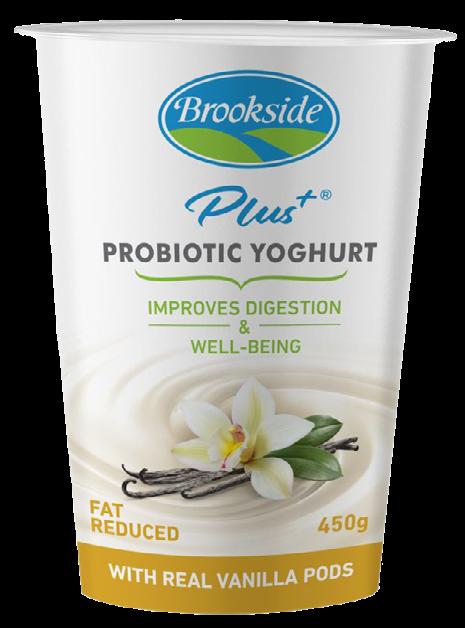

Available in two variants, strawberry and vanilla, the probiotic yogurts are targeted at health-conscious consumers seeking to improve their digestion and overall well-being.
The two products come packaged in premium 450g plastic cups.
www.brookside.co.ke
CADBURY NIGERIA
Bournvita Biscuit
Cadbury Nigeria Plc, a subsidiary of Mondelez International, has announced the introduction of Cadbury Bournvita Biscuit, the newest addition to the company’s growing portfolio and brand’s first biscuit in its history. The new product comes in two consumer pack units of six and 10 cookies that delivers on a chocolate taste enriched with real milk and vitamins and offers a new and unique snacking option for its consumers.


www.mondelezinternational.com/Nigeria

NOV/DEC 2022 | FOOD BUSINESS AFRICA FOODBUSINESSAFRICA.COM 36 NEW FOOD PRODUCT INNOVATIONS
NIGERIAN BREWERIES
Malt-infused energy drink
Nigerian Breweries Limited has expanded its product portfolio with the launch of a new malt-infused energy drink dubbed Zagg.



The new non-alcoholic drink, is created for consumers with an active lifestyle, highlighted the total-beverage company. Beyond being an energy booster, the drink provides the goodness of malt, giving it a refreshing and natural taste in comparison to most regular energy drinks with artificial flavours.
www.nbplc.com
COCA COLA BEVERAGES
What The Fanta
Coca Cola Beverages Africa in Kenya has launched a limitededition lineup of mysteriously flavored Fanta beverages. According to the company, the beverages which are available in colors of blue, green, peach and orange were formulated to fool senses and challenge tastebuds with opposite flavor notes. The aim of the confusion, according to Coca-Cola is to leave fans asking, “What the Fanta?! (WTF)”.
The “What the Fanta” campaign is anchored by the mystery “Blue” zero-sugar flavor in 500ml bottles, which will be available through February 2023.
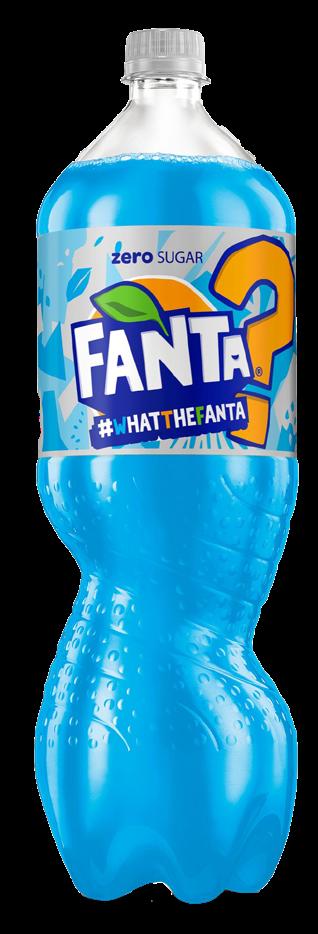



www.ccbagroup.com
MZURI SWEETS
Fruit Flavored Bubble Gum
Mzuri Sweets, the makers of Mr. Berry’s and other popular chewing gums in Kenya, has expanded its confectionery range with the launch of the Hustla fruit-flavored chewing gum. Wrapped in bright yellow and red colored packaging the new flavored bubble gums are available in 2 configurations: a flexible pouch containing 50pcs and a plastic jar containing 100pcs.
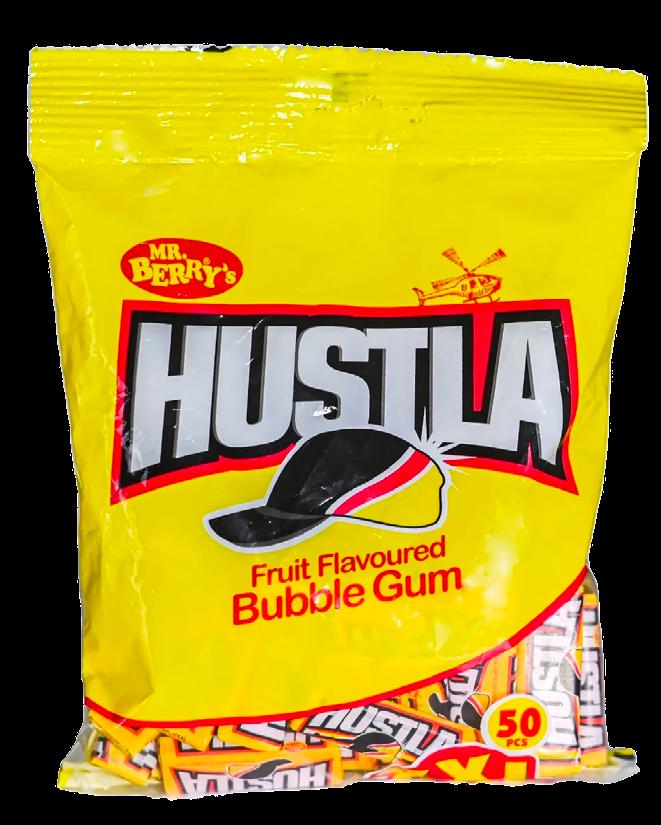

www.mzurisweets.com

FOODBUSINESSAFRICA.COM NOV/DEC 2022 | FOOD BUSINESS AFRICA 37
Uganda to host Dairy Manufacturing Africa event in 2023, to celebrate industry’s growth
The Dairy Manufacturing Africa Summit & Expo connects the dairy industry in Uganda and Africa to the next stage of development, innovation and sustainability
UGANDA – Uganda has been chosen as the host of the inaugural edition of the Dairy Manufacturing Africa Summit & Expo edition in 2023, capping the tremendous growth that the country has achieved in its dairy development in the past two decades.
The Dairy Manufacturing Africa Summit & Expo, which had originally been planned for Nairobi, Kenya, is now slated for June 21-23, 2023 in Kampala, Uganda, at a venue to be communicated in due course.

The event will bring together the key stakeholders from the private, public, non-profit and academia/ research from the dairy industry in Uganda, Africa and globally to set the pace for the future of the industry in Uganda and the Continent.
“The dairy industry in Uganda has become one of Africa’s shining stars over the two decades, with huge strides made in the sector’s development - from significant increase in milk production, strong investments in milk supply chains and processing infrastructure, to changes in the retail and consumption of milk products,” says Francis Juma, the Founder & CEO of FW Africa, adding that with the fast growth, the country has become one of the few countries to export milk products into regional and global markets.
Juma explains that by hosting the Dairy Manufacturing Africa Summit & Expo in Kampala, FW Africa shall be taking the opportunity to celebrate the huge strides that the sector has made and at the same time, setting the stage for the next wave of innovations and the adoption of new
THE DAIRY MANUFACTURING AFRICA SUMMIT & EXPO WILL WELCOME MORE THAN 4,000 ATTENDEES FROM ACROSS AFRICA AND GLOBALLY. IT WILL ENABLE THE DAIRY INDUSTRY ACROSS AFRICA TO GROW AND TRANSFORM TO MEET THE RISING DEMAND FOR DAIRY PRODUCTS IN THE CONTINENT
technologies into Uganda and Africa’s milk value chain.
PAN-AFRICAN EVENT PLATFORM
The Dairy Manufacturing Africa Summit & Expo, which will welcome more than 4,000 attendees from across Africa and globally, will also enable the dairy industry across Africa to grow and transform to meet the rising demand for dairy products in the Continent, he adds.
“The dairy industry in Africa is at a critical phase of development in its quest to be more innovative, efficient and sustainable. The industry faces a number of head winds, such as stagnating farm productivity in key producer
NOV/DEC 2022 | FOOD BUSINESS AFRICA FOODBUSINESSAFRICA.COM 38
countries such as Kenya and South Africa and challenges with quality and food safety, while the sector has remained behind in the adoption of new technologies that have become fairly common in other sectors of the food industry, such as the beverages and milling industries in Africa,” says Juma.
“This Summit & Expo has been conceptualized to provide the pan-African platform where the main dairy industry stakeholders – farmers, dairy processors and retailers - from Africa and beyond, shall gather every year with government ministries and agencies, suppliers of new technologies, NGOs and development organisations and academicians and researchers involved in the sector to learn, network and discover the latest ideas and technologies in the dairy sphere.”
According to Juma, despite the challenges the sector is grappling with, the dairy industry in Africa has a bright future, driven by the rising demand for milk products and intensifying awareness of the excellent nutrition, health and wellness credentials of dairy in the Continent due to surging urban populations, better incomes and changes in consumer tastes and preferences.
The organisers expect more than 4,000 attendees from Uganda and across Africa to attend the event, with free access to the conference and exhibition by all attendees, with signed up visitors already received from more than 20 countries in the Continent.
The event will comprise of high quality educational conference sessions which will be addressed by some of the most important investors and executives in the dairy sector in Africa and other stakeholders from government ministries and agencies, technology providers and others.
The adjacent Expo Hall will showcase the latest ingredients and chemicals; storage, equipment and packaging solutions; laboratory, quality, traceability and food safety products and services; financial, insurance and risk management solutions; heating/cooling, humidification, refrigeration and ventilation services etc. for Africa's dairy and liquid foods industry.
INNOVATIONS & SUSTAINABILITY AT THE CORE
One of the key topical issues to be covered at the event include how to infuse new innovative technologies along the dairy value chains in Uganda and Africa, considering the potential transformational impact that innovations can have on the industry.
These include innovations in new product development that shall meet the needs of the changing, younger and digitally-driven consumers; to innovations in farming, animal nutrition and feeding technologies; to new storage, processing and packaging technologies that will improve efficiency, quality and food safety; to digitalization, traceability and cybersecurity that will improve resilience along the value chains, from farm-to-fork.
The other key topical issue at the event will be how
PRODUCT DEVELOPMENT AND MAINSTREAM SUSTAINABILITY IN THE DAIRY VALUE CHAIN IN UGANDA AND AFRICA
the dairy industry in Africa can become more sustainable: from boosting local production of milk to meet increasing demand, while reducing imports; to renewable energy transition, water and waste management, plus issues such as diversity, equity and inclusion in the sector across Africa. Solutions around reducing the negative impact of the dairy sector on the environment, will also be discussed.
Other issues at the event, according to Juma, will include how to improve nutrition, health and wellness; uplift investments and funding; streamline regulatory compliance, marketing and supply chains; and boost operational excellence in the dairy value chains in Africa.
POSITIVE FEEDBACK TO THE SUMMIT & EXPO
The organisers are excited with the response so far since the announcement of the Summit & Expo, and are hopeful that the event can build the momentum to become Africa’s leading dairy industry event, considering that they do plan to host the event across some of the key milk producing countries in Africa in future.
“The response to the event has been very positive and we are looking forward to an impactful first edition of the event in Uganda in June 2023. While the major milk producing countries in Africa remain South Africa and Kenya, emerging countries such as Uganda, Zambia, Nigeria, Ghana, Tanzania and Ethiopia are the countries projected to be the main drivers of milk consumption in Africa in the future.”
He adds that so far, a number of industry leaders from the region have confirmed their participation as speakers at the Summit, including Joachim Westerweld, the Executive Chairman of Bio Food Products; Denis Chitowe, the Founder & Managing Director of Mzuzu Dairy in Malawi; Nkosana Mtimkulu, the Founder of South Western Dairy in South Africa; and Kalpa Padia, the Managing Director of Raka Milk Processors Ltd. Many more speakers will be announced in due course, he reveals.
More information about the Dairy Manufacturing Africa Summit & Expo can be found on the website www. dairybevafrica.com
FOODBUSINESSAFRICA.COM NOV/DEC 2022 | FOOD BUSINESS AFRICA 39
EVENT
PREVIEW
THE KEY TOPICAL ISSUES AT THE EVENT INCLUDE HOW TO INFUSE NEW INNOVATIVE TECHNOLOGIES, BOOST NEW

BATURE BREWERY
Nigerian in Origin, World-Class in Quality
 By Paul Ongeto
By Paul Ongeto
Athirst for unique, good quality and flavorful beer had two expatriates scouring Nigeria's capital Abuja for days. With no luck in sight, the two friends retreated to the Kitchen of their rented apartment where after plenty of research, experiments, and trials, they finally crafted a beer that excited their taste buds. To give others a taste of what they were missing, the two friends set up shop in Abuja, giving birth to Bature Breweries, Nigeria’s first craft brewery aimed at world class flavour and quality.
To be clear, beer is not scarce in Nigeria. In 2017 when Bature Brewery was in its infancy, the country was already drinking about 16 million hectolitres of beer in a year. That number is significantly higher today as the market is estimated to be worth US$4.57 billion in 2022. What was lacking was taste, flavour and style. The kind that delivers unforgettable experiences, patrons live to remember years after they had their last sip. In a nutshell, the idea to start Bature Brewery “came from a love
of beer, but a dislike for the tasteless massproduced beer," Gbenga Oguntayo, Executive Director of Bature Brewery tells Food Business Africa Magazine.
The founders were quite apprehensive about how their product, mostly IPAs, ales, and flavored beers, would be received in a market accustomed to lagers and stouts. “We thought it was going to be challenging, but we were quite surprised by the quick acceptance by the Nigerian market. It seems a lot of people had international exposure to craft beer previously, either physically or online, so when we made it available in Lagos we had a very, very positive response.”
TRANSITIONING FROM LAGOS TO ABUJA
By word of mouth and out of curiosity, clients trickled into Bature Brewery’s initial tap room in Abuja and 2 years into operations, the premises could no longer accommodate the number of clients or the future that the owners envisioned for their brewery. Gbenga who had just joined the business, then went in search of a new home for Bature in a place that was all
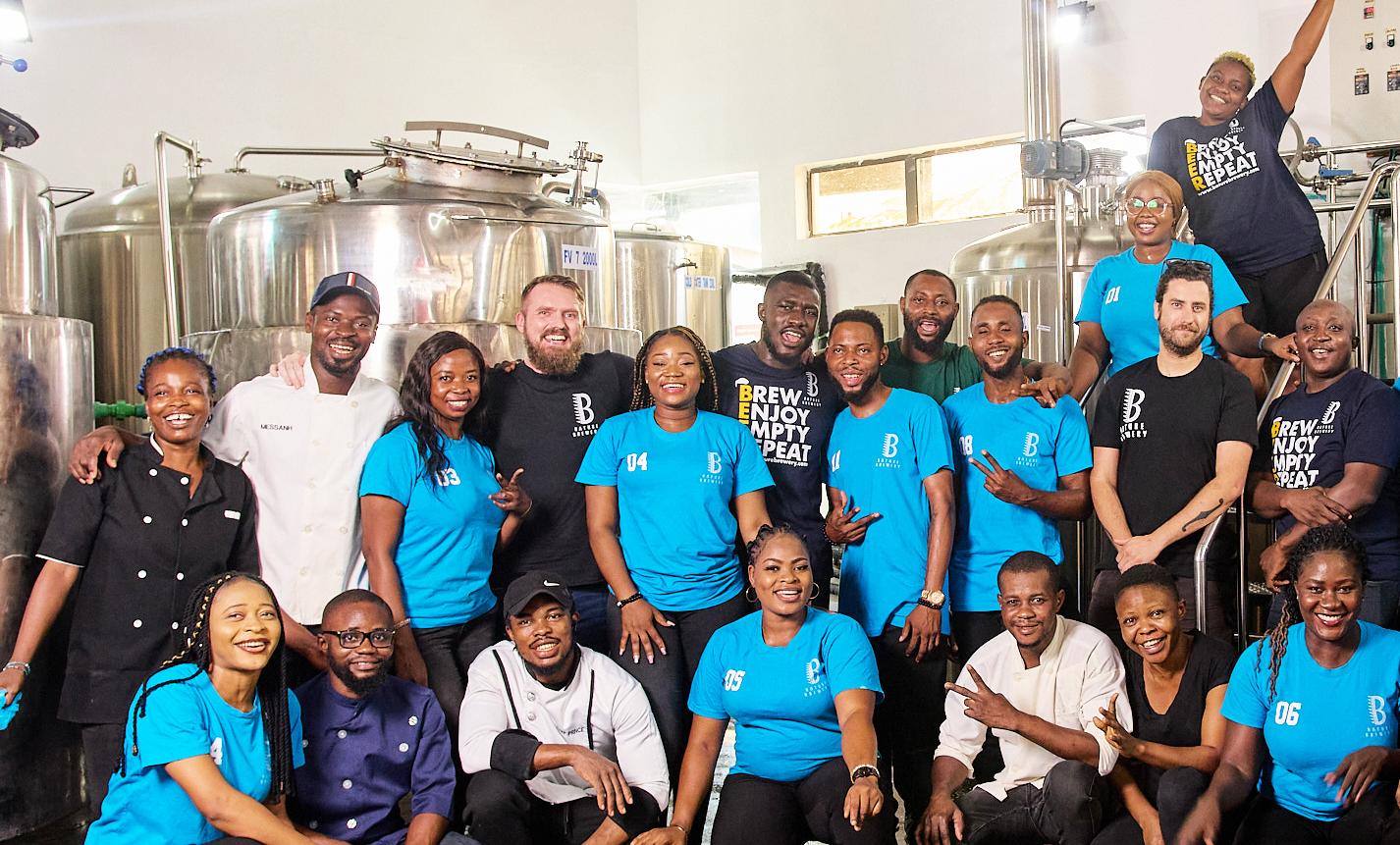
MY COMPANY PROFILE: BATURE BREWERY
NOV/DEC 2022 | FOOD BUSINESS AFRICA FOODBUSINESSAFRICA.COM 42
THE BATURE BREWERY TEAM ARE ALL SMILES AT THE BREWERY
familiar to him, Lagos.
The search however coincided with Covid-19, making the transition a lot slower than Gbenga and his team would have wanted. "Because of the lack of movement, it slowed down our pace of work considerably,” Gbenga reflects. Even with the disruption, the process of procuring the equipment and transitioning the brewery to Lagos still went on. “Throughout the COVID period, we were able to work offline and using the network of Lagos, identify and lock down our current venue. By October 2020, we started physical construction and we were able to open and sell our first beers from the new craft brewery by end of February 2021.”
Bature may have started in Abuja, but Lagos offered immense growth opportunities. With much more space in the upscale Victoria Island, Bature Brewery’s model of operation changed from just a ‘brewhaus’ to a taproom room experience complete with live music and art exhibitions. “With the establishment of Lagos, we introduced the new model of having the bar complemented by various food
brands and also the offering of the space for live music, art exhibition, and plays. We would make it a venue for emerging artists to have a place to be heard, to be seen, and to be viewed.”
This remarkable change attracted more beer lovers to Bature’s taproom. Gbenga reveals to us that when they opened operations, they had a monthly footfall of just 1,000. Just like in Abuja, word of mouth and curiosity tripled those figures leading to capacity constraints. “We started with about 4000 liters and immediately we found that it was not enough for the demand. So we were able to source three additional local tanks in Nigeria and we were able to triple our capacity, which brings us to around 10,000 liters now.” That might still not be enough for Bature as footfall at its brewery has since jumped to about 96,000 a year.

BREWING WORLD-CLASS BEERS
The quality of beer from the Bature Brewery has not gone unnoticed. One of Bature Brewery's big brands, Black Gold, was awarded a Bronze medal at the African Beer Cup in 2019. 2 years later, Black Gold was back with a bang, scooping Gold at the 2021 world beer awards, African Celebration Award, and Silver in the 2022 World Beer Awards. Bature’s other beers

FOODBUSINESSAFRICA.COM NOV/DEC 2022 | FOOD BUSINESS AFRICA 43
WE STARTED WITH ABOUT 4000 LITERS AND IMMEDIATELY WE FOUND THAT IT WAS NOT ENOUGH FOR THE DEMAND.
Gbenga Oguntayo, Executive Director, Bature Breweries
are rooted in the culture, music and flavours around it. Lagos Lager named after their new home, Harmattan Haze IPA, a tribute to the harmattan season have all won awards and fandom since their inception.
Gbenga attributes the secret behind Bature Brewery's success to the passion and expertise of its team of brewers. "We have a very Nigerian team," he says. "Our head brewer is a Nigerian. He read brewing in Scotland, but he's a Nigerian. We also have a female deputy brewer who is Nigerian.”

Bature’s inspiration also comes from the environment surrounding it. “We are inspired and challenged with all the various spices and fruits growing in Nigeria to be able to make quality world beers,” he says. These fruits and spices are usually fused with sorghum to create some of the best beers that Nigerians have ever tasted. “We use a lot of sorghum rather than barley to brew the beers. It's a lot more challenging to use, but we have become quite proficient at it.”
The choice of sorghum was informed by
the company’s desire to source ingredients locally. “Sorghum is grown in Nigeria. So, it is more readily available.” Gbenga reckons that resorting to importation would have also exposed Bature to the volatilities of foreign exchange and denied an opportunity for local farmers to directly benefit from the brewery’s existence. Gbenga adds that sorghum may be “trickier to brew with,” but his team is up to the task. “I can say with full confidence that our brew team has mastered the art of brewing sorghum that it would take an expert taste to know whether it was sorghum brewed or barley brewed.”
CULTURE OF SUSTAINABILITY
Bature Brewery does not just make world-class beers, it is a frontrunner in Nigeria’s transition to sustainable food production. “We're always working towards making our brewery as eco-friendly and as sustainable as possible,” Gbenga reveals. Sustainability at Bature starts with sourcing. The company is vying for all raw materials to be locally sourced, significantly cutting down on transport-related carbon emissions. Spent grain from the brewing process is not discarded. “Our spent grains become organic fertilizer,” he adds. “We’re encouraging other businesses in fertilizer to take the spent grains off us and turn it into

NOV/DEC 2022 | FOOD BUSINESS AFRICA FOODBUSINESSAFRICA.COM 44 MY COMPANY PROFILE:
WE'RE ALWAYS WORKING TOWARDS MAKING OUR BREWERY AS ECO-FRIENDLY AND AS SUSTAINABLE AS POSSIBLE.
BATURE BREWERY
fertilizers, which hopefully we can also send to those who are growing the base stock for us so we can have a full chain of organic growth with waste being processed properly and organically.”
Nigeria is an oil-rich country, and diesel is widely available and significantly cheaper than in other countries. Bature Brewery has however opted to source its power from solar which is cleaner and fits into its brewing ecofriendly beers agenda. Currently, the company has is installing 85KWp solar system with a capacity to produce approximately 150MWh of solar power annually.
Beer is also packaged in stylish aluminum cans which have infinite recyclability. “We started with bottles initially,” Gbenga reveals. This was in line with the current practice in Nigeria where most beers are in bottles. The company soon realized bottles were not sustainable for a brewer of its size and scale. “With bottles, you have to have them recollected, cleaned, and repackaged. It's a lot more expensive and we are not of that capacity," he admits. Local partners made the transition a success. “Normally you would have a minimum capacity of cans you would have to procure, but we've been able to get favorable trading terms.”

With inflation currently impacting consumer
incomes, the brewery has found pricing a tricky balancing act. “We're a premium brand, we are quite price-sensitive,” Gbenga highlights. “As much as possible we have absorbed what we can, being a new brand in the market.” Price increases have however been inevitable. “It's important we make sure we give them the quality that they desire always with our beers. So when they come in, they feel there is value for money and satisfaction with what we're doing.”

THE BEST IS YET TO COME
Five years after the first beer rolled out from Bature’s tap room, the company has grown in leaps and bounds. Today, it still holds the title of being Nigeria’s only International Award winning brewery. With demand going up each day, the company is already actively planning to expand its current capacity. “Right now, everything we're producing is being consumed. And for us to reach out to a wider
KEY NUMBERS
96000
FOOTFALL PER YEAR AT THE BATURE TAP ROOM
FOODBUSINESSAFRICA.COM NOV/DEC 2022 | FOOD BUSINESS AFRICA 45
market in Nigeria, outside Lagos, outside the West African coast, we are increasing our capacity both in brewing and storage." By November next year, Gbenga intimates to us that Bature would have increased its capacity 500,000 liters per annum.
At the moment, patrons desiring a taste different from the widely available massproduced beers can get a taste of Bature’s sweetness from either its taproom in Victoria Island, key bars in Abuja and Lagos and selected Shoprite supermarkets across Nigeria. Bature however has bigger plans in terms of retail presence. “As from next year, we intend to push it out and be in 150 other such outlets.”
Online ordering is another aspect that the business intends to grow from next year. “It's a growth segment and we've been encouraged,” says Gbenga. “We're getting positive feedbacks of people ordering the beer and we have to actively grow going forward.”
The company is also seriously considering leveraging the brewing capacity of other breweries across West Africa. “You know, there are breweries in other West African countries with brewing capacity. So we can work out a joint venture where another brewer could brew one or two of our leading brands like our Black Gold or the Lagos Lager. Those are the kind of collaborations we look forward
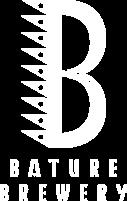

to doing in the next couple of years.”
For the Nigerian market, Gbenga sees a future where Bature Brewery will not be the only craft brewery. "I see another three to four
players coming in,” he foretells. “There are interests from Southern Africa already looking to get it into the Nigerian West African market.” He however does not see these new players as competition. “The sky is large enough for all birds to fly without touching wings,” he quotes a Yoruba proverb. “It is for us to do what we do to the best of how we do it.” Overall, Gbenga is upbeat about what the future holds for the business. “It's exciting times ahead in terms of craft brewing and we look forward to the challenges.”
COUNTRY SECTOR NIGERIA BEVERAGES WEBSITE www.baturebrewery.com EMAIL INFO@BATUREBREWERY.COM NOV/DEC 2022 | FOOD BUSINESS AFRICA FOODBUSINESSAFRICA.COM 46
MY COMPANY PROFILE: BATURE BREWERY
BATURE USES ALOT OF SORGHUM WHICH IS READILY AVAILABLE RATHER THAN WHEAT AS IT AIMS TO SOURCE 100% OF ITS RAW MATERIALS LOCALLY.
Dairy BUSINESS
TRENDS IN FORMULATING, PROCESSING, PACKAGING & CONSUMPTION OF DAIRY PRODUCTS

UHT milk continues to evolve to meet changing consumer tastes and preferences

 By Abel Ndeda
By Abel Ndeda
Pioneered in the 1960s, the UHT process exposes milk to temperatures of at least 138°C for two to four seconds, killing all potential bacteria.
Milk that has undergone UHT processing has a shelf-life of six to nine months and does not require refrigeration. When compared to pasteurized milk, which requires refrigeration and still goes bad within two
weeks of processing, UHT-processed milk has a better value proposition, particularly to producers and consumers in developing nations where access to refrigeration facilities is limited. Over the decades, UHT milk processing technologies have improved – as have the products –giving consumers around the world a convenient, tasty, and nutritious liquid dairy milk option.

FOODBUSINESSAFRICA.COM NOV/DEC 2022 | FOOD BUSINESS AFRICA 47
MARKET SHIFTS TO ASIA AND AFRICA
According to Euromonitor International, around 34 percent of liquid milk consumption today is shelf-stable or UHT milk. This translates to a market size of about 111.5 billion liters in 2021, according to data from the IMARC group. The market research firm forecasts production to exhibit a CAGR of 4.9 % to reach 151.1 billion Liters by 2027.

Western Europe has for a long time dominated the UHT market followed by Latin America and Asia Pacific. In terms of growth markets, the story is slightly different: retail volumes are dipping in North America and Western Europe, whereas in Asia Pacific, Australia, Eastern Europe, Latin America, the Middle East, and Africa, consumption of UHT milk is on the rise. In some regions such as South Africa, UHT milk controls more than 53% of the market share, outstripping demand for chilled milk.
Growing UHT milk popularity in regions outside Europe and the United States can be attributed to numerous factors. In Africa, the growing middle class that is also migrating to urban centers is the main driver of this meteoric rise. In South Africa, for example, this group traditionally consumed UHT milk and continues to do so. It is a well-known phenomenon in the industry that once people develop a taste for either UHT or chilled milk; it typically remains throughout their lives. Erratic electricity supply and lack of fridges in most homes, especially in Africa, are expected to exacerbate the trouble of keeping chilled milk in homes and thus incentivize many to gravitate towards UHT milk.
As scales tip toward Africa and Asia, Future Market Insights estimates the global UHT Milk market to reach a
valuation of US$ 66.2 Bn in 2022. FMI forecasts the market to expand at a CAGR of 7.6% to reach US$ 137.7 Bn in sales by the end of 2032.
MORE THAN JUST STRAWBERRY AND VANILLA
Strawberry and vanilla have traditionally been the go-to flavors for many UHT dairy processors. To expand their consumer base, leading manufacturers of UHT milk are focusing on introducing sophisticated flavors, based on provenance, the use of premium ingredients, and market call. Chocolate and Banana have become particularly popular in the recent past. A recent study by Innova Market Insights showed that chocolate was the number one flavor in dairy milk in the US, comprising 23% of all global launches. According to the market researcher, Banana remains in the top ten flavors, while mango and coconut fell from the top ten launches during the same period. Coffee which increasingly became popular during the pandemic is also holding steady. It is particularly popular in the UK where it contributed most of the 8.8% growth – or £23.3m – in the £286.1m dairy drinks category in 2022, according to Kantar.
More flavors such as dark chocolate and maple are expected to continue coming to market as processors seek ways to expand their product lines. Other interesting flavors that could become more visible on the UHT milk aisle of supermarket shelves include wild-blue berry, orange, and salted caramel. This expansion is expected to further fuel the growth of the market which was estimated at US$49.3 Billion in 2021 by Imarc. The market research firm expects the market to reach US$75.0 Billion by 2027, exhibiting a growth rate (CAGR) of 7.4% during 2022-2027.
BOOSTING IMMUNITY WITH FORTIFICATION
Products with immunity-boosting claims are on the rise globally, and immune system health is likely to stay at the top of the public’s mind. Consequently, dairy beverages
NOV/DEC 2022 | FOOD BUSINESS AFRICA FOODBUSINESSAFRICA.COM 48
DAIRY BUSINESS AFRICA: UHT MILK
UHT MILK HAS CONTRIBUTED GREATLY TO THE FOOD SAFETY AND QUALITY OF MILK GLOBALLY, WITH ITS SHELFSTABLE ADVANTAGE MAKING IT POSSIBLE FOR THE HIGHLY PERISHABLE PRODUCT, TO BE CONSUMED IN REMOTE AREAS.
that support immunity have become immensely popular, especially since consumers perceive milk as a healthy drink as it inherently contains immuno-boosting nutrients such as essential amino acids, lactoferrin, α-lactalbumin, and immunoglobulin.
Consequently, dairy producers have introduced innovative fortified milk products to meet this demand. A good example is East Africa's dairy giant Brookside which recently rolled out the Brookside Plus range of fortified UHT milk. One of the products is fortified with Vitamin A and D, the most well-known immunity-enhancing ingredients. The other product in the range is rich in fiber to aid in digestive health. F&N Dairies Thailand introduced a new flavored UHT Milk is fortified with vitamins A, D, and C to support the immune system. In addition, Al Safi Arabia, claims its UHT fortified milk, available in two variants for families and Women, has 3 times more Vitamin D than regular milk. The milk is also enriched with added Vitamins D, B9, B5, and B7 to boost immunity and vitality and strengthen bones.
THE METEORIC RISE OF LACTOSE-FREE Lactose-free milk has been on the market for over 36 years now. Its uptake outside the united states remained low until recently. Tetra Pak attributes its popularity today after decades of obscurity to widespread food intolerance and allergies among consumers which are forcing them to switch to lactose-free dairy. According to the milk processing technology supplier, this trend is only increasing in relevance. As an example, 27% of US consumers buy less dairy milk because they consume less lactose, the company said in its 2021 white paper on milk formulation. In Africa where the technology is relatively new, dairy producers are jostling to have their lactose-free products take the pole position. In Kenya, almost all major dairies have a lactosefree variant of their flagship dairy brand. Bio Foods were among the early adopters followed by the KCC lactose-free which was launched with much fanfare in 2019 and later Brookside in 2022.
With more lactose-free products coming to market, dairy players are now choosing to supplement with vitamins and minerals to draw customers. Market participants have been compelled to concentrate on strong branding and enhanced advertising as a result of the fierce competition in the lactose-free dairy market. Even with the fierce competition among players, there is still room for growth. According to the latest market research complied by Reportlinker, the Global Lactose-Free Dairy Market size is expected to reach US$18.4 billion by 2028, rising at a market growth of 8.1% CAGR during the forecast period.
EXPANDING BEYOND SOYMILK
For decades, plant-based UHT milk was derived from soya milk. With vegetarian and flexitarian diets becoming popular for health and sustainability reasons, demand for plant-based dairy alternatives has sparked growth in the
sector incentivizing manufacturers to expand their base ingredient from soy to other worthy plant-based sources such as almonds, oats, and coconuts. Other plant sources include hemp, pea, and peanut.
Almond milk which picked up pace in the previous decade has grown to become one of the top plant-based milk globally. In 2018, according to Mintel, sales of almond milk accounted for around 64% of the US plant milk market, while soy milk only had around 13% of the market share in the same year. Oat milk is also carving a share for itself. Between 2018 and 2019, sales of oat milk skyrocketed from US$6 million to around US$40 million – largely thanks to brands like Oatly, Minor Figures, and Califia Farms.

Plant-based milk is not milk, but consumer demand its tastes like what they get from cows or they jump ship. Formulating milk to taste like cow milk is not an easy affair but companies are making efforts towards achieving this. Synergy Flavours recently launched two new flavors
designed to replicate the taste of traditional milk. The new flavors are fresh milk and UHT milk, both of which will allow manufacturers to recreate the taste of dairy in plant-based milk alternatives. According to Synergy, the offerings are expected to provide the “dairy-type profile that consumers increasingly expect in plant-based milk, adding creaminess, indulgence, and sweetness across a range of bases, including soy, oat, and the pea”. Beyond taste, there is also demand for plant-based dairy to be nutritionally close to animal milk. Manufacturers are now adding vitamins and minerals to them to make them have a similar nutritional value to cow's milk.
Although dogged with many controversies including issues around sustainability and nutritional profile when compared to animal dairy, the plant-based dairy sector still has a bright future. According to Facts and Factors, the Global Plant Based Dairy Products Market size was valued
FOODBUSINESSAFRICA.COM NOV/DEC 2022 | FOOD BUSINESS AFRICA 49
at around US$11.2 billion in 2021 and is estimated to grow to about US$31.5 billion by 2028, at a CAGR of approximately 10.5% between 2022 and 2028.
SUSTAINABILITY TAKES CENTER STAGE
Dairy, just like other sectors of the food industry, is taking sustainability seriously with major dairy companies announcing ambitious 2050 net zero goals. As a result, new UHT processing and packaging technologies have emerged to help dairy processors meet their sustainability goals. Last year, Tetra Pak, one of the leading suppliers of UHT processing equipment, unveiled its new UHT 2.0 heating portfolio which is equipped with the revolutionary OneStep technology that is designed to simplify and make UHT processing more sustainable. "By removing the pasteurization and intermediate storage steps, the processing time is shortened from as much as two days to just a few hours, and the operating costs are cut by up to 50 percent compared with conventional line solutions (without OneStep technology),” says Alejandro Cabal, Vice President, packaging solutions at Tetra Pak.
Tetra Pak also recently launched the E3/Speed Hyper which features
a massive capacity of up to 40,000 portion packs per hour (or 11 packs every second). According to the company, the equipment's increased capacity can reduce manufacturers’

KEY NUMBERS
operational costs by up to 10 percent and also represents a low-carbon alternative to aseptic PET – since electricity consumption and carbon footprint are both five times lower than for aseptic PET lines.
On the packaging side, Tetra Pak has a new solution in the form of a six-layer called Tetra Brik Aseptic 1000 Edge which is made of over 80% plant-based materials. Tetra Pak said this sustainable packaging solution, with plant-based caps and layers, can deliver up to 23% reduction in CO2 emissions compared to a standard package of the same shape and
size. Its competitor SIG also recently launched aseptic carton packs with no aluminum layer. Dubbed SIGNATURE 100, the aseptic carton packs are made from up to 82% FSC-certified renewable paperboard, sourced from sustainably managed forests. By removing the need for an aluminum foil barrier layer, SIG said the new packaging trimmed the carbon footprint of SIG’s standard packaging material by 27%.
Milk containers with tethered caps are also starting to emerge for both food safety and environmental reasons. Tetra Pak, the market leader in UHT milk packaging has several solutions ranging from the HeliCap 26 Pro to LightWing 30 where the caps are designed to remain attached to the UHT container even after opening. This is designed to promote greater recyclability of these caps which in most cases get disengaged from their containers and thus not submitted for recycling.
A GOD SENT INNOVATION
Now in its fourth decade, UHT milk has contributed greatly to the food safety and quality of milk globally. Its shelf-stable advantage has made it possible for milk, a highly perishable product, to be consumed in regions as remote as Kalukwakerith village in the northernmost part of Kenya. Its aseptic nature has guaranteed the safety of milk which is normally susceptible to a plethora of bacteria including pathogenic ones such as Mycobacterium tuberculosis and Clostridium botulinum.
Innovations, particularly around flavors, plant-based milk, and packaging have emerged over time to make the product even more aligned with changing consumer needs. These innovations are also a testament that the product is relevant for today’s consumer. They also go a long way in future-proofing UHT so that it can continue being available and relevant for the unpredictable consumer of tomorrow. FBA
NOV/DEC 2022 | FOOD BUSINESS AFRICA FOODBUSINESSAFRICA.COM 50
PERCENTAGE OF LIQUID MILK CONSUMPTION THAT IS UHT MILK
34%
DAIRY BUSINESS AFRICA: UHT MILK TETRA PAK'S E3/SPEED HYPER ASEPTIC FILLING MACHINE WITH EBEAM
BeverageTECH
TRENDS IN FORMULATING, PROCESSING, PACKAGING & CONSUMPTION OF BEVERAGE PRODUCTS
After surviving Covid, Africa’s beverage industry gets back on the investment track

A thirst for growth in a post-pandemic era sends Africa’s beverage industry into an investment spree, expanding production capabilities while staying true to sustainability
By Catherine Wanjiku
Historically, the beverage sector has been among the most recession-resilient businesses in the world. And out of the blue, the COVID-19 pandemic broke out and spread across the globe like wildfire, sending ripples of shocks to every individual and business. To curb the spread of the pandemic, governments set in place stringent social and
physical distancing measures that led to the closure or reduced time of operations for most establishments such as bars, restaurants, hotels, winery tasting rooms, or sporting events which account for the largest point of sale market share for the industry. Meanwhile, the off-trade market such as retail and liquor stores coupled with online ordering, registered a rise in the sale of beverage products. However,
FOODBUSINESSAFRICA.COM NOV/DEC 2022 | FOOD BUSINESS AFRICA 51
the shift to off-trade sales wasn’t enough to make up for the shortfall. This translated to the beverage industry cut back on their operations and put on hold future investment and expansion plans.
“While we’re still assessing the full impact of the current Covid-19 situation, it’s very clear that the pandemic is set to cause a deeper and more long-lasting after-effect to the global drinks industry than anything we’ve experienced before. Even the downturn following the 2008 financial crisis was less severe than what we are seeing now,” says Mark Meek, CEO of IWSR.
By the second half of 2021, most economies had however relaxed the restrictions put in place, and once again the beverage industry was back to business, a testament to the resilience of the sector. In light of the difficulties the sector has had to come up against, the players have set in place strategies to ensure the resumption of operations in the industry while curbing the spread of the pandemic. Most of these strategies have been in robust investments in production capabilities to meet an anticipated uptick in demand or to consolidate capabilities in key markets. Companies have also not shied away from bold investments in sustainability initiatives in a race to meet their net zero goals.
CHAMPIONING SECTOR RECOVERY

The IWSR, which provides data and analysis for the alcohol market, said it will likely be five years before the global industry rebounds from the coronavirus outbreak.
Recapping the investments that have taken place in the period of the last two years, 2021 started at a high note in Ethiopia, with twin investments in malt processing plants by Boortmalt and Soufflet Group respectively. Boortmalt’s US$2.8 billion processing facility has a processing capacity of 60,000 tons of malt per annum and is set to meet the demand of the valuable input by Ethiopian breweries,
NOV/DEC 2022 | FOOD BUSINESS AFRICA FOODBUSINESSAFRICA.COM 52
BEVERAGE TECH
IN
BEVERAGE INDUSTRY
AFRICA: INVESTMENTS
AFRICA'S
IT’S VERY CLEAR THAT THE PANDEMIC IS SET TO CAUSE A DEEPER AND MORE LONG-LASTING AFTER-EFFECT TO THE GLOBAL DRINKS INDUSTRY THAN ANYTHING WE’VE EXPERIENCED BEFORE. EVEN THE DOWNTURN FOLLOWING THE 2008 FINANCIAL CRISIS WAS LESS SEVERE THAN WHAT WE ARE SEEING NOW.
Mark Meek, CEO IWSR
GROUND BREAKING CEREMONY OF KWAL'S NEW MANUFACTURING FACILITY
alongside Soufflet Group’s 60,000 tons malting unit. Still in Ethiopia, Dashen Brewery S.C. completed the expansion of two of its breweries i.e., Debre Berhan and Gondar at a cost of over 1.7 billion Birr (US$32.7m). The project significantly increased the beer maker’s annual production capacity by 1.6 million hectolitres as Dashen Brewery’s capacity stretched from 3.2 million hectolitres to 4.4 million hectolitres, while the Gondar factory increased its capacity from 800,000 hectares to 1.2 million hectolitres.
In neighboring Kenya, KWAL, majority owned by Distell Group, broke ground for the construction of its new Ksh. 4 billion (US$32m) ultramodern manufacturing facility at Tatu City Industrial Park Ruiru. The new facility will enable it to meet consumer demand for its portfolio of fast-growing brands and continue to localize production of its imported products as it eyes expanding its market share in the Eastern Africa region. Meanwhile, industry competitor Kenya Breweries Limited, a step-down subsidiary of Diageo through East African Breweries Limited, announced an investment of KES1 billion (US$8.15m) in a new spirit processing line, in a bid to meet the high demand witnessed in the segment
KEY NUMBERS
US$ 180M
COST OF AB INBEV'S NEW BREWERY IN MOZAMBIQUE.
following the COVID-19 pandemic. During the same year in 2021, its sister company Serengeti Breweries Limited (SBL), commissioned its first spirits production plant worth Tsh15.6 billion (US$6.7m) at its facility in Moshi, Tanzania. Having an eye on the future, EABL commenced construction of the new KES 1 billion (US$8.5m) microbrewery in Nairobi, Kenya earlier this year. The groundbreaking ceremony was followed by the launch of a UGX 17.6 billion (US$4.6m) topof-the-line logistics warehouse and empties handstand facility at its Ugandan operating unit, Uganda Breweries Limited (UBL). The facility features an Empties Hardstand and Beer Membrane Filtration (BMF) Plant, which can accommodate Full Goods

Storage of 7,294 Pallets and Empties
Storage of 8,171 Pallets; a Forklift Handling Capacity of 7,350 cases per forklift per day and; a Truck Capacity of 132 trucks per day.
Multinational alcoholic beverage company, Diageo plc, still had a high appetite for Africa’s alcoholic beverage sector, cashing out millions of investments through its West African units. Late in 2021, Guinness Nigeria commissioned a new spirits production line at its Ogba brewery in Lagos. The new line, part of the brewer’s Mainstream Spirit Capacity expansion program with a cost of £2.0m (US$2.2m), availed an additional cube packaging line to meet increased demand for the company’s mainstream spirits portfolio including Orijin Bitters. Within the same period, Guinness Ghana Breweries PLC, launched a state-of-the-art Brewhouse worth GHS 145 million (US$23.9m), boosting production capacity at the old Brewhouse by more than 150%. The Ghanaian economy has also welcomed a new investment in the alcohol sector, following the launch of the newly established Specialty Beers Ghana Limited (SBL), specializing in the production of ale using locally sourced raw materials, with a
FOODBUSINESSAFRICA.COM NOV/DEC 2022 | FOOD BUSINESS AFRICA 53
SERENGETI BREWERIES LIMITED COMMISSIONING THE MOSHI BREWERY EXPANSION
processing capacity of 10,000 hectolitres per year.
Shifting focus to Southern Africa, Anheuser-Busch InBev (AB InBev), through its Mozambican subsidiary Cervejas de Mocambique (CDM), officially inaugurated its new US$180 million brewery in 2021. The new site has a production capacity of 2.4 million hectolitres per year, with the potential to expand that to 6.7 million hl, and a filling line with the capacity to produce 80,000 bottles per hour. AB InBev’s subsidiary in South Africa, South African Breweries has also pumped over R920m (US$63.2m) into its Prospecton and Ibhayi breweries, reaffirming its commitment to igniting the local economy. On a similar track, the world’s largest beer producer through Zambian Breweries earlier this year announced it will be investing US$80 million over the next 18 months, to double production capacity at its Lusaka plant. The capital expenditure has included the construction of a malting plant in the Lusaka South Multi-Facility Economic Zone (MFEZ) which was commissioned four years ago; upgrading of its Lusaka and Ndola plants with cuttingedge technology; and the replacement of bottles, kegs, and crates to increase brewing capacity and address beer shortages across the country. Meanwhile in neighboring Zimbabwe, African Distillers Limited (Afdis), has established a US$1m cider fermentation plant, quickening its pace to produce ciders locally.

INDUSTRY GIANTS CEMENT REGIONAL DOMINANCE
Other than boosting production capacity through investments in both green-field and brown-field projects, alcohol industry players also beefed up their market share through the acquisition of other entities. In the past two
years, Heineken has been opening its checkbook starting with increasing its stake in Nigeria-based Champion Breweries. In January 2021, the multinational brewing company raised its ownership in the brewing company to 84.7% after the addition of a 24.3% stake worth N4.959 billion (US$12.5m). In the following year, Heineken through its subsidiary Raysun Nigeria Limited proposed a mandatory take-over of the entity, seeking to buy out the remaining 15.3% equity stake. On a similar track, Heineken in November 2021, announced its interest to take over Africa’s leading producer and marketer of ciders, flavored alcoholic beverages, wines, and spirits, Distell in a deal worth €2.2 billion, and acquiring a controlling interest in Namibian Breweries. So far, the Competition Commission of South Africa has conditionally recommended that the Competition Tribunal approve the proposed takeover of parts of Distell. If the deal falls through, a new regional beverage champion will be created with an expansive regional presence.

Other than Heineken, Diageo is also on the quest of cementing its position in the East African market by increasing its stake in East African Breweries Plc (EABL) through the acquisition of additional shares. The beverage maker in October this year, served notice on EABL of its intention to increase its equity stake in the company through a partial tender offer made to other shareholders of EABL worth Ksh 22.73 billion (US$185m), taking its ownership to 65% from the current 50.03%. This follows EABL expanding its ownership in its Tanzanian subsidiary, Serengeti Breweries to 85%.
The parent company Diageo has also been rejigging its operations in other markets, selling its Ethiopian Brewery
NOV/DEC 2022 | FOOD BUSINESS AFRICA FOODBUSINESSAFRICA.COM 54
BEVERAGE TECH AFRICA: INVESTMENTS IN AFRICA'S BEVERAGE INDUSTRY
COCA-COLA BEVERAGES AFRICA LAUNCHING NEW US$100M BOTTLING PLANT IN ETHIOPIA
Meta Abo Brewery to French beverage company, Castel Group. The acquisition extends the dominance of Castle group through its subsidiary, BGI, which currently boasts of having over 50 percent market share of the Ethiopian beer market. On the same note, Diageo, also brokered another sales agreement with Castel Group, selling its brewery in Cameroon, Guinness Cameroon S.A., for £389 million. Other notable acquisitions in the sector include DGB's purchase of a majority stake in Backsberg, an iconic winery in South Africa. DGB is South Africa’s largest independent wine and spirit producer.
SOFT BEVERAGE PLAYERS READY FOR FUTURE GROWTH
Africa’s soft beverage industry has also registered several investments in the past two years, including the Ghanaian government commissioning the revived Nano Foods Limited, a pineapple juice processing factory at Nsawam of the Eastern Region, under the One-District, One-Factory (1D1F) initiative in May 2021. The fruit processing company, which was formerly known as Astek Refresh Pineapple Juice Factory, ceased operations 21 years ago and resumed manufacturing after millions worth of repairs.
Giant soft beverage manufacturer, Coca-Cola, also increased its investment in the region starting with the opening of a new US$100 million Ethiopian bottling plant at Sebeta. The new plant will enable the company to integrate the production of inputs such as preforms, closures, and other materials. Further beefing up its bottling capacity, Coca-Cola Beverages Africa (Mozambique) has invested US$14 million in a new polyethylene phthalate (PET) plastic bottle production line at its Nampula factory. The new plant produces approximately 14,400 bottles of 200ml PET bottles
per hour. Still in Eastern Africa, CCBA inaugurated a US$15 million production line, at the Century Bottling Company Namanve Plant, Uganda to focus on the production of milk and juice infusion drinks.

Meanwhile, its competitor in the country, Crown Beverages Limited (CBL), the franchise bottler of PepsiCo, established a new plant with two dedicated water processing lines. With the investment, CBL joined the jumbo-size water segment, in line with the company’s efforts to cement its position as Uganda’s number-one beverage company. Zimbabwe also welcomed investment in a new water bottling line by Varun Beverages Zimbabwe, a franchise bottler of PepsiCo. Meanwhile, sector peer BIG Tree Beverages opened a US$80 million state-of-theart beverage production facility aimed to spur its growth across the region.
On the deals radar, Coca-Cola Beverages Africa officially set up business in Lesotho with the acquisition of Maluti Mountain Breweries’ interest in the soft drinks business. Big news also emerged this year with the Fanta and Sprite brand maker, announcing it had parted ways with its long-time bottler Castel Group after nearly 25 years of partnership, impacting its businesses in Angola, Gabon, Egypt, Senegal, Burkina Faso, Côte d’Ivoire, Malawi, and Cameroon, leading it to transfer the bottling rights to other entities. In a bid to further streamline operations and boost investments, some of the company’s bottling partners embarked on the acquisition and merger with fellow bottling units. For instance, Coca-Cola Beverages Africa (CCBA) consolidated its two Ugandan bottling subsidiaries, Century Bottling Company Limited (CBC) and Rwenzori Bottling Company Limited (RBC) to form a single operating entity under the name Coca-Cola Beverages Uganda Limited (CCBU). In Egypt, Coca-Cola HBC acquired a majority stake in CocaCola Bottling Company of Egypt (CCBCE) through its subsidiary Coca-Cola HBC Holdings. Its bottling partner
FOODBUSINESSAFRICA.COM NOV/DEC 2022 | FOOD BUSINESS AFRICA 55
COCA-COLA PARTED WAYS WITH CASTEL GROUP AFTER NEARLY 25 YEARS OF PARTNERSHIP, IMPACTING BUSINESSES IN ANGOLA, GABON, EGYPT, SENEGAL, BURKINA FASO, CÔTE D’IVOIRE, MALAWI AND CAMEROON, LEADING IT TO TRANSFER THE BOTTLING RIGHTS TO OTHER ENTITIES.
North Africa Bottling Company (NABC), revealed plans of acquiring Atlas Bottling Company (ABC).
Another notable deal undertaken within these two years was Suntory Beverage & Food Limited Asia Pte (SBFA), maker of Ribena and Lucozade, selling its Nigerian subsidiary, Suntory Beverage & Food Nigeria (SBFN), to Africa FMCG Distribution Ltd (AFDL) for a total consideration of US$14 million.
PUSH FOR ENERGY EFFICIENCY PICKS UP PACE
Even as the beverage sector players turned to focus on ramping up production and expanding their presence in the region, they also stepped up their sustainability efforts. Most have turned to renewable energy to power their facility, not only to survive in a continent that experiences highrate of power disruptions but also to cut their emissions. In May 2021, Guinness Ghana Breweries commissioned a 1,095 kWp solar photovoltaic system set on the roof of its brewery in Accra, providing up to 19% of the electricity consumed by the factory, while avoiding 10,000 tonnes of CO2 emissions. Nigerian bottler of PepsiCo drinks, SevenUp Bottling Company Plc, partnered with Daystar Power, to install a 10.5 MW solar power plant. Still in Nigeria, Big
energy agreement with CrossBoundary Energy, to deliver clean energy that will cover the electricity needs of its two facilities i.e., Ibadan and Ama breweries. Under the project, valued at the sum of US$10 million, CrossBoundary Energy will expand the current renewable energy system at NB’s Ibadan Brewery from a 663 kWp solar PV plant to a hybrid solar-plus-storage facility consisting of a 3 MWp solar PV system and a 2 MW/2 MWh battery energy storage system (BESS). Meanwhile, its Ama brewery will receive a 4 MWp solar PV plant and a 2 MW/2 MWh BESS. The solar plants combined will supply approximately 10 GWh annually to the breweries at a significant discount to their current cost of power and will reduce the site's CO2 emissions by 100,000 tonnes over the lifespan of the plants.
Bottling Company, producer of Big Cola, Big Orange, and other popular soft beverages in the country, put up a 950kW solar system, offsetting 11,743 tons of CO2 over the project’s ten-year lifetime.
The country’s largest brewer, Nigerian Breweries, owned by Heineken International, joined forces with CrossBoundary Energy in 2021 to set up a 663.6kwP solar plant at its Ibadan brewery. This year, the beer maker signed a power purchase agreement with Konexa, an integrated energy development, and investment platform to deliver 100 percent renewable energy that will fully cover the electricity needs of its two breweries in Kaduna state. This was followed by the recent signing of another green
In line with its Brew a Better World initiative to net zero impact and increase the share of renewable energy in production to 70% by 2030, Heineken also launched a solar power plant at its Sedibeng, Midvaal brewery in South Africa. The plant boasts 14,000 panels that move with the rising and setting of the sun. With a 6.5MW power generating capacity, the new solar panels are targeted to reduce the brewery's carbon impact by about 30%. Industry competitor, South African Breweries, has also gone green, inking a Power Purchase Agreement with a Black-Woman Owned industrial scale biogas waste-to-energy company, Bio2Watt. Following the agreement, South Africa's largest beer maker will soon be using the manure of over 7 000 cows to power its operations. It is important to note that all of SAB's breweries are solarized. As of January – August 2021,

NOV/DEC 2022 | FOOD BUSINESS AFRICA FOODBUSINESSAFRICA.COM 56
AFRICA'S NON-ALCOHOLIC BEVERAGES MARKET IS EXPECTED TO EXHIBIT A CAGR OF 9.4% DURING 20222027, WHILE THE ALCOHOLIC SEGMENTS IS SET TO GROW BY 12% IN VOLUME AND 15% IN VALUE BY 2023.
BEVERAGE TECH AFRICA: INVESTMENTS IN AFRICA'S BEVERAGE INDUSTRY
the company had already generated over 9.7 GWh of renewable electricity. This switch also resulted in 9 443 tons of Co2 emissions reductions since the start of the year.
Crossing over to Zimbabwe, Schweppes, manufacturer, and distributor of non-carbonated beverages commissioned a 500 kilowatts solar power plant to run its Beitbridge Juice Plant. Meanwhile,

industry peer, Varun Beverages has recently inked a 25-year power lease agreement with Distributed Power Africa (DPA), a subsidiary of Cassava Technologies, to install a 2.5MWp rooftop solar solution at its manufacturing plant in Harare. With a forecasted annual energy production of 4.1GW, the system will be mounted at Varun Beverages’ Simon Mazorodze bottling plant and will be the largest roof solar system installed in the country to date.
East Africa’s Kenya Breweries Limited (KBL), has also invested in renewable energy, commissioning a biomass steam plant at its Tusker brewing plant, expected to reduce its direct carbon emissions by 95% (about 42,000 tonnes of carbon a year). The biomass project is part of KBL's parent company – EABL, KES22 billion (US$199m) investment plan aimed to facilitate its transition to the use of green energy by 2030. Still, in Kenya, Coca-Cola Beverages Africa (CCBA) has invested US$2 million to upgrade its wastewater treatment plant at its Equator Bottlers Ltd plant in Kisumu.

A SECTOR ON THE RISE
The multi-million investments in Africa’s beverage industry are a testament to the growth potential of the sector. Market research firm Imarc puts the growth of the sector
into a clearer perspective. According to Imarc, the African non-alcoholic beverages market is expected to exhibit a CAGR of 9.4% during 20222027. Rising consumer inclination towards ready-to-drink beverages based on hectic consumer lifestyles and on-the-go consumption habits is propelling the market growth. Statista which estimates the non-Alcoholic Drinks market in the continent to be worth about US$85.45bn in 2022 has even more ambitious estimates. The reputable data agency forecasts the market to grow annually by 10.77% (CAGR 2022-2027).
Moving to the alcoholic segment, IWSR opines that the trend where global drinks players continue to invest in the continent is increasingly informed by opportunity, not risk. Forecasts from the IWSR show the region’s alcoholic drinks market will grow by 12% in volume and 15% in value by 2023, that’s a good place to be in for your bottom line and definitely informs the investments that we have seen in the past two years by the likes of Diageo, Heineken and AB InBev. Although an attractive region for investors IWSR Africa analyst Daniel Mettyear advises you cannot look at Africa as one entity. “Africa is a vast space and needs to be assessed on a regional or national level to best exploit the opportunities.” FBA
FOODBUSINESSAFRICA.COM NOV/DEC 2022 | FOOD BUSINESS AFRICA 57
KENYA BREWERIES LIMITED COMMISSIONING A BIOMASS STEAM PLANT AT ITS TUSKER BREWING PLANT
Market Trends
Key trends to shape food industry in 2023 and beyond
 By Catherine Wanjiku
By Catherine Wanjiku
The world of food and beverage has undergone its fair share of change over the past few years. In addition to now-familiar concerns like COVID-19 and climate change, geopolitical conflicts and rising inflation have added to the heightened sense of unpredictability. Who knows what’s next to come? Looking closely at how the sector has been performing and borrowing insights from industry experts, here are some of the trends that will set
the tone and influence the market throughout the year 2023.
VALUE FOR MONEY
Political and economic volatilities have become the second biggest concern for consumers in 2022 as it has led to skyrocketing food prices due to rising production costs, and supply chain disruptions. According to Innova Market Insights, a global market intelligence company for
NOV/DEC 2022 | FOOD BUSINESS AFRICA FOODBUSINESSAFRICA.COM 58
consumer-packaged goods, 62% of consumers across the globe reported a noticeable rise in the cost of their food and beverages. As a result, they are turning their attention to simple but nutritious foods that are affordable. Key consumer behaviors that have emerged in response to this include buying in bulk, opting for private labels, cooking from scratch, reducing spending on luxury items, and purchasing fewer items.
To meet the nutritional, environmental, and economic demands of consumers, manufacturers must therefore innovate to extract maximum value from raw materials and the production process. For instance, the processors are downsizing their packages and product sizes without lowering prices as they embrace shrinkflation. Confectionery maker Mars Wrigley’s recently introduced in the East African market a new two-pellet pack for its PK chewing gum, going for the same price as the previous fourpellet pack of chewing gum. On the flip side, manufacturers are also availing value pack formats of their products that are discounted compared to the smaller packs, leveraging economies of scale.
Despite cost and value for money becoming more important, most consumers are still determined to sample new experiences, ensure personal well-being and support planetary health. Lu Ann Williams, Global Insights Director at Innova Market Insights highlights, “Redefining value throughout the food and beverage industry will lead in 2023 as consumers seek brands that listen, understand, and
that reduce the hustle of meal preparations and thus turn to quick fix options such as pre-cooked, or pre-cleaned food products such as Kenchic Limited’s recently launched semi-cooked breaded chicken nuggets, strips, and burger patty. In Nigeria, Leky Mills introduced pre-chopped frozen yams. Several brands have also launched meal kits to cater to consumers wanting to recreate the magic at home, such as Kroger and UCOOK in South Africa.



The market for convenient meal options is rapidly growing evidenced by increased investments by players such as Simplifine Foods who have recently set base in Kenya to avail ready-to-cook sliced potatoes and frozen par-baked goods. In the UK, Premier Foods expanded its portfolio with the acquisition of meal kits firm Spice Tailor.
The shifting food preferences of consumers toward ready-to-cook food products is expected to reflect prominently in the coming year, owing to the increase in the busy lifestyles of working individuals in the face of harsh economic times.
BETTER-FOR-YOU PRODUCTS TAKE CENTER STAGE

respond to their core values. They want brands that provide quality, trust, and confidence via their product formulations, communications, and wider sustainability actions.”
QUICK QUALITY
As highlighted above, one of the ways consumers are budgeting their food spending is by adopting home cooking. However, consumers are in pursuit of products
As consumers are leaning towards convenient foods, they are also unwilling to compromise on quality and are demanding better-for-you products. The pandemic has changed many people’s values and accelerated a trend already apparent for several years: a focus on health and wellness.
This has expedited demand for food and beverage products that represent a healthier position. People are also learning more about the gut-brain axis, and it is anticipated that brands will continue availing products that
FOODBUSINESSAFRICA.COM NOV/DEC 2022 | FOOD BUSINESS AFRICA 59
POLITICAL AND ECONOMIC VOLATILITIES HAVE BECOME THE SECOND BIGGEST CONCERN FOR CONSUMERS IN 2022 AS IT HAS LED TO SKYROCKETING FOOD PRICES DUE TO RISING PRODUCTION COSTS, AND SUPPLY CHAIN DISRUPTIONS
support health claims like gut health, weight management, immune support, and mood booster, among others. Innova Market Insights reports that 53% of global consumers say they have taken action to improve their physical well-being. Another 44% say that they have taken action to improve their mental and emotional well-being.
In this regard, manufacturers are expected to continue availing products that will support the physical and mental well-being of consumers such as Brookside Dairy’s new fortified whole milk dubbed Plus+, BidCo’s joOz Boost+ fruit juice, and Nano Shot’s CBD-infused beverages made with real fruit juice, no artificial flavors, zero calories/sugars, and NO THC, among others.

While presenting on the Top Ten Trends for 2023 by Innova, Lu Ann, highlighted that consumers are increasingly checking on the pack claims as one of their sources of the products' nutrition information. As a result, there has been a 69% growth in food and beverage launches with a regulated nutrition warning label. Consumers are still calling for greater transparency in food labeling to make informed decisions.
GEN-Z DEFINES MARKET
While health is an increasingly important purchase driver, younger consumers raised in an interactive digital world are creating trends and defining what markets should be providing. For Gen Z and Millennials, food and brand choices are important signifiers of lifestyle, beliefs, and values, according to Innova. These demographics have a strong voice and are used to share their views openly and
widely and are in pursuit of novel and international flavors that are winning their hearts.
Gen Z's are said to embrace the new and different while being extremely responsive to positive engagement from brands. For instance, plant-based meat maker Impossible Foods has been paying close attention to Gen Z's opinions and behavior and found that younger consumers are more likely to eat plant-based food and eat less meat to save the environment. A survey commissioned by the company discovered that they were optimistic about their potential contributions to help stop global warming, with 73% saying they could make at least some difference through their personal choices. Other than environmental impact, Gen Z are also in search of food that will improve and strengthen their physical and mental well-being. Topped only by music and gaming, food is one of the top three attributes that make up Gen Z identity. They are a sizable force coming in to shake up the food market as they spend most of their disposable income on food, making them the biggest spending category for today’s youth.
CONSUMERS YEARN FOR NEWNESS IN THE PLANTBASED CATEGORY
Speaking of plant-based foods, the rapid rise of the sector has almost inevitably hit some roadblocks, necessitating a refocusing on consumer demands for high-quality, flavorsome products. Innova Market Insights highlights that the innovative food division merely mimicking green gastronomy will not blossom as a standalone sector in 2023, giving brands significant opportunities to diversify and expand. Consumers still want to see improvements in taste and texture, but there is a huge appetite for culinary

NOV/DEC 2022 | FOOD BUSINESS AFRICA FOODBUSINESSAFRICA.COM 60
MARKET TRENDS: KEY TRENDS FOR 2023
GROW YOUR BUSINESS FASTER, MORE SUSTAINABLY
ADVERTISE IN AFRICA’S NO.1 FOOD & BEVERAGE INDUSTRY MAGAZINE

WHY ADVERTISE IN FOOD BUSINESS AFRICA MAGAZINE



• Reach the food, beverage and milling industry in sub-Saharan Africa (East, West, South and Central Africa) and beyond using one publication and website

• Use the first magazine of its kind in the region available in a digital format, providing our advertisers with a worldwide audience
• Advertizing with us opens the door to key decision makers in the food industry

• Gain access to the best read and visited food industry website in sub-Saharan Africa.




NOV/DEC 2022 | FOOD BUSINESS AFRICA 61
AVAILABLE IN PRINT & FOR FREE ONLINE AT: WWW.FOODBUSINESSAFRICA.COM NATURE LOCK foods Tei Mukunya CEO TRENDS IN SNACKS SIMPLIFINE TRENDS IN CIDER PROCESSING FLEXIBLE PLASTIC
creativity and worldwide flavor profiles. Items that will drive growth in the sector will be very different from the burgers, grounds, and plantbased chicken nuggets that made plant-based a hot trend a handful of years ago.
Two-thirds of respondents to Innova’s global survey expressed a desire to try plant-based versions of traditional, local cuisines. The industry is responding with a large increase in ready-meal offerings, while there is great scope for expansion into meal kits and inventive recipe combinations. Interest in underused ingredients is also growing, creating opportunities to introduce variation in flavors and nutrition while simultaneously addressing supply concerns.
While soy, wheat, and pea proteins have been some of the biggest staples of plant-based meat, recent supply chain disruptions following the pandemic and Ukraine-Russia war have made manufacturers turn to other readily available ingredients such as Beyond Chicken Tenders utilizing fava bean protein as the main ingredient. Chickpeas and lupini beans are also getting consideration.
Meat analog products made through fermentation will also change the game in terms of forms and
KEY NUMBERS
53%
PERCENTAGE OF GLOBAL CONSUMERS HAVE TAKEN ACTION TO IMPROVE THEIR PHYSICAL WELL-BEING
textures. Though they aren’t plantbased per se, there are planned launches from companies such as Meati and Aqua Cultured Foods that use mycelia and fungi to mimic the structure and texture of traditional meat products.
SECURING THE FUTURE
Public curiosity for innovative food production and processing techniques is on the rise, with conversations around vertical and regenerative farming taking center stage. An Innova survey highlighted that consumers need brands to demonstrate how novel production techniques are benefiting farmers, people, and the planet. Giant food industry players
such as PepsiCo, Nestle, General Mills, Diageo, and McCain Foods, among others are pumping millions of investments to advance regenerative agricultural practices across the globe to cut down GHG emissions. The new conservation and rehabilitation approach to food and farming practices are expected to enhance biodiversity, and water quality, and improve farmer livelihoods.
With climate change looming over everything, consumers are also tasking manufacturers to align their operations to sustainable practices. In response, some companies are bringing a new spin on old operating ways, like turning to the use of green energy to power their facilities, incorporating recycling and reusing practices for their packaging, and heightening focus on proper utilization of water resources.

The focus on sustainability is expected to continue featuring in most companies following the recently held 27th United Nations Climate Change Conference (COP27), which saw states and organizations renewing their commitment to combat climate change.
In addition to that, consumers also want to see companies making a concerted effort to source everything as responsibly as possible. Some specific attributes that customers care about include Fair Trade, organically farmed, and GMO claims, among others. Some states require this labeling, while others don't. Regardless of any regulations, consumers want to make informed decisions about the food they eat and drink. In Kenya, National Biosafety Authority (NBA), the agency responsible for regulating biotech products, pledged to oversee mandatory labeling of GMO products following the government repealing its 10-year ban on the food products.
Other than the discussed trends which are expected to influence market performance in 2023, what is certain is that the food and beverage industry is always ready to reshape itself to ensure future growth. FBA
NOV/DEC 2022 | FOOD BUSINESS AFRICA FOODBUSINESSAFRICA.COM 62
MARKET TRENDS: KEY TRENDS FOR 2023
UPDATE ON INVESTMENTS OPPORTUNITIES & MARKET TRENDS IN AFRICA'S FOOD & BEVERAGE INDUSTRY
Report ndustry

Beverage Industry in Kenya: A sector characterized by innovation and intense competition
 By Paul Ongeto
By Paul Ongeto
Awalk through the aisle of a local supermarket would give one a glimpse of the growth that the industry has experienced over the past 10 years. More players have certainly come in, introducing new brands and giving consumers a wide array of options to choose from. Existing players have also upped their
game in terms of new innovation to protect their turf from an unending onslaught by new kids on the block. The soft drinks market has seen the most remarkable change, with more players streaming in to have a share of the rapidly growing market. To put things into perspective, the soft drinks beverage market is today valued at US$2.686 billion, according to data from Statista. This is remarkable
FOODBUSINESSAFRICA.COM NOV/DEC 2022 | FOOD BUSINESS AFRICA 63
growth compared to its value in 2014 which was pegged at US$1.667 billion by the same research firm. Over the next five years the market is expected to grow annually by 5.76% to reach a market value of US$3.554 billion in 2027.
A SECTOR CHARACTERIZED BY INNOVATION
Innovation has come to define the beverage industry in Kenya. Hardly a month passes without a new beverage coming to market. Changing consumer tastes and preferences are the key drivers to this innovation. “Market research, customer insights, and feedback are the main drivers for product diversification,” said former Premier Foods CEO Joseph Choge during one of the company’s product launches. “Through market research, we identify opportunity gaps and develop products to bridge them.”
The rising health consciousness has particularly had an impact on the industry leading to many functional beverages coming to market, to align with consumer needs for better-for-you beverages that boost their immunity. One of the most notable innovations is the Recharge Dawa Drink by Premium Foods inspired by homemade 'dawa', a herbal drink Kenyans enjoy to treat common flu. Others in this list include immune-boosting energy drinks dubbed Super-C by Topikal Brands and Vitamin C boosted Jooz drink by Bidco Africa.
SODA AISLE GETS CROWDED
For decades, the soda aisle in Kenya was dominated by the American multinational beverage company Coca-Cola. New York-based PepsiCo and home-grown brand Softa for decades tried to wrest the market leadership from the Atlanta-based global giant but failed every time. Pepsi exited the market in the 1970s and Softa which had for more than 2 decades tried to take on the Atlanata based giant was put up for sale in 2016 after running into some financial headwinds.
The carbonated soft beverages landscape has however
investing KES2.4 billion (US$19.5 million) in a new bottling plant in Nairobi’s Baba Dogo Industrial Estate. The plant started operations in 2013, bringing back Pepsi Cola, Mountain Dew, Mirinda, and 7Up among other signature brands of the New York-based food and beverage giant. 2 years later, Nyeri-based highland drinks limited, which had until then operated in the mineral water and cordials space, expanded into the soda with the launch of its Club Soda brand. Mainly targeted at the low-income bracket, Club Soda has fast gained popularity and today goes toe to toe with Coca-Cola in the market.

The market got crowded even further when Bidco, one of the largest food companies in the region, diversified into soda, launching its own soda under the Planet Soda brand. Brava Foods also entered the scene and now has a significant share of the market. Come 2019, another company Maisha Beverages entered the market with its Hola brand in uniquely styled 301ml bottles. Having sold more than 2 million bottles to date, the company is well on its way to making a name for itself in the soda market.
radically changed in the last decade with more brands coming in to take on the market leader coca-cola. In 2011, Pepsi made a second attempt into the Kenyan market
The entry of more players really expanded what is available in terms of flavor options. It’s no longer cola, lime, and orange anymore. Customers can get almost any kind of conceivable flavor from Planet’s passion pineapple to Club Soda’s mango and apple to Maisha Beverage’s mojito
NOV/DEC 2022 | FOOD BUSINESS AFRICA FOODBUSINESSAFRICA.COM 64
INDUSTRY REPORT: BEVERAGE INDUSTRY IN KENYA
IN 2011, PEPSI MADE A SECOND ATTEMPT INTO THE KENYAN MARKET, INVESTING US$19.5M IN A NEW BOTTLING PLANT IN NAIROBI'S BABA DOGO INDUSTRIAL ESTATE.
and rose flavors. Still, on the crowded soda aisle, one more evident trend is the acceleration toward the use of sweeteners as alternatives to sugar. Market leader Coca-Cola has a zero sugar variant of its flagship brand Coke which is mainly targeted at people conscious about the number of calories they drink. Other brands such as Club Soda only partially replace sugar with other intensely sweet non-nutritive sweeteners such as Aspartame and Acesulfame K.
Even with more players, the soda segment is still lucrative and offers opportunities for growth. According to Market Research, until 2025, the carbonated soft drinks market in Kenya is forecast to reach US$823.33 million (in retail prices), thus increasing at a CAGR of 9.92% per annum for the period 2020-2025. To tap into this demand, Coca-Cola in 2018 said it would invest US$100 million in Kenya over the next five years to
improve infrastructure and launch new products. “As the middle-class is (growing)... they are wanting more variety,” said local Managing Director Daryl Wilson. “Kenyan tastes are growing, the need for new brands is growing.”
AFFORDABLE FRUIT JUICES FLOOD THE MARKET

Just like the soda segment, the fruit juice market has also seen more players come into the market. This aisle is no longer dominated by Del monte and Pick N Peel brands. Today, the aisle is comprised of a long list of brands including Afia Drink, Fruitful, Orchid Valle, Minute Maid, Go fruit, and Ceres, among other brands. The range of available varieties has also expanded from just mango, pineapple, and orange to guava, cranberry, red grape, and tomato. Interesting blends have also emerged including cranberry and kiwi fruit, passion fruit and pineapple, and pineapple and mango blend.

With cutthroat competition among brands, a trend toward lowering the percentage of fruit concentrate in the cans is evident. The highly priced brands tend to have higher fruit
KEY NUMBERS
US$2.6B
THE VALUE OF KENYA'S SOFT DRINKS BEVERAGE MARKET IN 2022.
concentrate which can go up to 35% while the more “affordably” priced ones can have a fruit concentrate of between 10 and 15%. The pricier products still exist for the high-end category of the market, but most growth is being seen in competitively priced brands like GoFruit and Afia which have significantly lower amounts of fruit concentrate. A rise in cocktail culture has further driven growth in this segment with most mixologists incorporating fruit juices in their on-premise cocktail drinks. The demand from this segment has been so great that Excel Chemicals, the makers of Go fruit added lemon mint mojito to its range of fruit juices for use in cocktail preparations.
FOODBUSINESSAFRICA.COM NOV/DEC 2022 | FOOD BUSINESS AFRICA 65
Despite their obvious environmental benefits, some brands have deviated away from the standard composite cardboard boxes to plastics either for convenience or affordability purposes. Minute Maid and Afia Drink are among the most popular fruit juices that are packaged in PET plastic bottles.
With more variety coming to market and prices plummeting the fruit juice market expanded to US$422.90m in 2022, according to data from Statista. The market research expects the market to grow annually by 6.41% (CAGR 2022-2027). To take advantage of this growth, maker of minute maid juices Coca-Cola launched a Ksh7 billion (US$69 million) new juice line at its Nairobi plant. The following year, Kevian Kenya, which produces Pick N Peel and Afia juice brands, secured a US$11 million loan facility from the German Development Finance Institution DEG which it used to finance the company’s expansion of its production facilities. These investments have been really critical in driving the market shares of these two brands in the Kenyan market.
ENERGY DRINKS AND MALT DRINKS BECOME MAINSTREAM
A little over a decade ago, energy drinks were limited to the premium beverage sections of supermarket and convenience store aisles. Their consumption was mostly limited to the middle and upper classes of society. Enter Azam beverages from Tanzania and the entire energy drinks sector was radically transformed. Unlike their competitors which were exclusively packaged in aluminium cans, Azam
energy came in relatively easy-to-procure PET bottles and sold at rock-bottom prices.
For a quarter of the price of Monster or Red Bull energy drink, consumers could get Azam energy which delivered just as much caffeine, if not more. Azam also used a new route to market which broke away from the confines of modern trade and ventured into the informal markets. The
WITH MORE VARIETY COMING TO MARKET AND PRICES PLUMMETING, THE FRUIT JUICE MARKET EXPANDED
biggest movers of Azam were hawkers and small kiosks mostly at bus stops and on the roadside.
The lucrative low-prices segment of the sector has attracted other players including Brava, Maisha Beverages, and even carbonated soft drinks market leader CocaCola. Brava has the Bravado energy drink while Coca-Cola has two brands Predator and Power Play. The Predator brand is produced by Nairobi Bottlers, the largest of its bottling franchise in Kenya, while Power Play is produced at its Kisumu-based plant. Leveraging its already existing distribution network, Coca-Cola has been able to get ahead of the competition although a late entrant into the scene. A relatively new entrant into the scene, Maisha beverages has upped the game by introducing flavored energy drinks. Its energy drink portfolio now includes Hola Energy Green, a peach and lemon-flavored energy drink, and Hola Energy Red which is red berry flavored. Fruit juice maker kevian drinks, hungry for a share of this lucrative market also in 2019 expanded its Afia drink brand into the energy segment. The company today boasts of an energy drinks range that includes four flavors, apple, classic, strawberry, and exotic.
Malta Guinness was one of the most popular nonalcoholic malt beverages of the early 21st century. The brand disappeared from the Kenyan market giving Novida, a product of Coca-Cola, and Alvaro which is an East African Beverages Limited product, an almost duopoly status. Kevian Kenya enhanced competition in the segment when it expanded its Afia drinks brand into the malt segment. The brand has 4 different variants namely vanialla, ginger, coffee, and dark. A late entrant, Brava Foods also has a

NOV/DEC 2022 | FOOD BUSINESS AFRICA FOODBUSINESSAFRICA.COM 66
INDUSTRY REPORT: BEVERAGE INDUSTRY IN KENYA
TO US$422.90M IN KENYA IN 2022, ACCORDING TO DATA FROM STATISTA.
range of three flavored malt drinks under the Malto brand. Competition is also intensifying from imports with Bavaria leading the charge with its apple and mango passion flavoured malt drink.
TEA AND COFFEE REINVENTED


For years little value addition had been made to tea. The only thing that came close to product diversification was the addition of ginger to the tea. Consumer demand and the desire for product differentiation due to the rising number of players in the sector has however led to an explosion of innovation in the tea sector.
Market leader Ketepa has since expanded its teas from to include a wide range of new flavors and herbal infusions. This trend is cutting across the tea sector with competitors Kericho Gold and Melvins Tea all having their own variants of flavored teas and herbal infusions. Kericho Gold has even gone further to introduce various teas specially tailored for different consumer needs. Some of the interesting additions in its line include Nursing Tea, Hangover Tea, and Eros tea. Kericho Gold has taken the innovation further, launching cold brew teas, enabling tea to be enjoyed cold for the first time in Kenya.
Tea is already the most popular hot beverage in Kenya, generating revenues of more than US$1.436 billion in 2020. The innovations have spiked demand for tea in the country. According to the projections done in 2018, domestic consumption may rise by roughly 50 percent in ten years. This has forced manufacturers to expand their operations. In 2018, Global Tea & Commodities, the Mombasa-based maker of Kericho Gold Tea brand, received KES 400 million loan from World Bank’s commercial affiliate International Finance Corporation (IFC) to increase its packaging capacity at its factory in Kenya and directly source an additional
5,000 metric tonnes of tea.
Kenya is a major coffee producer in the region, but most of its produce is exported raw with little to no value addition. Once processed, the same coffee finds itself back in Kenya in different brands most notably Nescafe, which is owned by Swiss food giant Nestle, and MacCoffee which is a product of Food Empire, a Singapore listed food company. Investments by investors has however seen our local processing capacity expand and more coffee brands that have just about the same quality as imports now exist in the market. Across supermarket shelves, brands like Dormans, Sasini, Safari Lounge, and Java sit side by side with their foreign competitors.
These brands are entering into a market that is continually growing. According to Statista, coffee sales accounted for merely US$64 million of the revenue from hot beverages in 2020. The Statista Consumer Market Outlook estimated that 2021 will see an increase in revenue of around US$11 million and by 2025 revenue of the market will increase to US$100 million. To capitalize on demand, Dormans in 2019 inaugurated a new KES650 million coffee processing complex in Ruiru with a capacity of handling up to 15,000 tonnes of coffee annually.
WATER FORTUNES SHIFT TO PREMIUM SEGMENT
Arguably one of the most crowded beverage segment is water. Low entry barriers has enabled water packaging companies to sprout from almost every corner of the town. In Nairobi, a single street can have up to three water packaging companies. This has really crowded the segment, with the low prices of mass packaged water
FOODBUSINESSAFRICA.COM NOV/DEC 2022 | FOOD BUSINESS AFRICA 67
making the sector almost unprofitable for big players like Coca-Cola which had for long dominated the market.
Still there are millions in the sector. According to data from Statista, revenue in the Bottled Water segment amounts to US$881.30m in 2022. The market is expected to exhibit a CAGR of 3.98% between 2022-2027. Major players in the market are now moving towards the premium segment were profitable revenues are guaranteed. CocaCola in 2017 bolstered its position in this segment through the US$260 million acquisition of premium water beverage brand Keringet water from Crown Beverages. Through its Dasani and Keringet brands, coca-cola now comfortably sits at the apex of the water market with a share of 23% . CocaCola has to however compete with other brands such as Aquamist which was in 2019 acquired by rai family-owned Menengai Group. Other players in the segment include Ketepa-owned Maisha water, Nyeri-based Highlands water, Excel Chemicals-owned Quencher life premium drinking water, and Mt. Kenya water which is owned by Kevian Kenya Limited.
E-COMMERCE ENABLES DTC SALES
Gaining popularity during the pandemic, e-commerce has become mainstream in the Kenyan retail market. In 2021 alone, the Kenyan eCommerce market grew by 67% making it the 55th largest market for eCommerce in the world with a revenue of US$3.4 billion, according to data from eCommerceDB. Statista projects that e-commerce revenue
of US$5 billion by 2027. Beverage companies have been quick to tap into the immense opportunities offered by e-commerce to further grow their sales. At the height of the pandemic, the market leader Coca-Cola launched its online ordering platform dubbed Dial-A-Coke to further its reach. From the online platform, customers can order their favorite drinks and have them delivered to their homes. One can also order their favorite soda, energy drink, or water from the Bidco Africa e-commerce. Other brands have opted for Jumia Kenya, the country’s leading e-commerce site to sell their products. With Jumia and other online ordering platforms, the initial investment cost in e-commerce capabilities is significantly lowered to almost zero, making it an attractive proposition for players without the resources of setting up their own e-commerce capabilities. With more growth expected in the sector, more brands are certainly expected to join the online bandwagon to grow sales and prevent market share loss.

A FUTURE OF INTENSE COMPETITION
is expected to show an annual growth rate (CAGR 20222027) of 9.54%, resulting in a projected market volume
Starting out as an almost monopoly sector, the soft beverage industry in Kenya has grown in leaps and bounds to become one of the most competitive sectors in the region. Today more than 100 different brands compete in the multibillion US dollar market. Standing out has come down to three factors: route to market strategy, product prices, and quality of products. Different brands have succeeded based on how best they have managed to position their product. As the sector grows to a market value of US$3.5 billion in 2027, players need to be on the lookout and invest in trends that best resonate with consumers to avoid being crowded out by competition. In the near future, market analyst strongly recommends that beverage players try to reduce their use of sugar and include fortified carbonated soft drinks, as well as zero-calorie drinks in their portfolio for them to remain competitive. In addition, the number of people, who are paying attention to labeling is increasing. Thus, companies also need to focus on transparency and simplicity regarding information in order to gain customers’ trust. FBA
NOV/DEC 2022 | FOOD BUSINESS AFRICA FOODBUSINESSAFRICA.COM 68
INDUSTRY REPORT: BEVERAGE INDUSTRY IN KENYA
IN 2021 THE KENYAN E-COMMERCE MARKET GREW 67%, MAKING IT THE 55TH LARGEST ECOMMERCE MARKET IN THE WORLD WITH A REVENUE OF US$3.4 BILLION.





Sign up today to receive our bi-weekly food, beverage and milling plus packaging industry email newsletters. Never miss breaking news from Africa and the World, twice a week SIGN UP FOR FOOD BUSINESS AFRICA NEWSLETTERS! www.foodbusinessafrica.com/signup
Atoning for own sins: food processors create new innovations that help keep
By Abel Ndeda
The food industry has certainly been blamed for the recent spike in lifestyle-related diseases most notably cancer, diabetes, and heartrelated complications. Mounting research suggests that eating ultra-processed food, which is the expertise of the food industry, may raise cancer risk. To put the narrative into perspective, I will highlight a few examples. In a 2018 observational study published online by The BMJ, every 10% increase

cancer at bay
in consumption of ultra-processed foods was associated with a 12% higher risk for cancer in general and an 11% increased risk for breast cancer. Another study, this time by researchers at Tufts University found that men (but not women) who consumed a large amount of ultra-processed foods had a 29% greater risk of colorectal cancer than men who consumed smaller amounts.
The unfortunate reality is that cancer has no cure and is currently the second leading cause of death worldwide.
NOV/DEC 2022 | FOOD BUSINESS AFRICA FOODBUSINESSAFRICA.COM 70
According to data from the World Health Organization, about 10 million deaths in 2020 were attributed to cancer. That same year World Cancer Research Fund International details that globally, in 2020, 18,094,716 million cases of cancer were diagnosed. New cancer cases continue to emerge every day and the situation is particularly gloomy for Sub-Saharan Africa where cancer incidence is projected to increase more than 92% between 2020 and 2040, according to the WHO International Agency for Research on Cancer.
The silver lining to this gloomy reality is that 30–40 percent of all cancers can be prevented by lifestyle and dietary measures alone. To atone for its sins, the food and beverage industry globally has begun to reformulate its recipe and products to help lower the risk of cancer among consumers.
MAKING MEAT A LESS RISKY INDULGENCE
Research over the years has associated red meat with various types of cancer, most notably bowel and colorectal cancer. According to research, when a chemical in red meat called haem is broken down in the gut, N-nitroso chemicals are formed and these have been found to damage the cells that line the bowel, which can lead to bowel cancer. For this reason, red meat, such as beef, lamb, and pork, has been classified by the WHO as a Group 2A carcinogen which means it probably causes cancer. According to the Cancer Council, eating more than 700 grams (raw weight) of red meat a week increases your risk of bowel cancer. Avoidance or limitation is the only way of mitigating this risk.

Processed meat is however the greater evil when it comes to meat consumption and there is inexhaustible evidence to back this claim. In the research highlighted earlier by Tuft University, the men with the highest risk of colorectal cancer were those who consumed the highest amount of ultra-processed foods consumed mostly comprised of ready-to-eat products derived from meat, poultry, or fish. The Cancer Council further notes that the risk of developing bowel cancer goes up 1.18 times for every 50 grams of processed meat eaten per day.
Nitrite and nitrate compounds have for a long time been linked to the high cancer risk associated with the consumption of processed meat products. The perception towards Nitrites is so poor that a solution from the American Chemical Society (ACS) exists to help consumers determine food nitrate levels.
Although the European Food Safety Authority (EFSA) in 2017 noted that it did not have at the time "sufficient information to link high levels of nitrosamine in meat products to nitrites intentionally added to food" negative perception has forced the food industry to search for alternatives.
Leading food ingredients supplier Kemin made a breakthrough recently with its launch of Rubinite GC Dry as an alternative preservative in emulsified cooked sausages. The company said the label-friendly ingredient maintains product stability with active molecules from plant extracts, which also provide natural pink color. The ingredient can also buffer vinegar by providing optimal microbial protection against foodborne pathogens, such as Clostridium botulinum and Listeria monocytogenes.
Kemin’s peer Givaudan has also brought to market its alternative to nitrites. Marketed as NaNino+™, Givaudan’s
new solution is a patent-pending synergistic combination of plant-based ingredients and natural flavorings that can be used as a nitrite replacement in processed meat.
SOLVING THE ACRYLAMIDE PUZZLE
Some of the food industry’s most beloved plant-based treats come from high-temperature cooking, such as frying, roasting, or baking. During this process, sugars and amino acids that are naturally present in food react forming a substance called acrylamide. Although key in bringing out the tasty flavor that we find in potato crisps, french fries,
FOODBUSINESSAFRICA.COM NOV/DEC 2022 | FOOD BUSINESS AFRICA 71
CANCER HAS NO CURE AND IS CURRENTLY THE SECOND LEADING CAUSE OF DEATH WORLDWIDE, HOWEVER 30–40 PERCENT OF ALL CANCERS CAN BE PREVENTED BY LIFESTYLE AND DIETARY MEASURES.
and even bread, animal studies revealed that acrylamide caused cancer in animals in studies where animals were exposed to acrylamide at very high doses. This prompted the Joint Food and Agriculture Organization/World Health Organization Expert Committee on Food Additives (JECFA) to conclude that acrylamide is a human health concern.
Boiling and steaming do not typically form acrylamide but foregoing the sizzling chips for some bland mashed potatoes is not an option for many. To ensure consumers continue enjoying their favorite meals, ingredient suppliers have been working in their labs and with customers to develop both customized and off-the-shelf solutions. Novozymes, Kerry, and DSM have products based on the enzyme asparaginase and say they are now popular tools to reduce acrylamide. When added to uncooked foods, the enzyme converts asparagine to the amino acid aspartic acid, preventing it from forming acrylamide.
NON-ALCOHOLIC AND ALCOHOL-FREE DRINKS GAIN TRACTION
Alcohol, another of the food industry’s favorite inventions, is linked to various types of cancer including oropharynx, larynx, esophagus, liver, colon, rectum, and breast cancer. In other studies, it has also been linked to other types of cancer such as pancreas, prostate, and skin cancer.
While men who drink more than four alcoholic beverages a day and women who drink more than three are in the greatest danger, the assessment, published in Addiction Journal, claims that even moderate alcohol consumption puts people at risk.
Scientists aren't sure how alcohol causes cancer, but acetaldehyde, a compound that is formed when alcohol
breaks down in the body, has been found to damage the DNA of cells in the mouth, throat, esophagus, and liver. Drinking alcohol can also lead to oxidative stress in cells, causing them to create more reactive oxygen species (chemically reactive molecules that contain oxygen). These can lead to damage inside the cells that might increase the risk of cancer.
NOVOZYMES,
Stopping alcohol consumption, however, seems to lower one’s risk of cancer of the larynx, throat, and liver, with the risk continuing to drop the longer one abstains, according to Connor’s analysis.
Doing its best to limit exposure to cancer, the food industry has come up with low and no-alcohol products. Beer which is the most consumed alcoholic beverage globally has been the target of most of the new innovations with manufacturers either launching low-strength alcohol or removing the alcohol from the beer altogether. Heineken 0.0 is arguably the most successful zero-alcohol beer. Launching in Spain in 2017, the alcohol-free beer is today available in more than 100 countries across the globe.

A SHIFT FROM REFINED TO WHOLE GRAIN MEALS
For decades, the food industry stripped grains of the bran and the germ in what we glorified as refining. The highly processed flour is good for the production of various products including cake, desserts, pasta, muffins, sweet or savory biscuits, refined grain breakfast cereals, white rice, pancakes, waffles, and pizza.
With the loss of nutrients coming about as a result of flour refining, fortification became necessary to restore some of the lost ingredients. Research is however emerging that fortification may not necessarily be a good idea. Bread and cereals are enriched with folate to prevent birth defects caused by deficiencies of this nutrient. But some scientists hypothesize that high levels of folate in the absence of other naturally occurring micronutrients such as vitamin B-12 could contribute to the higher incidence of colon cancer in Western countries, possibly by affecting the genetic pathways that control growth.
Having gotten it all wrong with flour refining, the food industry is going back to whole grains which are more
NOV/DEC 2022 | FOOD BUSINESS AFRICA FOODBUSINESSAFRICA.COM 72
FOOD NUTRITION & HEALTH: CANCER
KERRY, AND DSM HAVE PRODUCTS BASED ON THE ENZYME ASPARAGINASE, WHICH IS KNOWN TO REDUCE ACRYLAMIDE.
nutritious with typically higher iron, magnesium, manganese, phosphorus, selenium, B vitamins, and dietary fiber levels than refined grains. Moreover, 7 meta-analyses of cohort studies have indicated that whole grain intake was associated with 6% to 12% lower risk in comparison of highest vs. lowest intake groups, and 3% to 20% lower risk for doses ranging from 15 to 90 g/day.
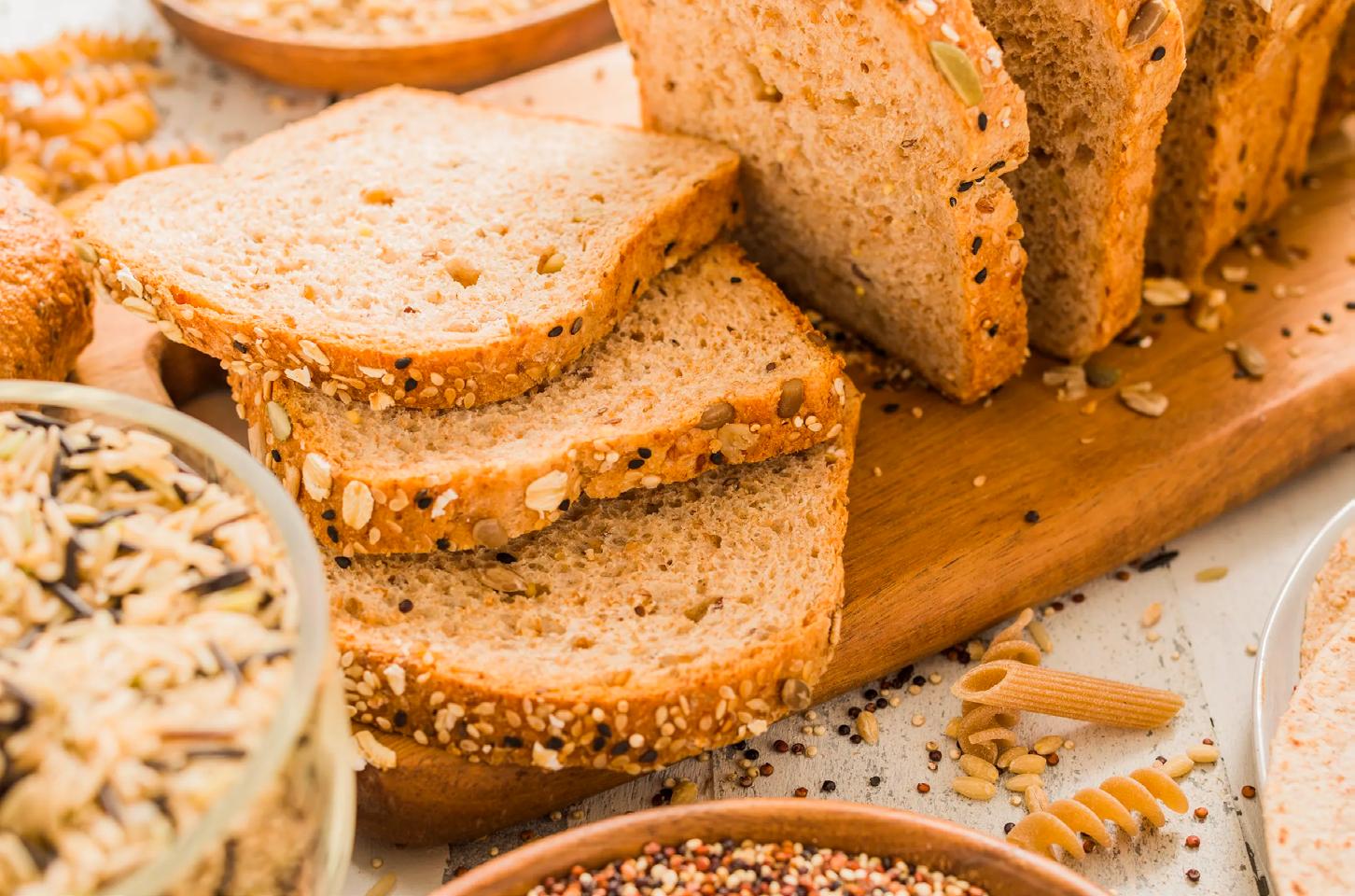
Today there exists whole grain options for many products such as bread, cakes, and muffins that are as tasty, soft, and light as refined ones but still full of whole grain goodness. Baking solution suppliers such as Puratos and GoodMills Group are some of the major players helping bakers and other whole grain users exploit the full potential of these foods.
CLEANING ZERO-SUGAR BEVERAGES
Intensely sweet non-calorific sweeteners were innovated to address a need for sweet but lowcalorie carbonated soft drinks. People suffering from diabetes, obesity, or those generally seeking to avoid outsized calorie intakes embraced these drinks which came to be known as diet sodas. With time these artificial sweeteners began replacing sugar in other tasty treats such as chewing gums to the delight of consumers.
KEY NUMBERS
most explored by food ingredient manufacturers but other alternative sweeteners derived from xylitol, monk fruit, and erythritol exist to help food and beverage manufacturers succeed in their quest to meet the demand for low and zero-sugar products.
IT CAN ONLY GET BETTER FROM HERE
For centuries, innovation in the food sector was mainly driven by taste and shelf life stability. Anything that made food taste good or extended its shelf life was readily added to product formulations without much thought to its long-term effects on consumers. That is how products such as aspartame, nitrates, and titanium dioxide found themselves in food products.
The wide consumption of foods with these additives is believed to be the reason for the spike in many lifestyle diseases today. The silver lining is that as evidence emerges on the likelihood of these additives impacting consumer health, alternatives emerge to ensure we continue enjoying the foods we have grown to like without having to worry much about the risk. There is even a term for it, guilt-free indulgence.
Initially thought of as God-sent innovations, these products have lost their favor among consumers due to mounting evidence linking them to cancer. A 2022 large cohort study of 102,865 adults found a positive relationship between artificial sweetener intake and the risk of overall cancer. In particular, higher cancer risks were observed for aspartame and acesulfame-K, according to the study.
As demand for low-calorie but sweet treats exists, the food industry has shifted its focus from artificial to natural alternatives that deliver the same sweetness but without the calories of sugar or the risks of synthetic ones. Stevia has been the
Many other trends from veganism, and clean-label, to zero alcohol consumption, are gaining pace across the world prompting the food industry to respond with healthier foods that minimize the risk of cancer and other diseases. We today even have foods that are specifically designed to improve human health. We call them functional foods and they already command a sizeable share of the market. According to Fortune Business Insights, the global functional food and beverage market size was valued at US$258.80 billion in 2020 and it is expected to exhibit a CAGR of 9.5% for the next 5 years to reach a value of 529.66 Billion by 2028. This shows that the food industry is finally atoning for its sins and is transforming into a partner consumer's quest to live a more active and healthier lifestyle. FBA
FOODBUSINESSAFRICA.COM NOV/DEC 2022 | FOOD BUSINESS AFRICA 73
RISE IN CONSUMPTION OF ULTRA-PROCESSED FOODS WAS ASSOCIATED WITH A 12% HIGHER RISK FOR CANCER IN GENERAL
10%
Kemin Food Technologies develops natural alternative to nitrite used in meat preservation
ITALY – Kemin Food Technologies, a food shelf-life extension specialist, has developed a nitrite alternative marketed as an all-in-one solution, Rubinite GC Dry, for use in the first stage of emulsified cooked sausages.

The company said the labelfriendly ingredient maintains product stability with active molecules from plant extracts, which also provide a natural pink color.
Rubinite GC Dry’s buffered vinegar also provides optimal microbial protection against foodborne pathogens, such as Clostridium botulinum and Listeria monocytogenes.
The buffered vinegar used in the Rubinite GC Dry solution is produced at Kemin Food Technologies – EMEA’s new facility in Crema, Italy.
Kemin Food Technologies noted that the Rubinite GC Dry ingredient
GNT's spirulina extract for beverages receive FDA approval
offering food safety while maintaining taste and colour is available for food producers in Europe, the Middle East, and Africa (EMEA) region.
USA – GNT Group, a global provider of coloring foods, has gained approval from the US Foods and Drug Administration (FDA) for the use of spirulina extract in beverages, offering manufacturers a way to achieve vibrant blue shades while maintaining a clean label.

The company said it developed a patented formulation technology that allows spirulina extract to be used in temperature- and acid-stabilized in beverages.
The Exberry Blue Beverage Solution is suitable for various applications, including sports, energy, and carbonated drinks, juice drinks, enhanced waters, and alcoholic beverages below 20% ABV.
The Code of Federal Regulations (CFR) had previously permitted spirulina extract as a natural blue coloring ingredient in certain food products and powdered beverages.
GNT successfully petitioned the FDA to amend the regulation to
cover all non-alcoholic and alcoholic beverages below 20% ABV.
The company noted the extract delivers a bright turquoise blue shade in acidified beverages with a pH range between 2.6 to 3.4.

Moreover, it can be combined with other Exberry food solutions that deliver hues including navy blue, violet, and green.
The FDA’s approval of natural blue colors derived from spirulina extract for products also includes applications such as yogurt, ice cream, and confectionery.
NOV/DEC 2022 | FOOD BUSINESS AFRICA FOODBUSINESSAFRICA.COM 74 NEW INNOVATION
SUPPLIER NEWS & INNOVATIONS
THE EXBERRY BLUE BEVERAGE SOLUTION IS SUITABLE FOR VARIOUS APPLICATIONS, INCLUDING SPORTS, ENERGY AND CARBONATED DRINKS, JUICE DRINKS, ENHANCED WATERS, AND ALCOHOLIC BEVERAGES BELOW 20% ABV.
IFF, Salus Optima create platform to help brand owners create better for you snacks

Kerry unveils new digital tool to assess front-of-pack nutrition labels
IRELAND – Kerry has launched a new digital tool that will support manufacturers to optimize the nutritional profile of products while being aware of the various front-ofpack regulations.
The company says that the KerryNutri Guide has been launched in response to the need to promote healthier diets globally amid a changing regulatory environment.
UK – American multinational food ingredients supplier IFF has partnered UK-based health and wellness company Salus Optima to help brand owner create snacks and other products that target metabolic health.
Key to the success of the partnership’s personalised nutrition platform is blending science-backed, data driven recommendations with behavioural change techniques – such as digital coaching – with branded products at the core of the offering.
On the first level, the collaboration leverages Salus Optima’s tech with IFF’s portfolio of health-enabling ingredients from its Nourish and Health & Biosciences divisions to help product developers to create differentiated experiences that address the aspects that influence metabolic health.
Secondly, the partnership is also focused on helping consumers understand their unique metabolic response to food, supplements,
activity and sleep, accessible via mobile phones and wearables.
The turn-key digital health and wellness platform is powered by IFF’s market-ready product design solutions, combined with Salus’ modular digital health tech.

It provides real-time consumer intel, doubling as a direct marketing tool that captures rich, first-party data beyond traditional points of
Globally, governments are introducing taxes and restrictions on products that are high in fat, sugar, and salt to combat health issues and noncommunicable diseases, while manufacturers have the challenge of creating great-tasting products that still meet these guidelines.
The Guide can measure food and beverages across a wide range of front-of-pack nutrition labeling systems and guide the user to a better score. Using data entered by the user, the tool calculates the product’s energy, saturated fat, sugar, fiber, protein, and salt content and then displays the nutrient score of each input, showing areas that are close to or exceeding a regulatory or dietary threshold.
A recent Action on Salt and Share Action report flagged “misleading” nutrition labels across Kerry’s home market in the UK, calling for tighter regulations on sugar, salt, and fat.
sale to help brands gain a deeper understanding of consumer needs. Set-up and integration with mobiles and wearables is quick and easy, and provides consumers with actionable, engaging and personalised suggestions to achieve health and wellness goals.
With regulations varying globally, KerryNutri Guide offers regional insights and uses the data to replicate on-pack labels used in the EU, Brazil, the UK, Mexico, Singapore, Australia, and New Zealand.
In addition, the tool simulates what nutritional claims can make on the pack, whether the product is low in fat, sugar, or salt, or is a source of fiber or protein.
FOODBUSINESSAFRICA.COM NOV/DEC 2022 | FOOD BUSINESS AFRICA 75 NEW INNOVATION
THE PARTNERSHIP IS FOCUSED ON HELPING CONSUMERS UNDERSTAND THEIR UNIQUE METABOLIC RESPONSE TO FOOD, SUPPLEMENTS, ACTIVITY AND SLEEP.
CP Kelco and Chr. Hansen co-develop shelf-stable plantbased “vegurts”
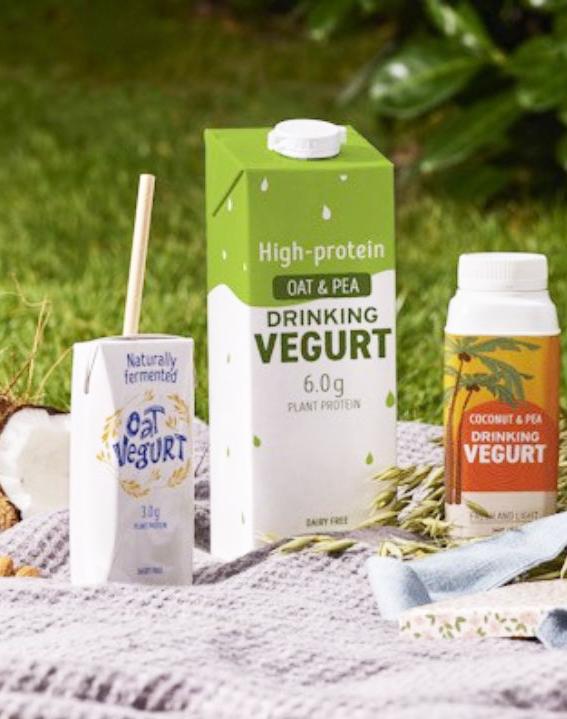
UK – Tate & Lyle PLC has expanded its sweetener portfolio with ERYTESSE Erythritol which has 70% of the sweetness of sucrose and a similar temporal profile, with zero calories, making it useful in categories such as beverages, dairy, bakery, and confectionery.
ERYTESSE is said to add back bulking and mouthfeel when sucrose is reduced or removed from applications.
Additionally, the sweetener offers good stability in high levels of heat or acidity during processing, making it suitable for a host of formulations.
It can be used alone or in combination with natural sweeteners, like stevia and monk fruit, and highpotency sweeteners, like sucralose.
Louis Dreyfus Company develops orange juice with reduced sugar and higher fiber content

Tate & Lyle said the addition of the sweetener expands its ability to help customers deliver on consumer demand for healthier, sugar and calorie-reduced products while extending its position as the world leader in ingredient solutions for a healthy food and beverages.
FRANCE – Louis Dreyfus Company

(LDC), a French multinational merchant and processor of agricultural goods, has developed a new product made from not-from-concentrate (NFC) orange juice with more fiber, less sugar-content, and maintains nutritional value.
The company noted the NFC orange juice has a 30% reduction in natural sugar content and more than triple dietary fiber content while preserving its original taste (Brix value) and vitamin C level.
Although the company plans to make a commercial roll-out of the product initially focused on Asia Pacific, with the first launch set for early 2023 in China, the new product is available to industrial customers worldwide.
This will include Europe, North America, and South America, where the Group sees growing consumer demand for healthy, nutritious, great-
tasting diet options.
Juan José Blanchard, LDC’s Global Head of Juice said: “Complementing our extensive portfolio of juices and ingredients from Brazilian-grown citrus fruits, this new product represents another positive step in LDC’s strategy to diversify revenue through valueadded products, including specialty ingredients and products like this one.”
ORANGE
NOV/DEC 2022 | FOOD BUSINESS AFRICA FOODBUSINESSAFRICA.COM 76 SUPPLIER NEWS & INNOVATIONS
NEW INNOVATION
THE NFC
JUICE HAS A 30% REDUCTION IN NATURAL SUGAR CONTENT AND MORE THAN TRIPLE DIETARY FIBER CONTENT WHILE PRESERVING ITS ORIGINAL TASTE (BRIX VALUE) AND VITAMIN C LEVEL.
DSM upcycles canola meal into high quality protein isolate
Tate & Lyle launches erythritol-based sweetener
UK – Tate & Lyle PLC has expanded its sweetener portfolio with ERYTESSE Erythritol which has 70% of the sweetness of sucrose and a similar temporal profile, with zero calories, making it useful in categories such as beverages, dairy, bakery, and confectionery.

Freddy Hirsch Nigeria unveils food texture and stabilizer systems
NIGERIA – Freddy Hirsch Nigeria, a manufacturer of extracts for spices, ingredients, and flavors, has introduced food texture and stabilizer systems, which will help to preserve food and minimize wastage in the Nigerian market.
NETHERLANDS – Dutch multinational health, nutrition, and bioscience company DSM has added a new protein isolate to its Vertis plant protein portfolio.

According to DSM, the new ingredient known as Vertis CanolaPRO, will allow food and beverage producers to develop plantbased products that offer complete proteins and are free from major allergens.
Its high credentials come from the fact that it is produced from Canola seeds, also known as rapeseeds, which are one of the world’s few available plant sources of complete protein, meaning they contain all nine essential amino acids required for good health.
When used as part of a protein blending strategy, Vertis CanolaPRO is highly complementary to proteins from legumes and cereals and fills in gaps in essential amino acids, according to DSM.
The new ingredient is reported to have a protein digestibility-corrected amino acid score (PDCAAS) of 1, on par with soy or whey, and a high digestibility score (DIAAS ≥ 100).
Its functional benefits include improving the bite and texture of meat and fish alternatives and creating a smoother mouthfeel in dairy alternatives and performance nutrition products.
ERYTESSE is said to add back bulking and mouthfeel when sucrose is reduced or removed from applications.
Additionally, the sweetener offers good stability in high levels of heat or acidity during processing, making it suitable for a host of formulations.
It can be used alone or in combination with natural sweeteners, like stevia and monk fruit, and highpotency sweeteners, like sucralose.
Other than optimizing value for every Naira spent on food, the company said the Freddy Hirsch texture and stabilizer solutions also help make food more enticing and more appetizing.
According to Mordor Intelligence, the African market for food stabilizers is projected to register a CAGR of 2.1% over the forecast period 2020-2025.
The demand for stabilizers in the bakery and confectionery industries has witnessed a significant increase in the market as stabilizers make up a small part of the final product but have a significant impact on the final packaged product.
Kojo Brifo, Managing Director of Freddy Hirsch Nigeria, noted that the Freddy Hirsch texture and stabilizer solutions are the aftermath of many years of research and development. He hinted that the stabilizers have been lauded by several food companies, including bakeries and ice cream companies, which have begun using them.
Brifo said the company is not resting on its laurels and will continue to innovate to deliver value to all stakeholders.
Tate & Lyle said the addition of the sweetener expands its ability to help customers deliver on consumer demand for healthier, sugar and calorie-reduced products while extending its position as the world leader in ingredient solutions for a healthy food and beverages.
Freddy Hirsch operates in several African countries, including Nigeria, which is the epicenter of its West Africa operations. The launch follows the debut of a range of bouillon flavors, which are traditionally sought after in West African markets, for the local quick-service restaurant (QSR) sector, in July.
FOODBUSINESSAFRICA.COM NOV/DEC 2022 | FOOD BUSINESS AFRICA 77
NEW INNOVATION NEW INNOVATION
MANE opens manufacturing plant and flavor innovation center in India
is why it has drawn up a US$45 million investment plan to expand capacities over the next three years.
The company has invested Euro 20 million (US$20.76m) in setting up the new plant, equipping it with advanced technologies and machinery, including an HVAC system with an EC fan, an energy valve, and a heat exchanger.
INDIA - MANE, a major producer of flavors and fragrances, has officially opened its largest manufacturing plant in India, located at the Gujarat Industrial Development Corporation (GIDC) site.

The new 20,500 square-meter facility is strategically located in one of India’s leading chemical manufacturing regions with easy connectivity to ports.
MANE said the new plant will play
PARTNERSHIPS
a key role in meeting the growing demands of flavor and fragrance markets in India and across the AsiaPacific region.
Mane Group chairperson, Jean Mane said India, which accounts for nearly 8% of the group’s global revenues of Euro 1.5 billion (US$1.56bn), is key to the group’s future growth as it is also a major procurement center for spices which
The plant aimed at expanding the French group’s footprint will also be run sustainably, with a 25% reduction in energy consumption.
Kalsec inks, Willow Biosciences partner in commercialization of precision fermentation
framework agreement with a Canadabased biotechnology company, Willow Biosciences, to explore and commercialize a precision fermentation production process for high-volume applications, majorly in functional foods.

Willow’s FutureGrown technology platform is a fully integrated solution for rapid strain engineering, process development, and scaledup manufacturing that incorporates the latest technologies available for precision fermentation.
The partnership will leverage
Kalsec’s expertise in natural product development with Willow’s fully integrated technology platform, in the research that will focus on the functional benefits of the S. cerevisiae fungus, also called brewer’s yeast, which includes improved expression and engineering of metabolic pathways.
Willow CEO Dr. Peter SeuferWasserthal said his company is pleased to add a new functional ingredient to its portfolio, highlighting the demand for its fully integrated FutureGrown technology platform.
NOV/DEC 2022 | FOOD BUSINESS AFRICA FOODBUSINESSAFRICA.COM 78 SUPPLIER NEWS & INNOVATIONS INVESTMENT
CANADA – Kalsec has entered into a
THE NEW 20,500 SQUAREMETER FACILITY IS STRATEGICALLY LOCATED IN ONE OF INDIA’S LEADING CHEMICAL MANUFACTURING REGIONS WITH EASY CONNECTIVITY TO PORTS.
Hotpack Global inaugurates largest manufacturing plant in Dubai
UAE – Hotpack Global, the largest manufacturer of disposables Food Packaging Products in the Middle East, has inaugurated its largest manufacturing plant in National Industries Park (NIP), Dubai.

The facility features robotic packaging systems, automatic roll handling systems, and vendor-neutral archives for warehouse material handling, making its processes fully automated.
The company said it injected AED 250 million (US$ 68.07m) into building the 500,000 square-feet facilities at one of the most sought-after industrial manufacturing hotspots in GCC.
Apart from being a manufacturing unit for Hotpack’s high-performance and sustainable PET (Polyethylene terephthalate) packaging products,
PARTNERSHIPS
the facility also encompasses a large warehouse that has a capacity of 35,000 pallet storage spaces, functioning as the company’s export hub.
The UAE-based giant also plans to use the facility as a center for various Hotpack arms including e-commerce, logistics, and marketing being localized in one building.
Arla Food Ingredients enters whey protein powder partnership with First Milk

specialist whey protein powder at First Milk’s Lake District Creamery.
In the agreement, First Milk will manufacture Nutrilac FO-7875 on behalf of Arla Foods Ingredients using the company’s proprietary process, with Arla Foods Ingredients marketing and selling the product internationally.
Nutrilac FO-7875 allows manufacturers to develop both spoonable and drinkable yogurts with significantly higher protein content than typical products, which generally range from 5% to 9%. For example, it can be used to create a drinking yogurt with 11% protein and only 0.8% fat.
drinks.
She also noted that the ingredient has a unique ability to increase the protein content of food and drink products to very high levels without sacrificing texture or stability.
UK
According to Anne Hoest Stenbaek, head of marketing at Arla Foods Ingredients, the protein can be used in a range of applications, in particular protein-enriched dairy
NUTRILAC FO-7875 ALLOWS MANUFACTURERS TO DEVELOP BOTH SPOONABLE AND DRINKABLE YOGURTS WITH SIGNIFICANTLY HIGHER PROTEIN CONTENT THAN TYPICAL PRODUCTS, WHICH GENERALLY RANGE FROM 5% TO 9%.
FOODBUSINESSAFRICA.COM NOV/DEC 2022 | FOOD BUSINESS AFRICA 79 INVESTMENT
– Arla Food Ingredients has partnered with British dairy cooperative First Milk to produce a
ofi launches new Customer Solutions Center in Singapore
ingredients from farm to plate.”
Ofi confirmed that the Singapore CSC will be integrated with ofi’s global network of 15 innovation centers and its Customer Solution Centers in Chicago, Amsterdam and Bangalore.
SINGAPORE – Global supplier of food and beverage ingredients Olam food ingredients (“ofi”), is scheduled to open a new Customer Solutions Centre (CSC) in Singapore to enable it better collaborate with its clients.
The CSC will be equipped with 6 laboratories to ensure food quality and safety. It will also have pilot facilities that can test whether a new concept can be produced in a largescale manufacturing environment.
A team of culinary and pastry chefs, food scientists, and quality, regulatory, and category experts will be located at the facility to help customers develop new products and applications using ingredients from ofi’s portfolio of cocoa, coffee, dairy, nuts, and spices.
A dedicated insights team will help customers identify emerging trends that use our natural portfolio of
THE CSC WILL BE EQUIPPED WITH 6 LABORATORIES TO ENSURE FOOD QUALITY AND SAFETY AND ALSO HAVE PILOT FACILITIES THAT CAN TEST WHETHER A NEW CONCEPT CAN BE PRODUCED IN A LARGESCALE MANUFACTURING ENVIRONMENT.
Azelis to supply Symrise food and nutrition solutions in India and Indonesia

INDIA – Ingredients supplier Azelis has partnered with flavor powerhouse Symrise in India and Indonesia to bring new solutions that enrich the taste and improve the nutritional profile of end products to these markets.

Symrise specializes in creating inspiring flavor ingredients and solutions and is best known for its taste-balancing options and natural ingredients that meet consumer demands and market trends
The new mandate builds on existing relationships with Symrise in other markets and sees Azelis adding Symrise’s dairy, confectionery, and bakery flavor portfolio to the group’s food & nutrition lateral value chain in India.
For Indonesia, the addition of Symrise’s dairy, bakery, processed meat, and culinary application flavors and ingredients enhances the group’s position in the local food & nutrition market segment.
In June, the specialty chemicals and food ingredients industry inaugurated its new Mexican headquarters in Mexico City, underscoring the Group’s commitment to invest and grow its operations in Latin America.
NOV/DEC 2022 | FOOD BUSINESS AFRICA FOODBUSINESSAFRICA.COM 80 SUPPLIER NEWS & INNOVATIONS INNOVATION CENTER





Discover the latest technologies for Africa's grains industry at the Milling & Baking Africa Expo. Meet all the international manufacturers and distributors from the World at one Show WWW.AFMASS.COM A SPECIAL PAVILLION AT: Grain Handling & Storage Solutions • Milling Equipment & Solutions • Baking Equipment, Technology & Services • Supply Chain, Automation & Control Solutions • Quality & Food Safety Solutions for Grains & Baking Industry WWW.AFMASS.COM MARCH 30 - APRIL 1, 2023 SARIT EXPO CENTRE, NAIROBI, KENYA FOOD Afmass EXPO The Future of Food in Africa SEPTEMBER 27-28, 2023 LAGOS, NIGERIA
EXTRACTING THE ESSENCE OF NATURE’S MAGIC

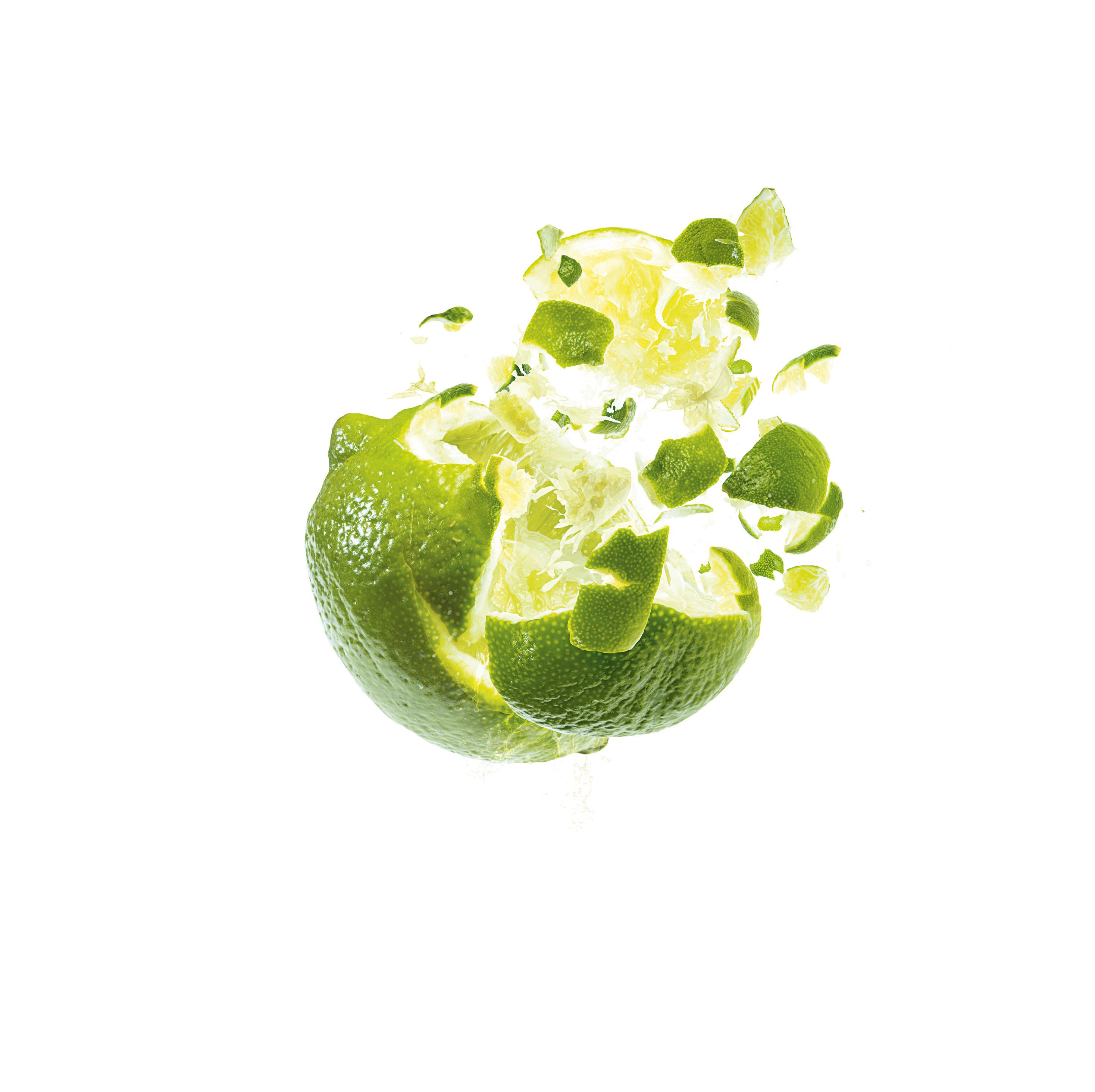

Photographer Didier D. Daarwin Getty Images/Image SourceGetty Images/Athit Perawongmetha.

















































































































 ASHISH PANDE Country Head, Olam Agri, Nigeria
ESSAM EL-MADDAH HR & General Secretary Director, Danone Egypt & North East Africa
JUSTIN ARCHER COO East Africa & Group Head of Sustainability, Sucafina SA
CLAUDIA CASTELLANOS Managing Director, Black Mamba
JOACHIM WESTERWELD Executive Chairman, Bio Food Products
MILLICENT A. ADOBOE Co-Founder, Achiever Foods Ghana
CAESAR ASIYO Chief Development Officer, Victory Farms
SAINT-FRANCIS TOHLANG Corporate Affairs Director, Nestle East & Southern Africa
NICO ROOZEN Honorary President, Solidaridad Network
ROZY RANA Managing Director, Dormans Coffee
GAURAV VJ CEO, 260 Brands
BRETT THOMPSON Co-Founder & CEO, Mzansi Meat
ASHISH PANDE Country Head, Olam Agri, Nigeria
ESSAM EL-MADDAH HR & General Secretary Director, Danone Egypt & North East Africa
JUSTIN ARCHER COO East Africa & Group Head of Sustainability, Sucafina SA
CLAUDIA CASTELLANOS Managing Director, Black Mamba
JOACHIM WESTERWELD Executive Chairman, Bio Food Products
MILLICENT A. ADOBOE Co-Founder, Achiever Foods Ghana
CAESAR ASIYO Chief Development Officer, Victory Farms
SAINT-FRANCIS TOHLANG Corporate Affairs Director, Nestle East & Southern Africa
NICO ROOZEN Honorary President, Solidaridad Network
ROZY RANA Managing Director, Dormans Coffee
GAURAV VJ CEO, 260 Brands
BRETT THOMPSON Co-Founder & CEO, Mzansi Meat











































































































































 By Paul Ongeto
By Paul Ongeto











 By Abel Ndeda
By Abel Ndeda













 By Catherine Wanjiku
By Catherine Wanjiku


















 By Paul Ongeto
By Paul Ongeto










































